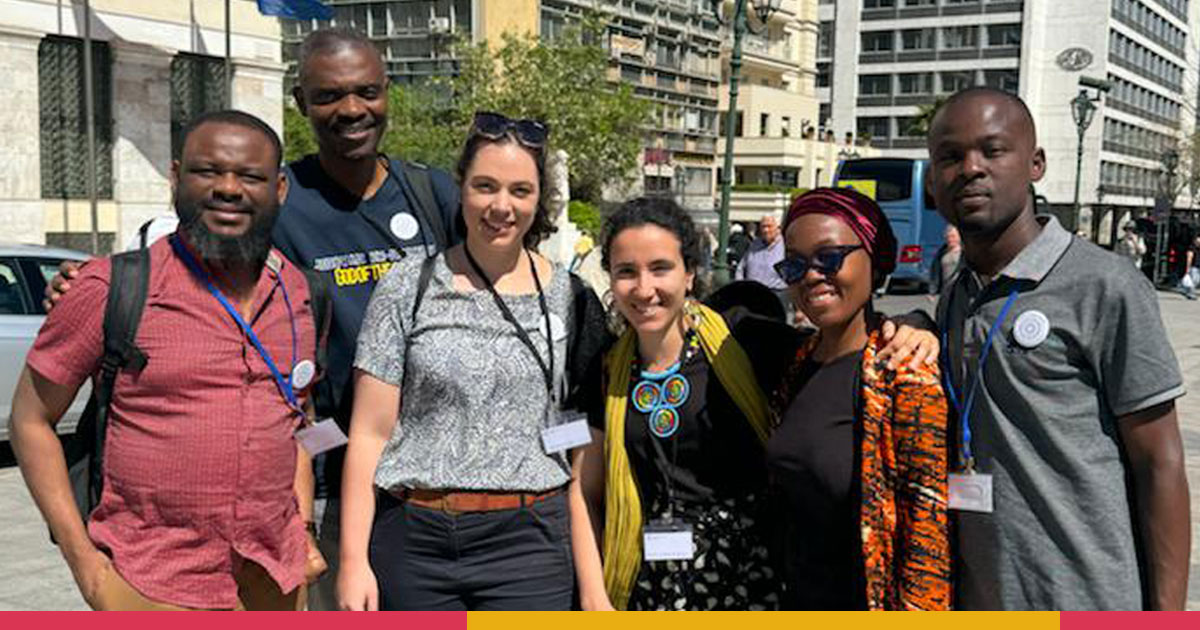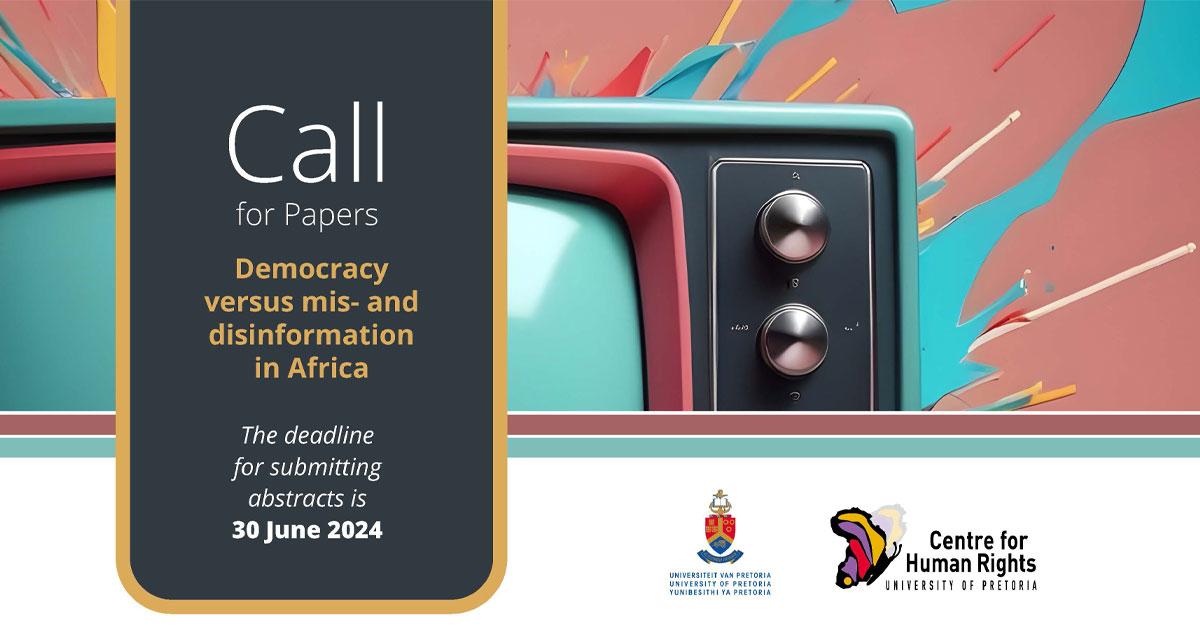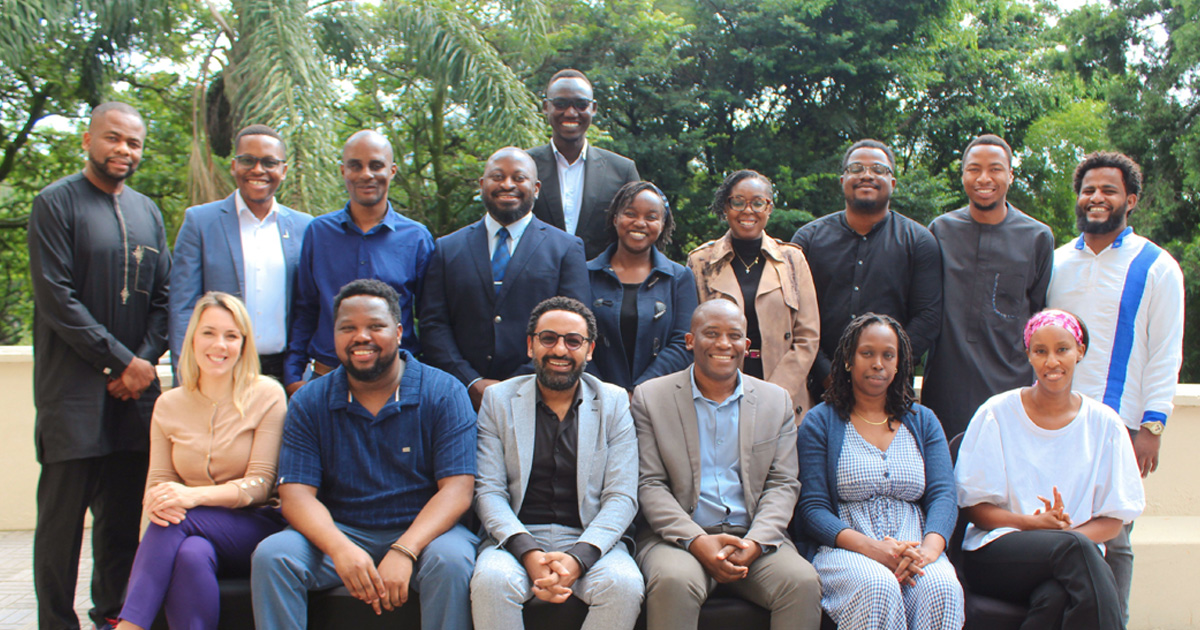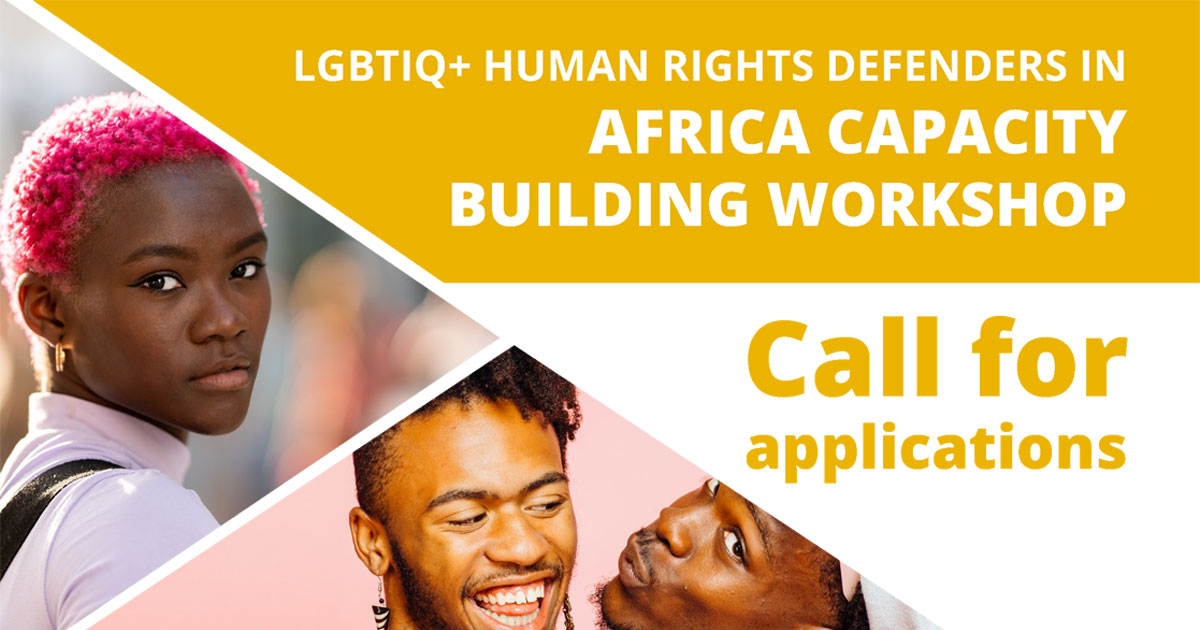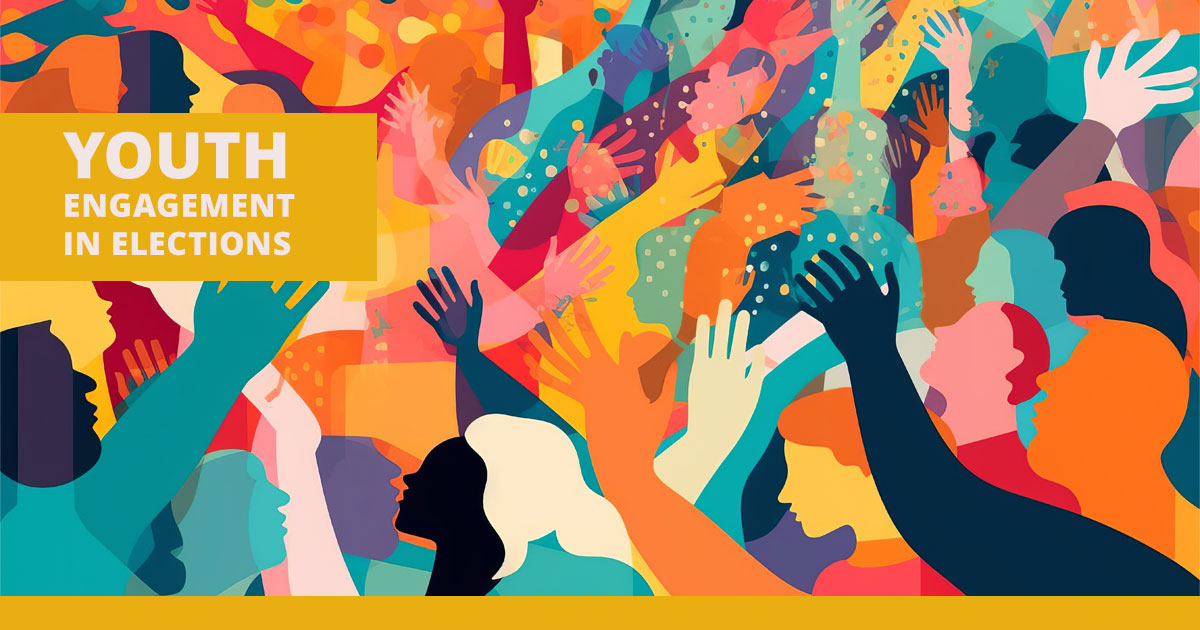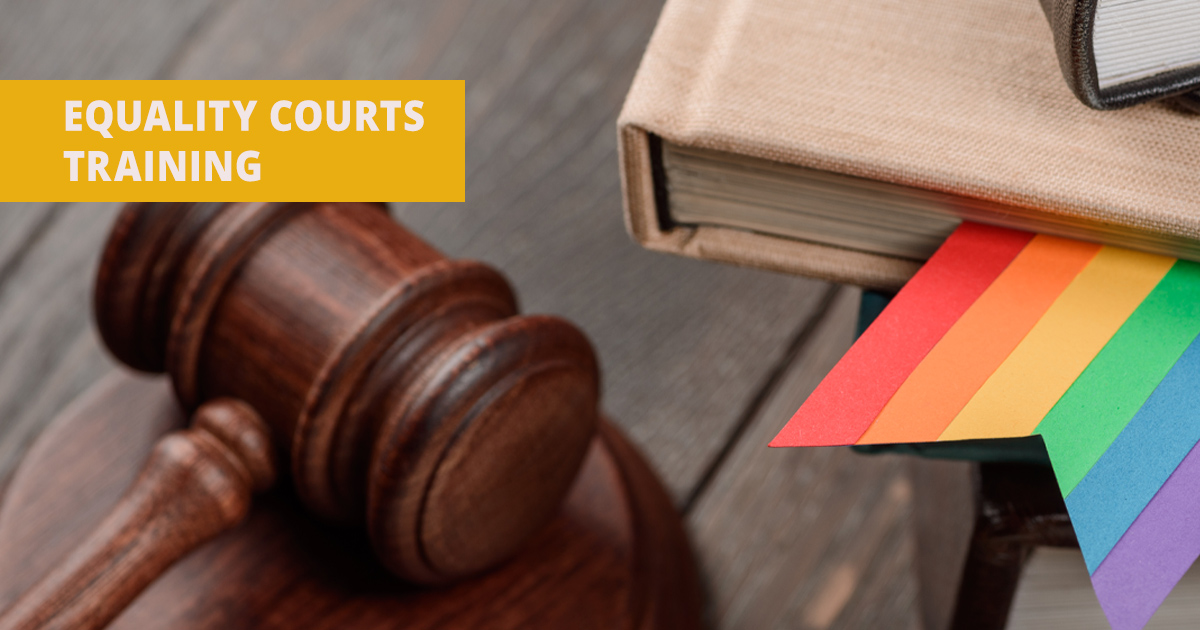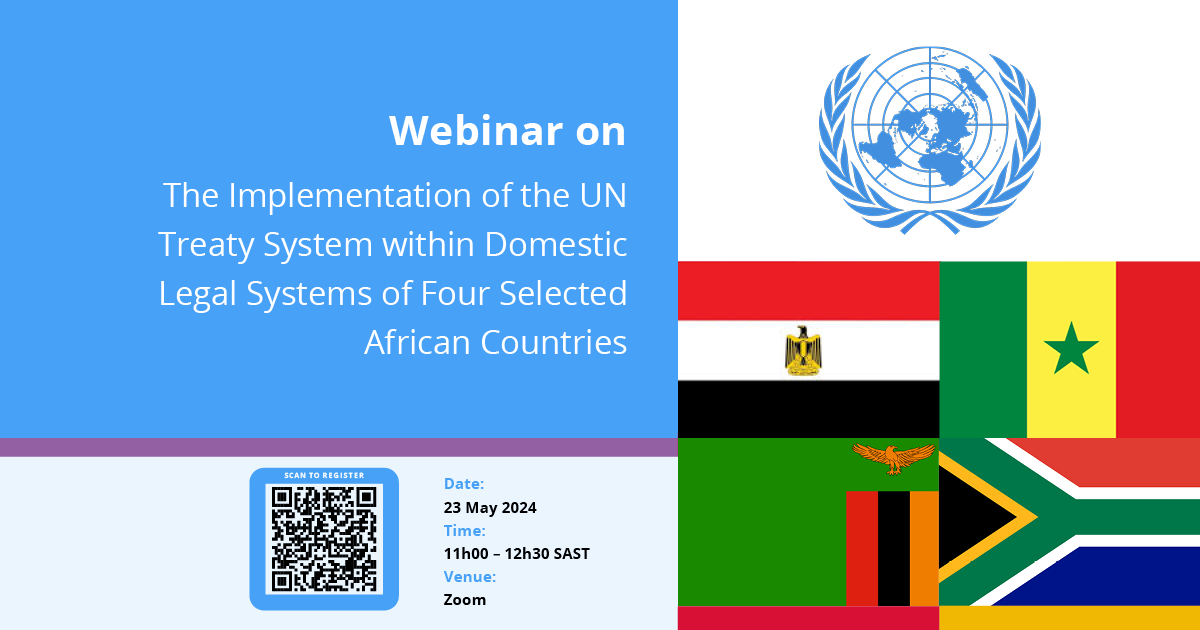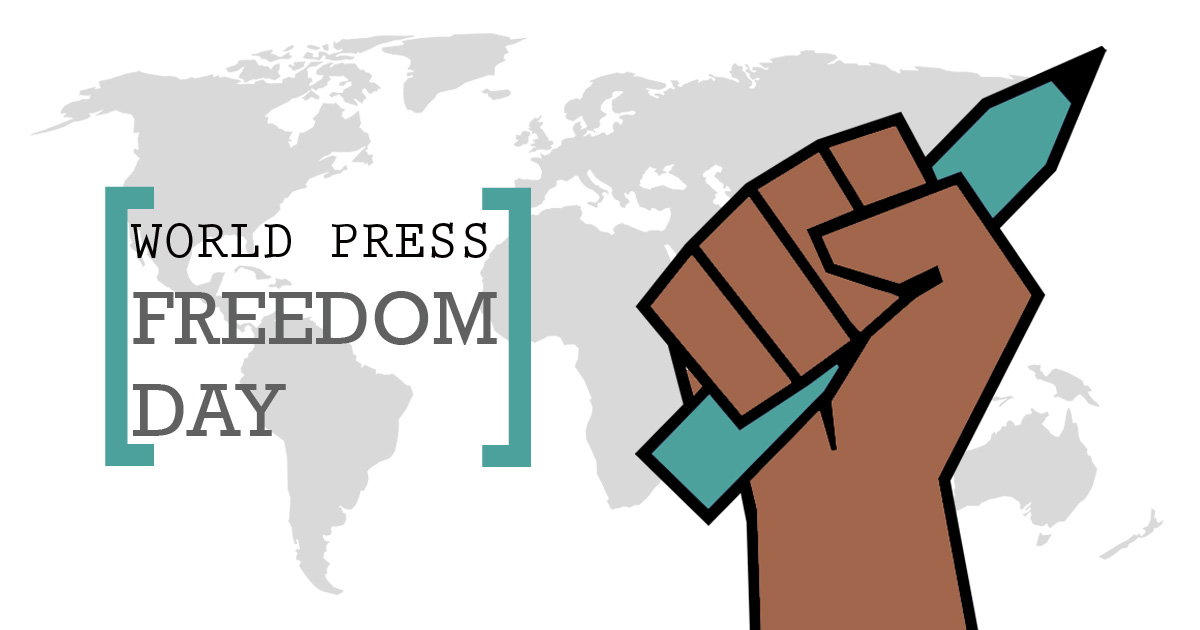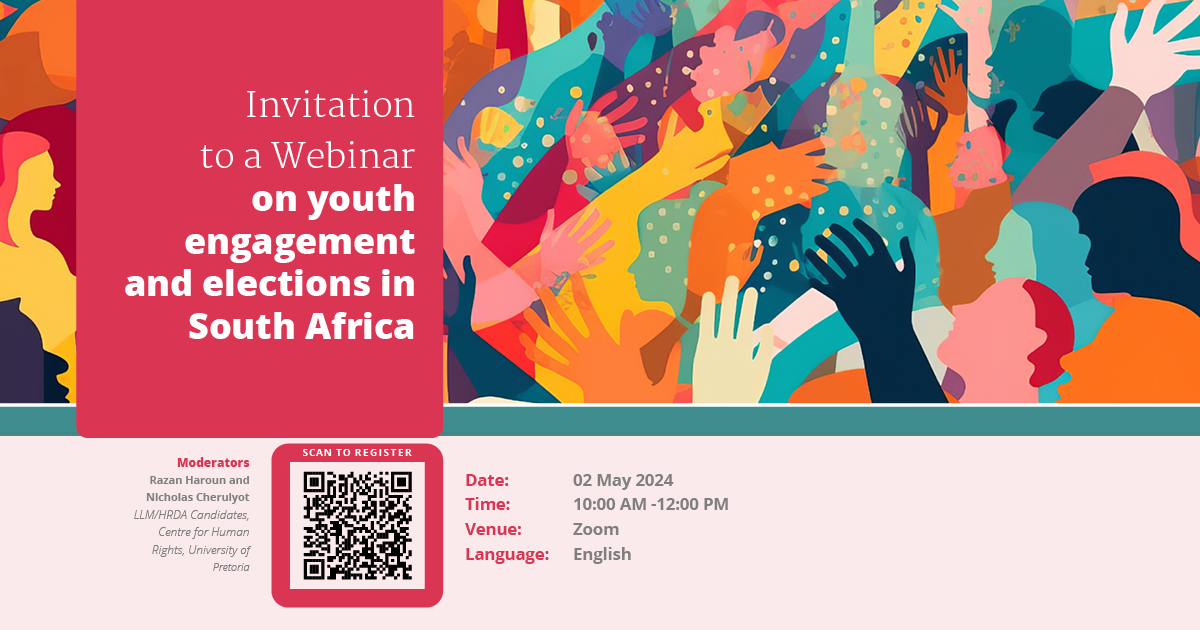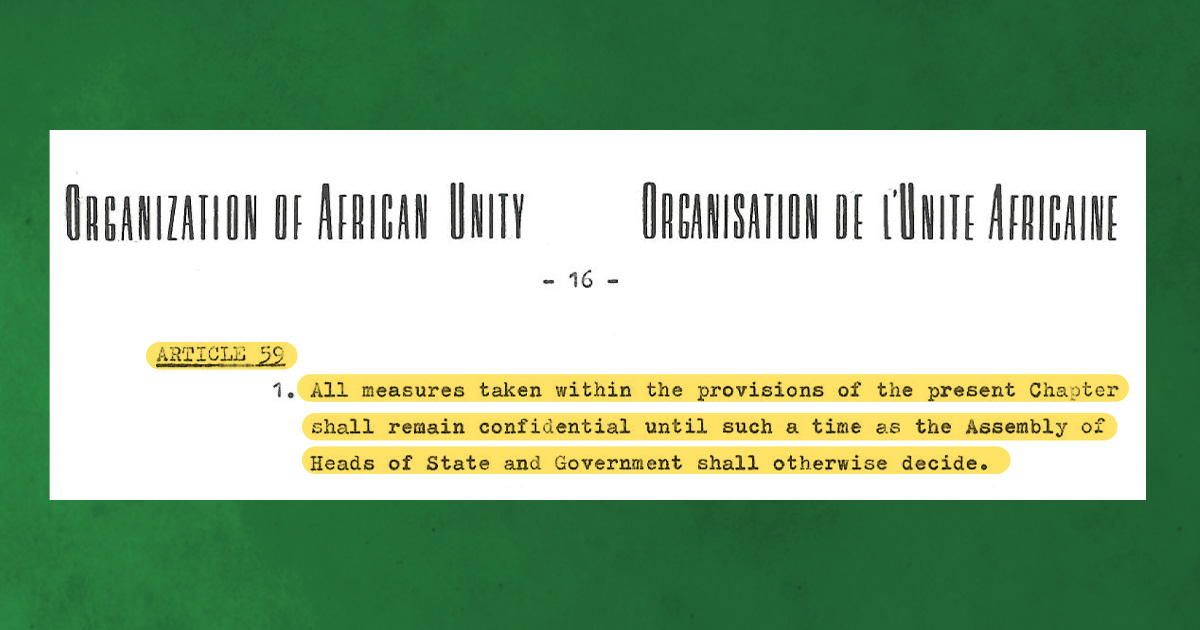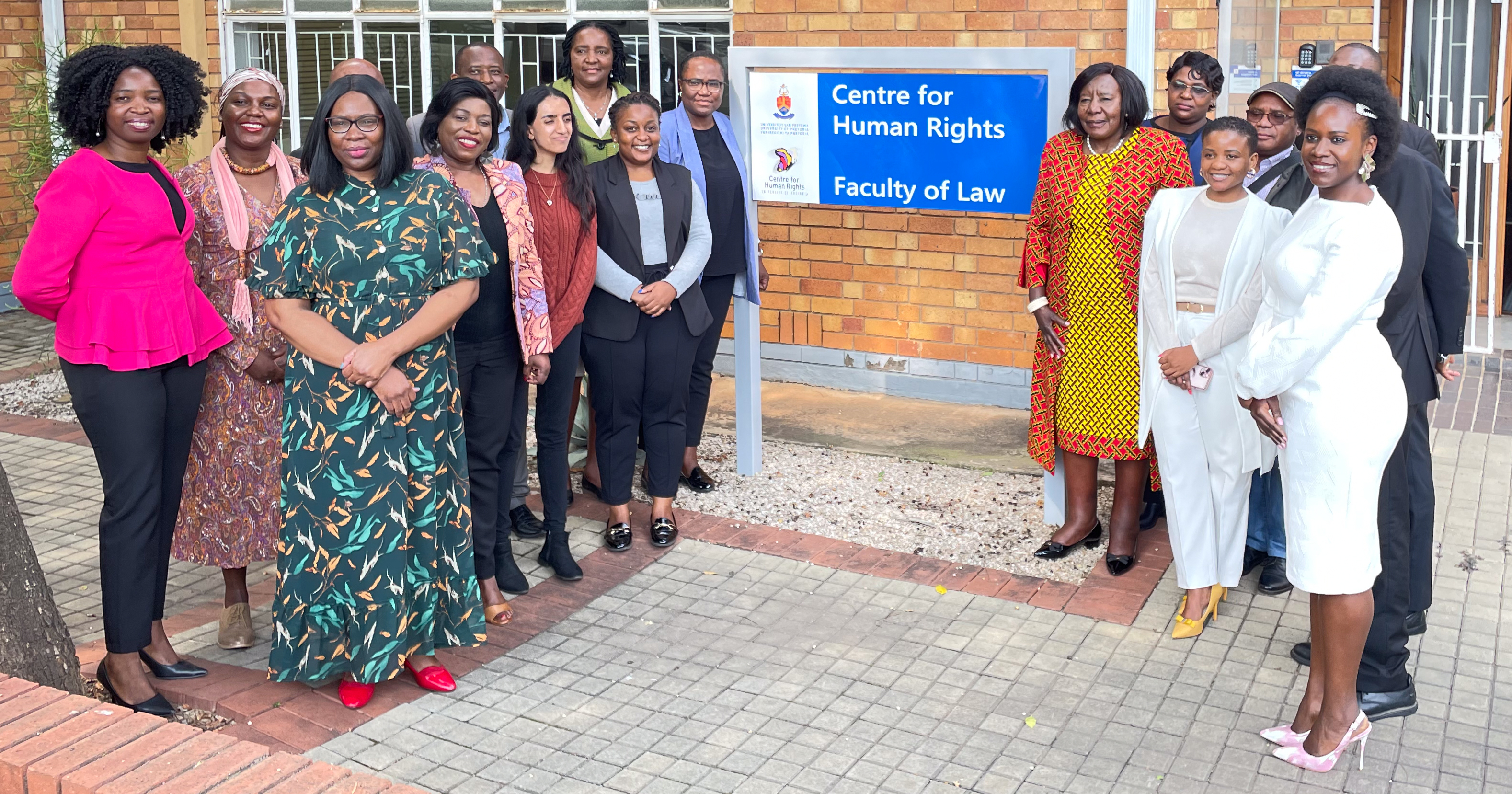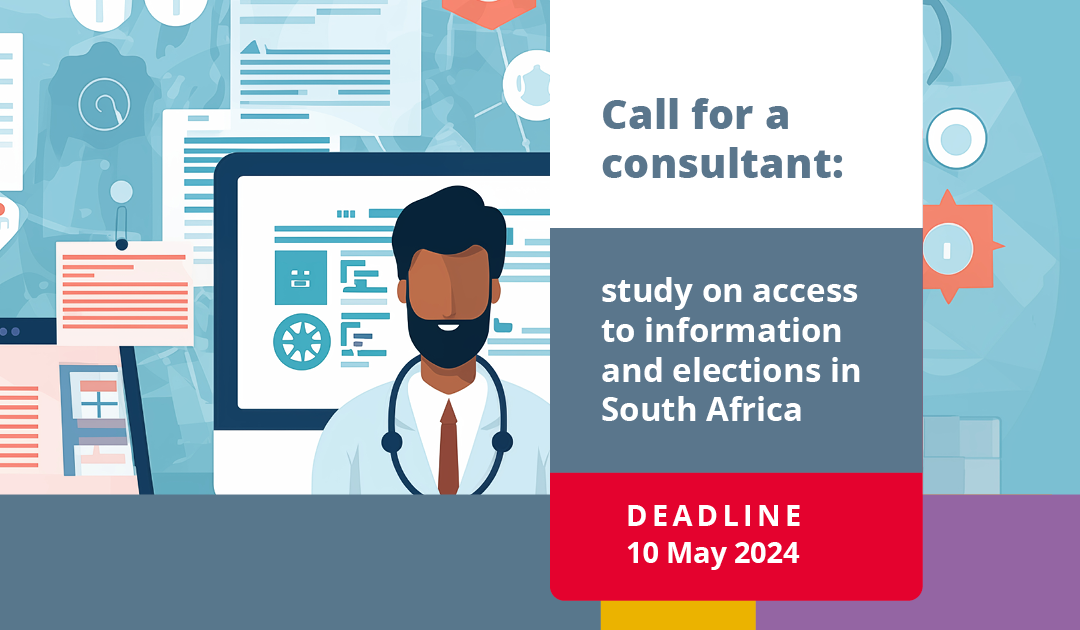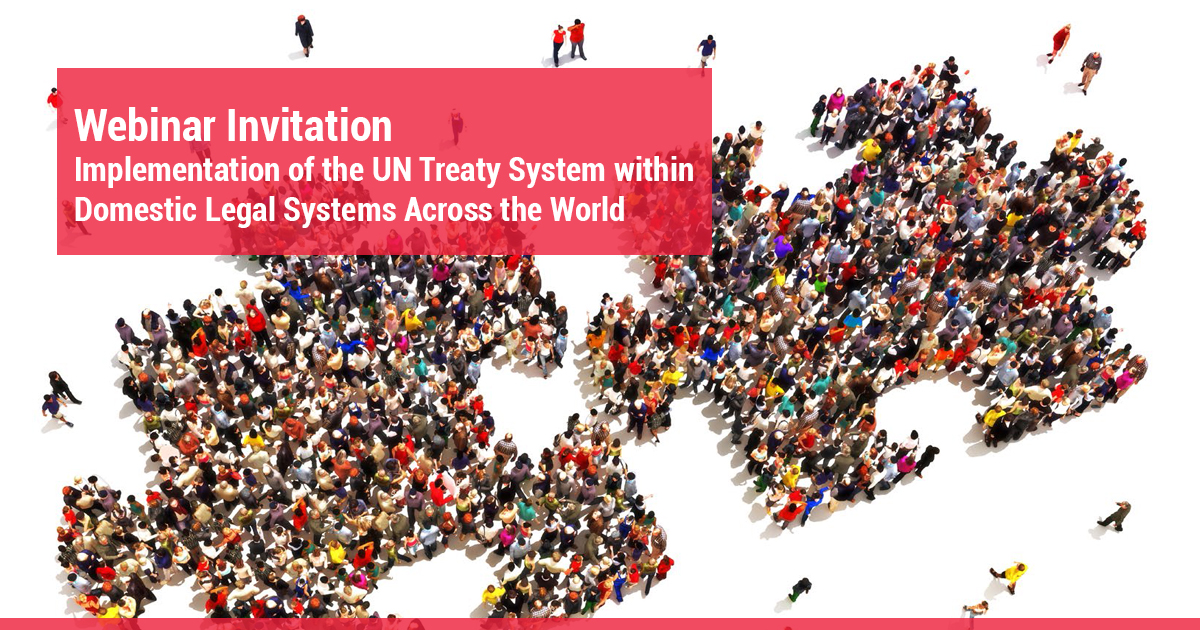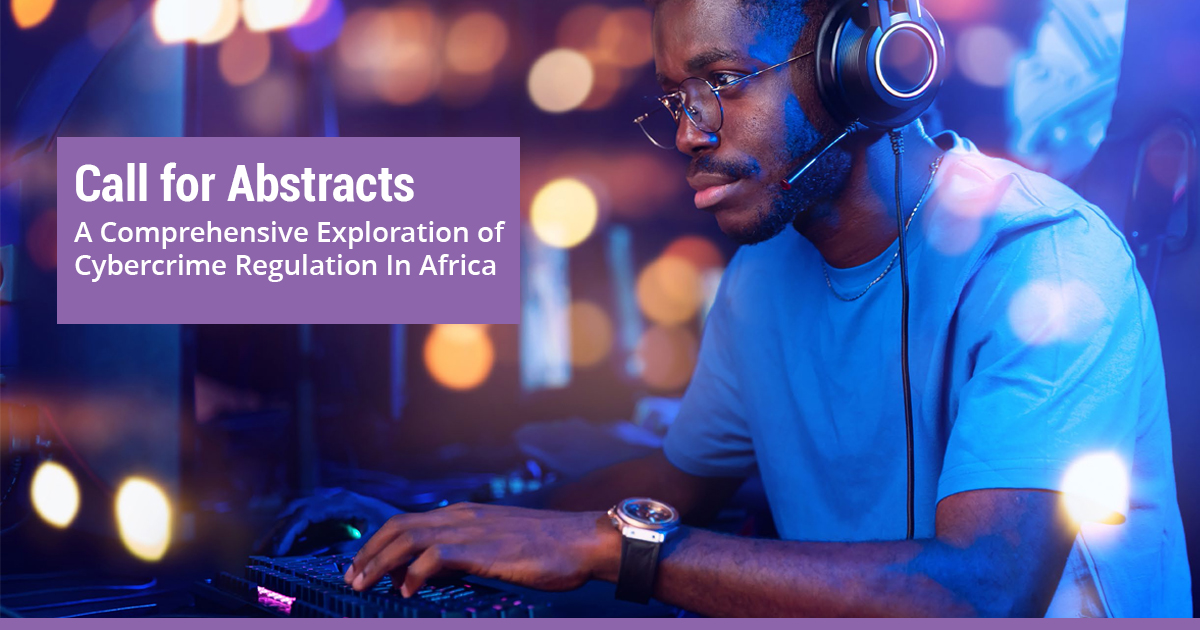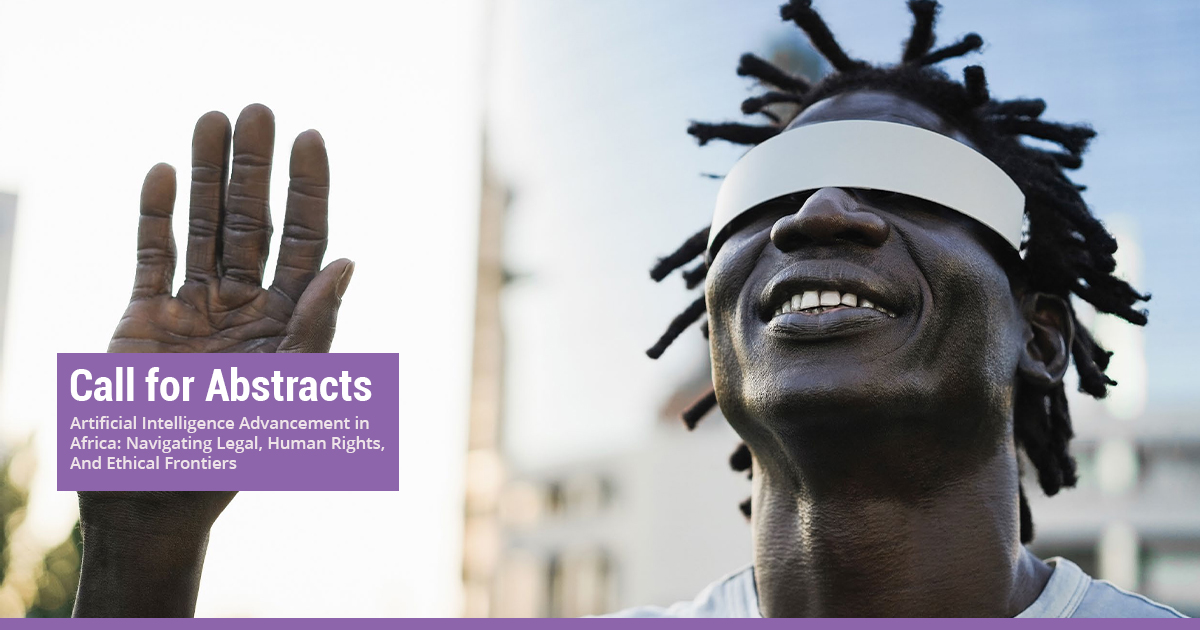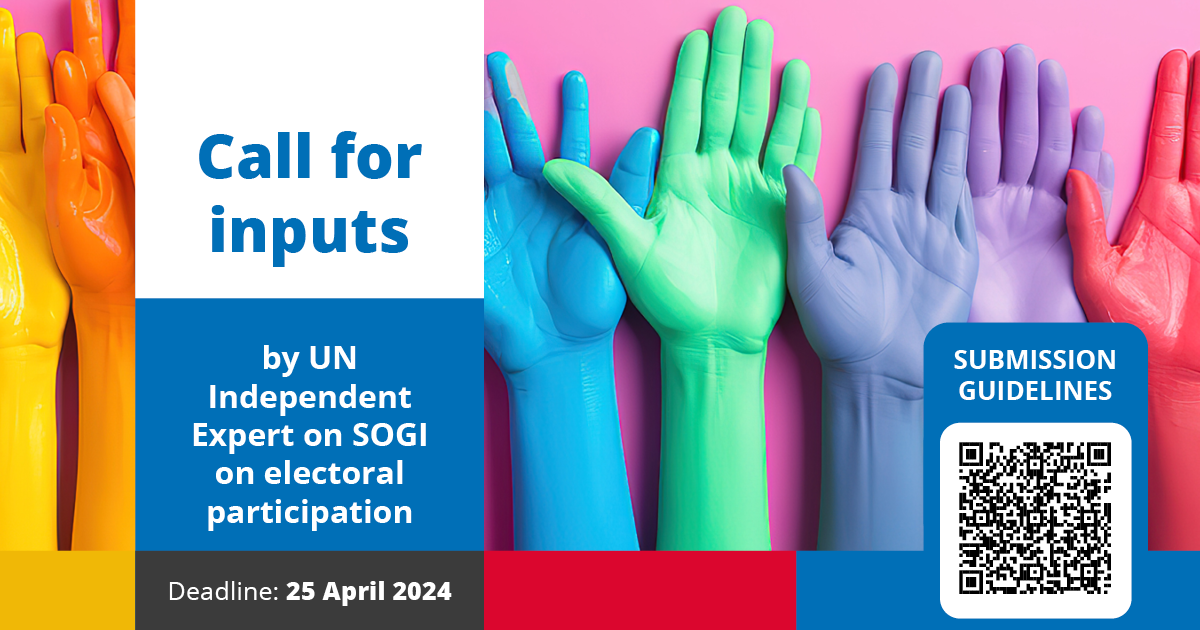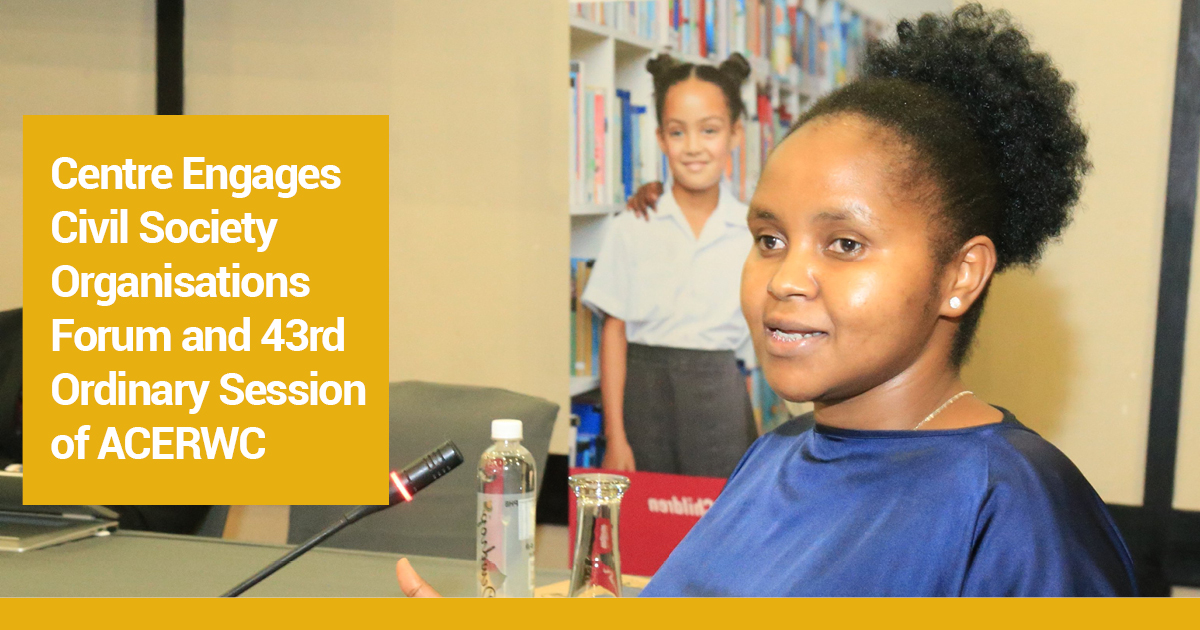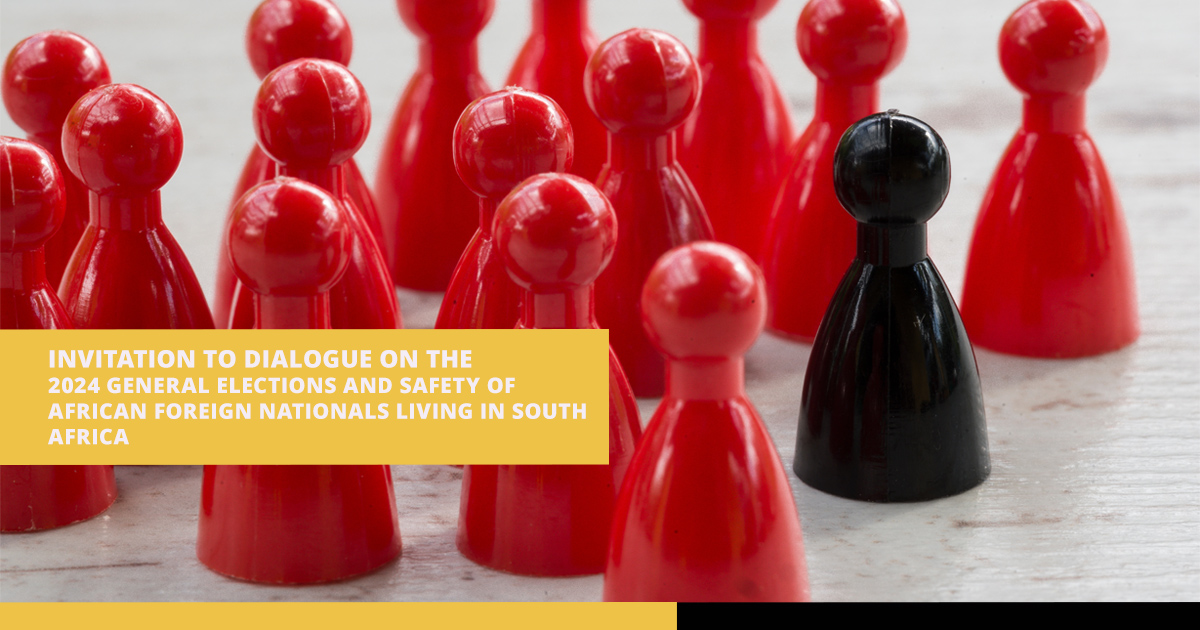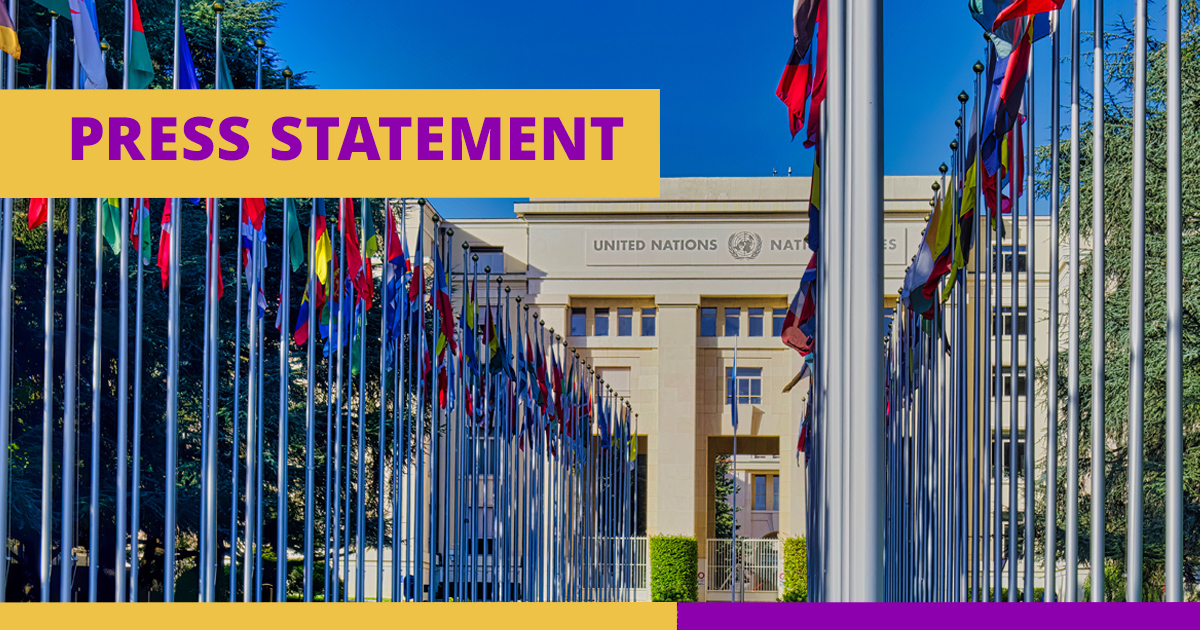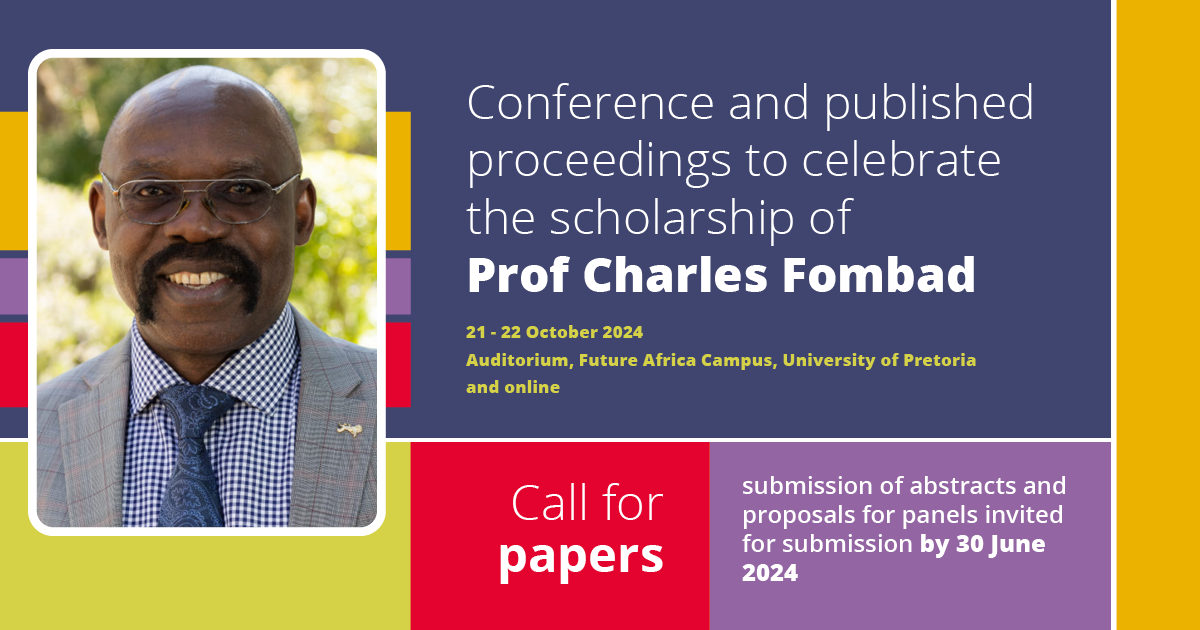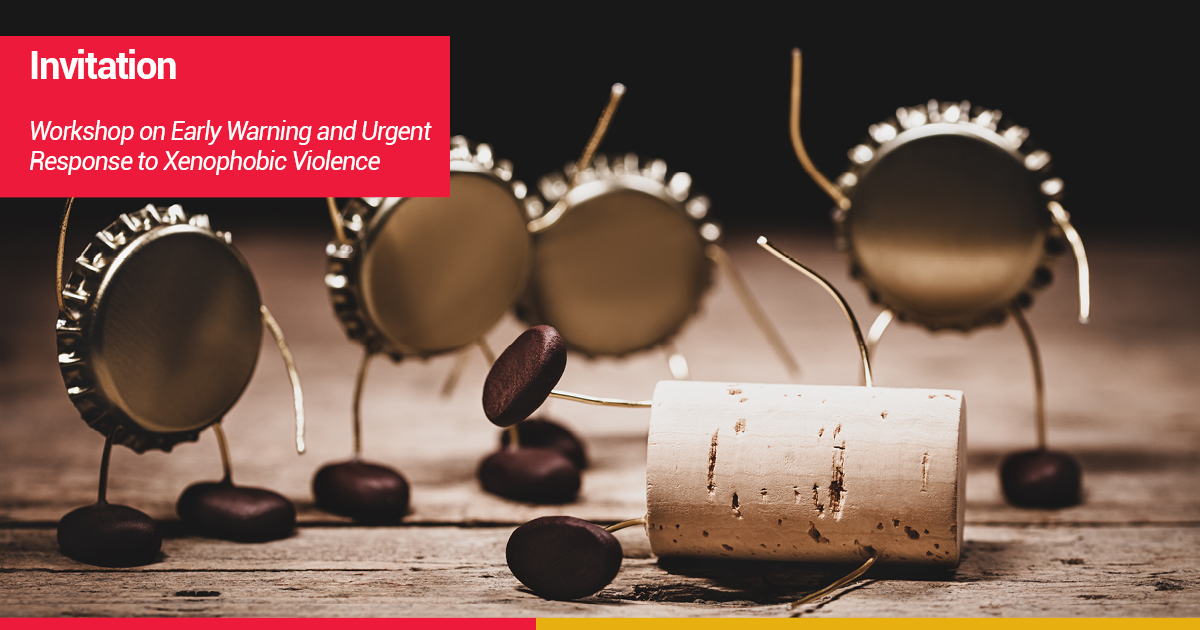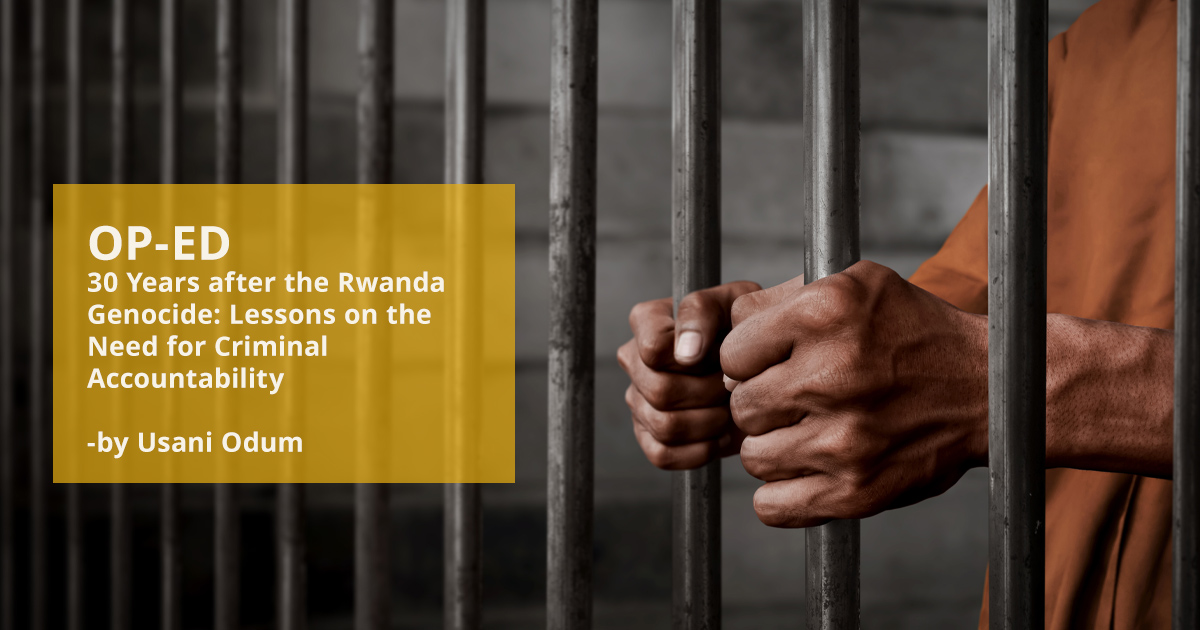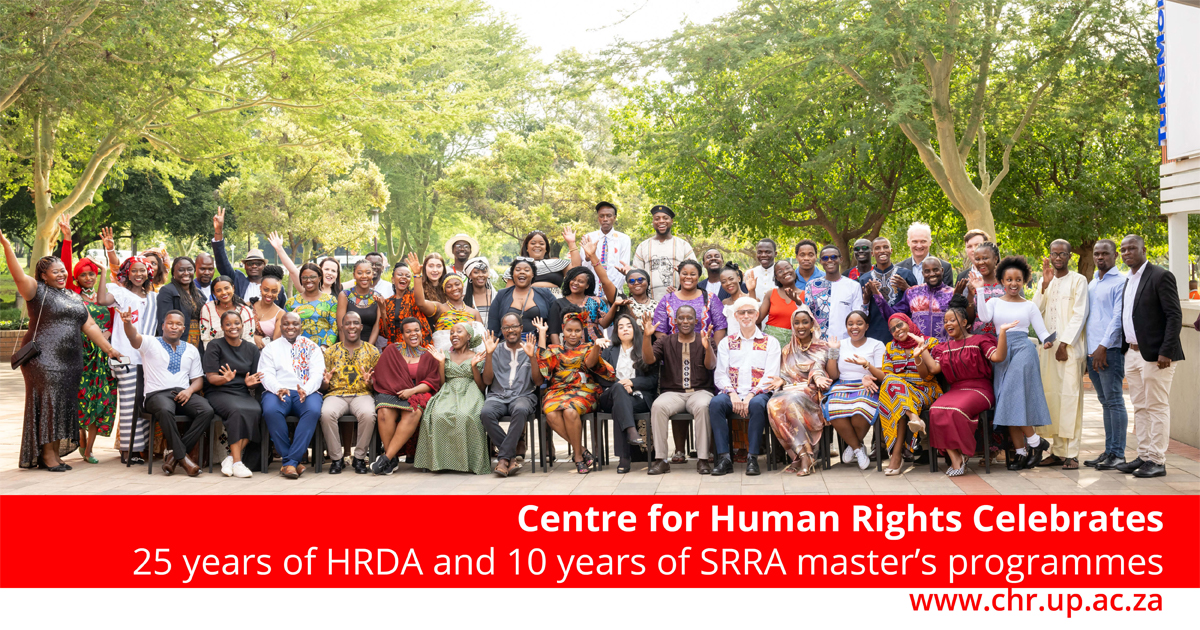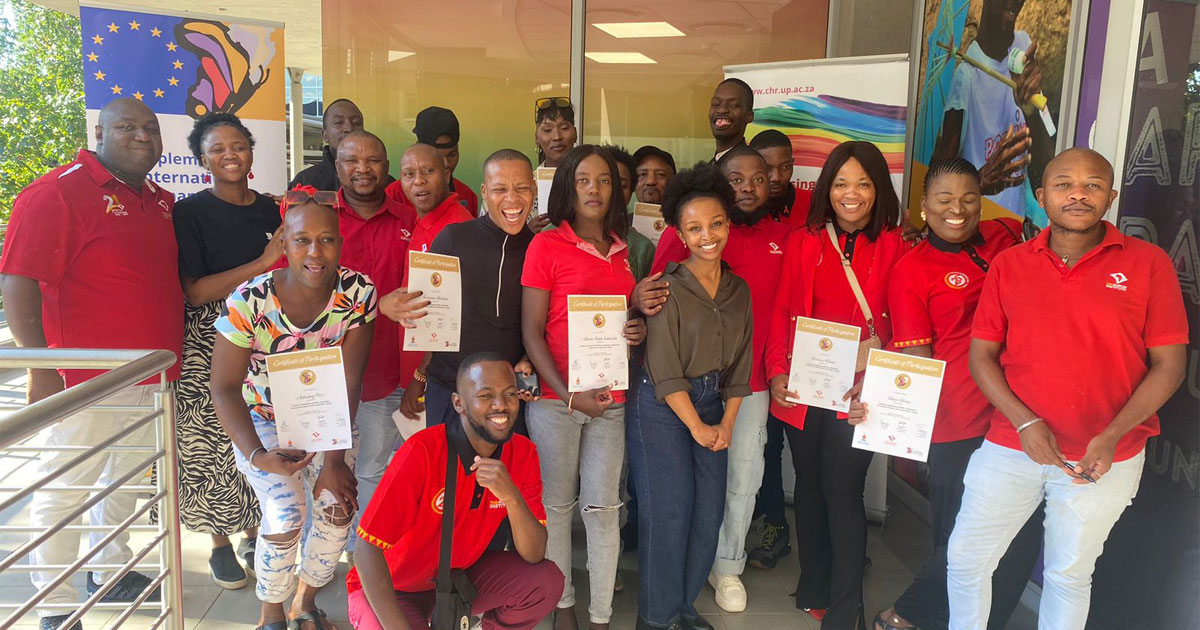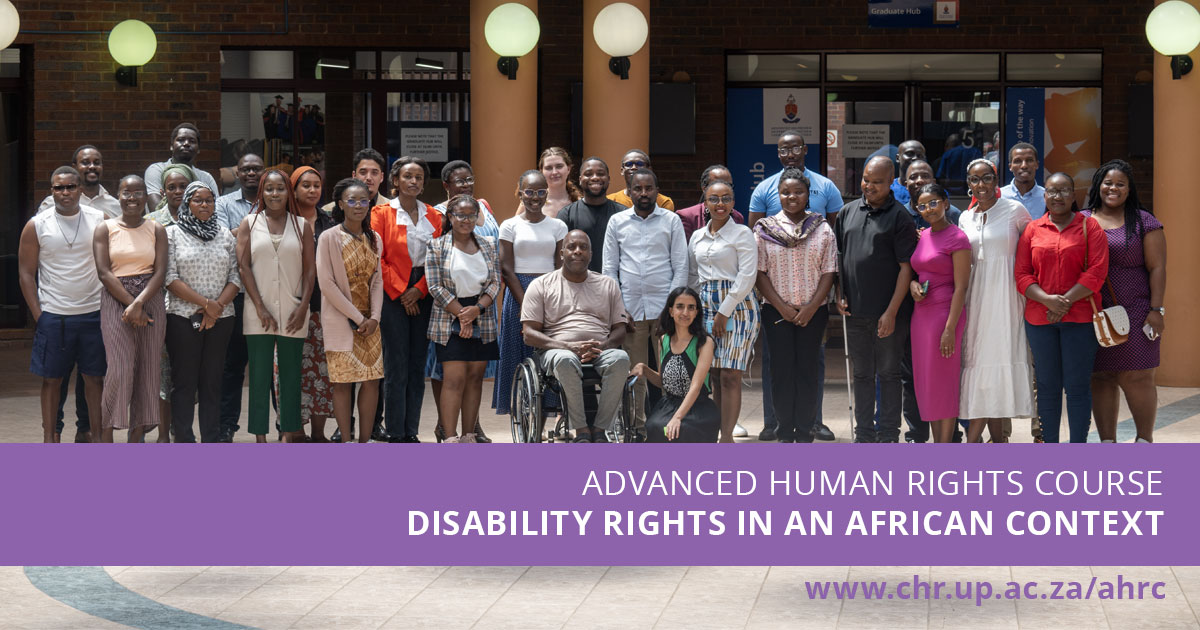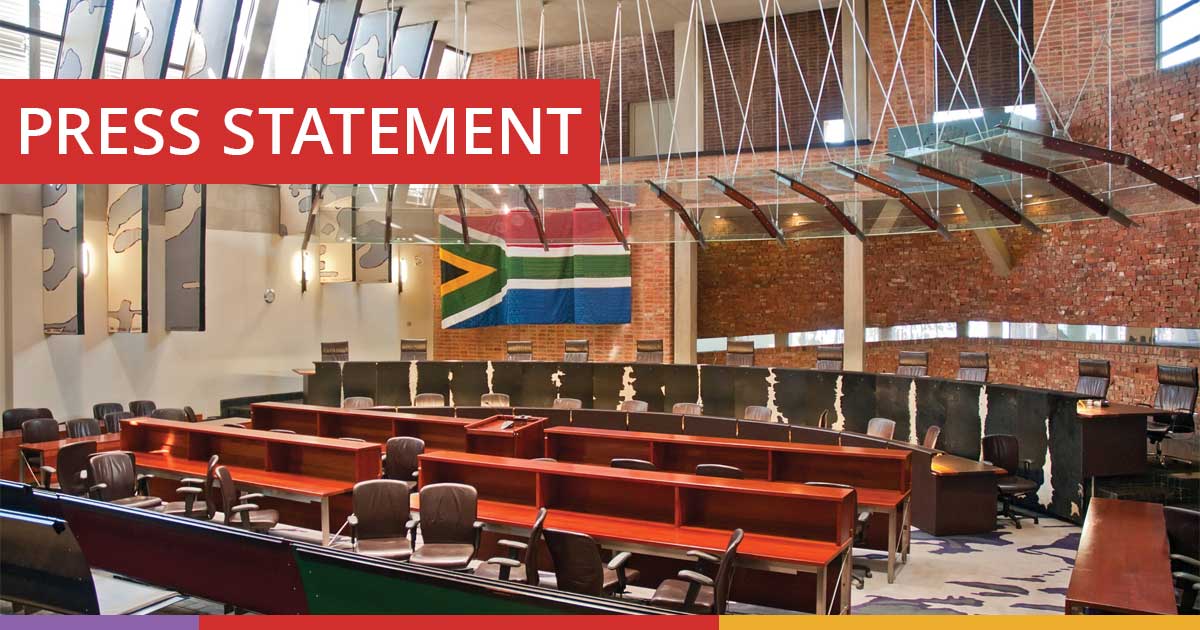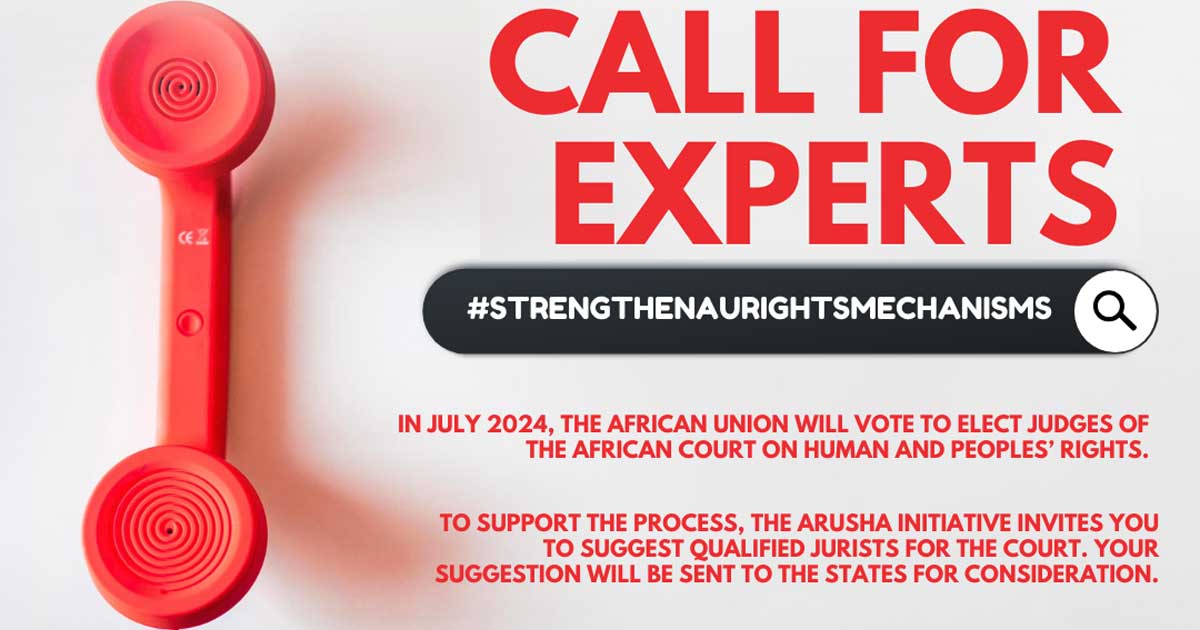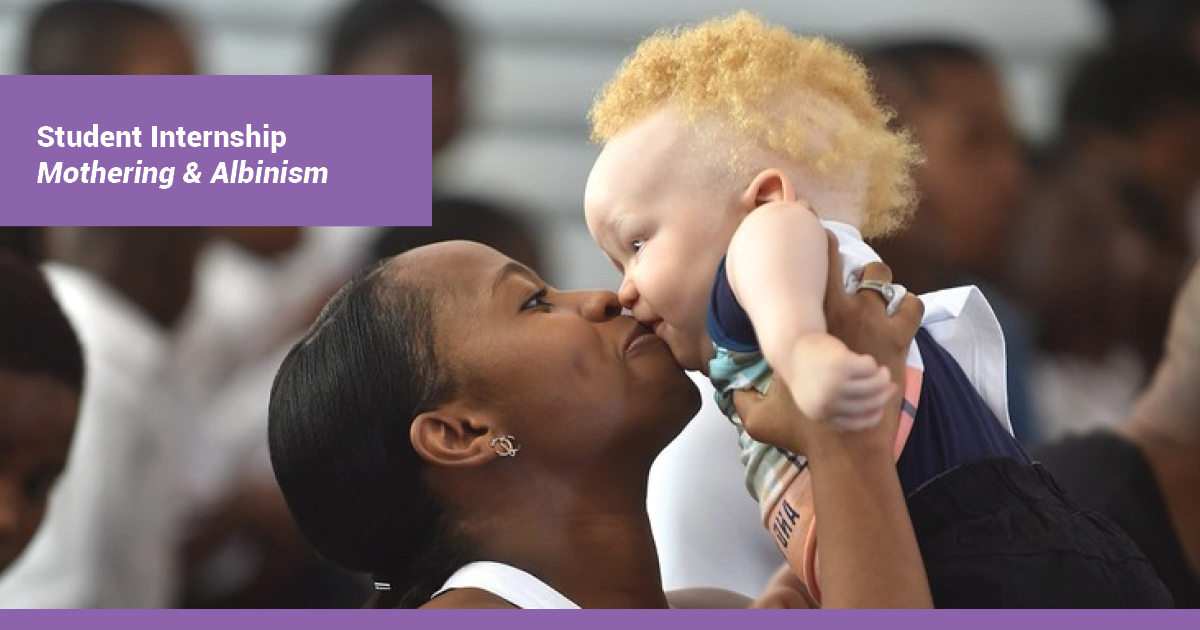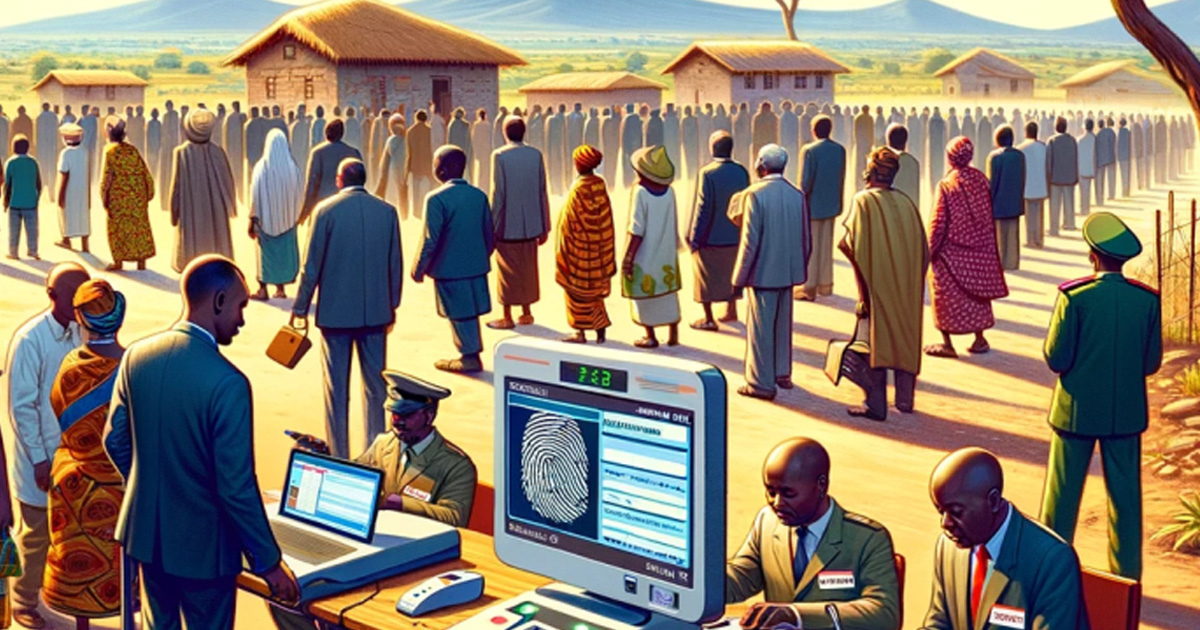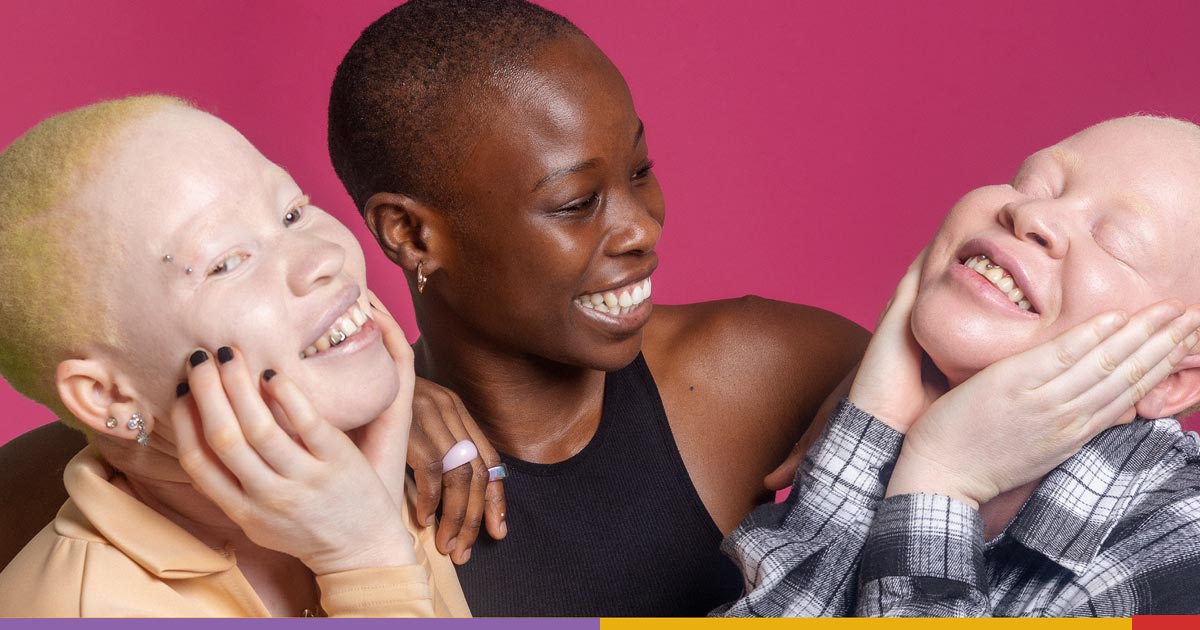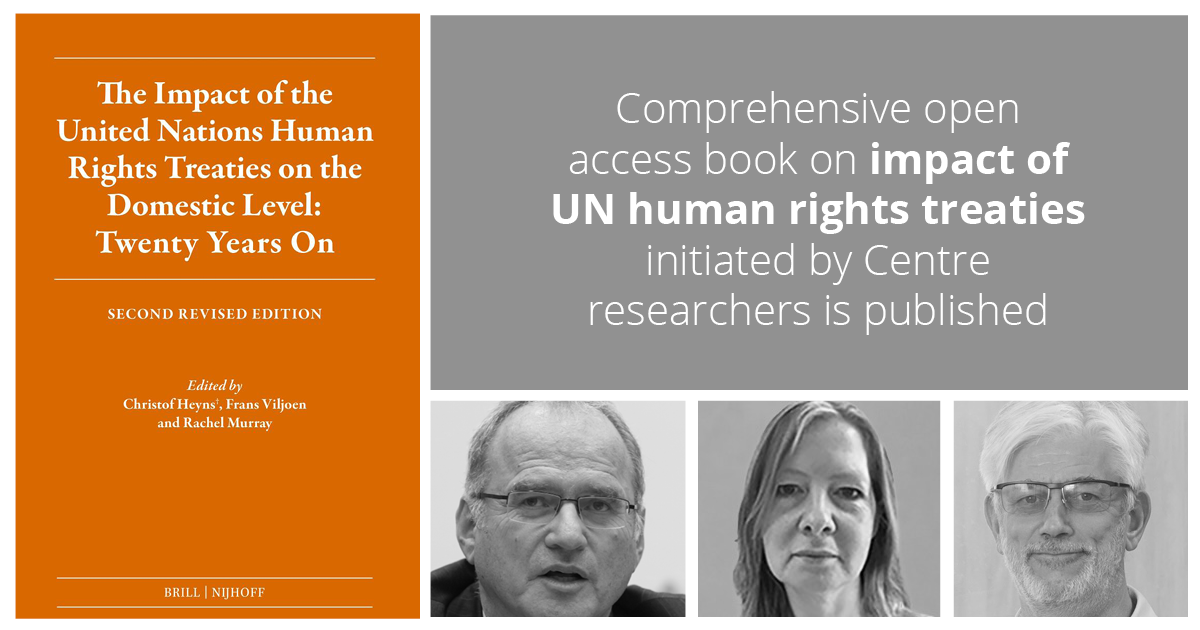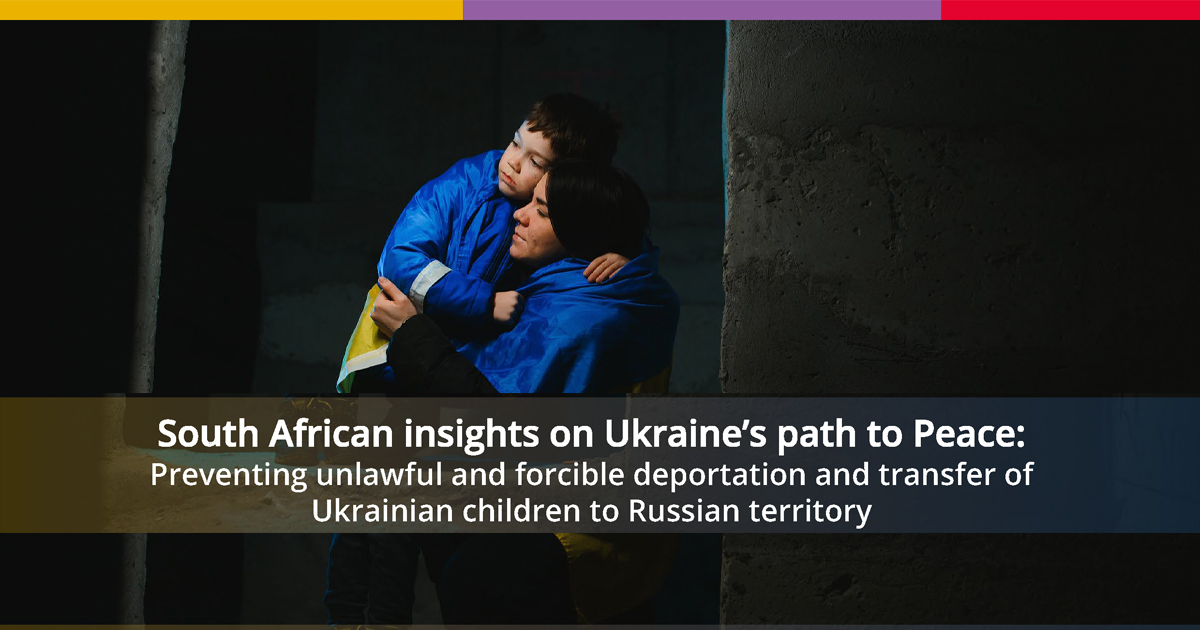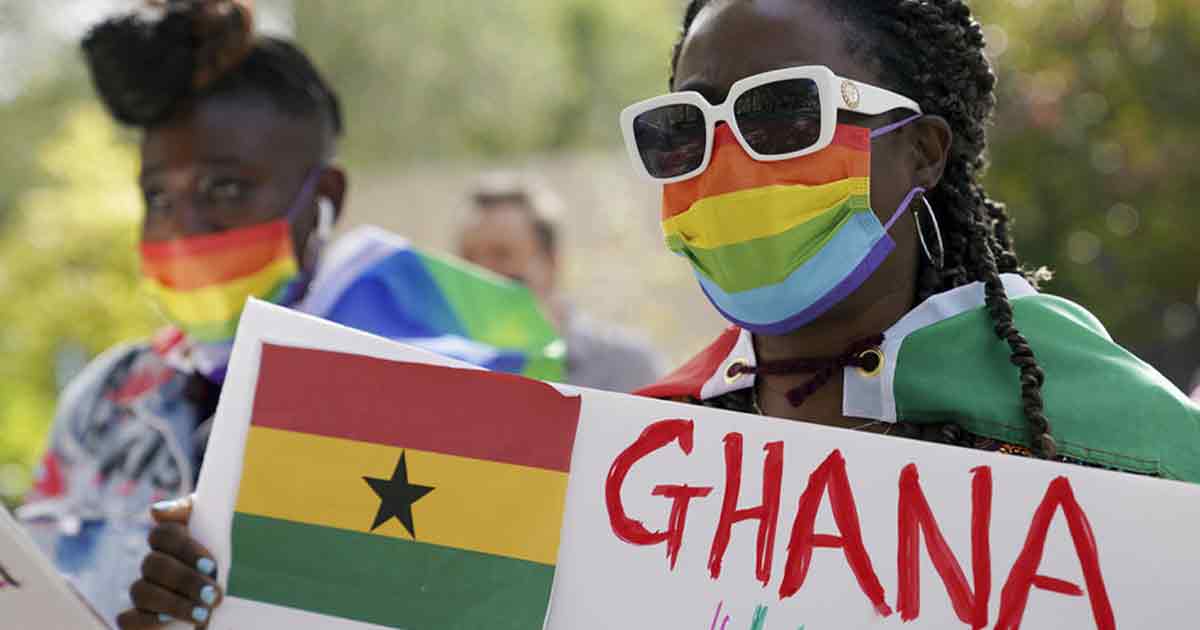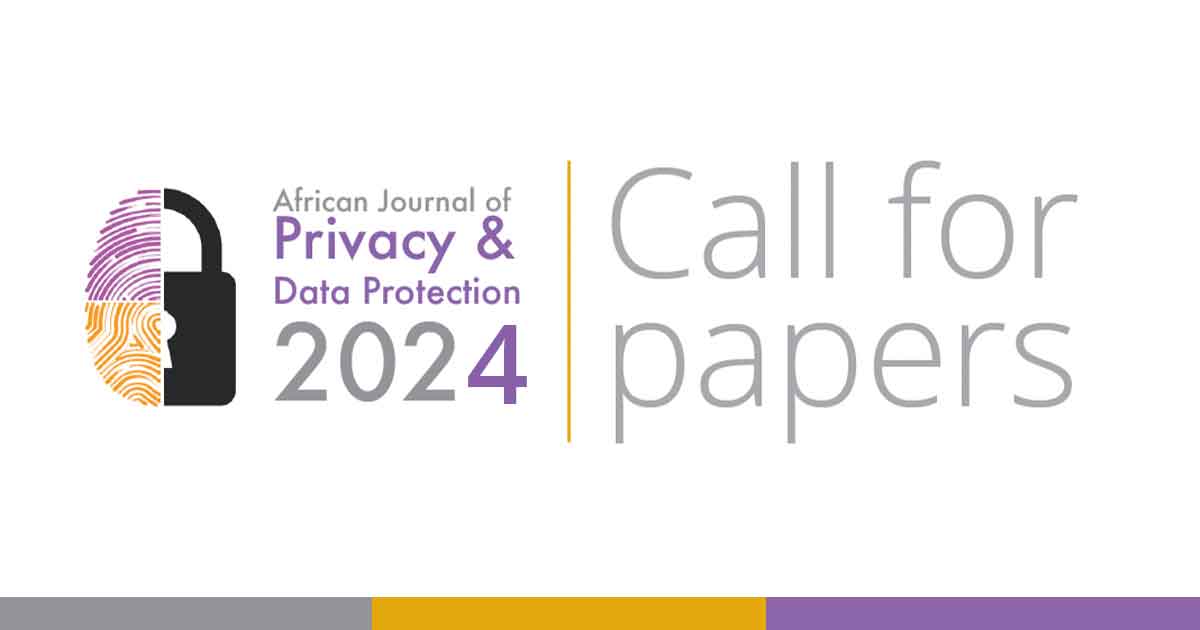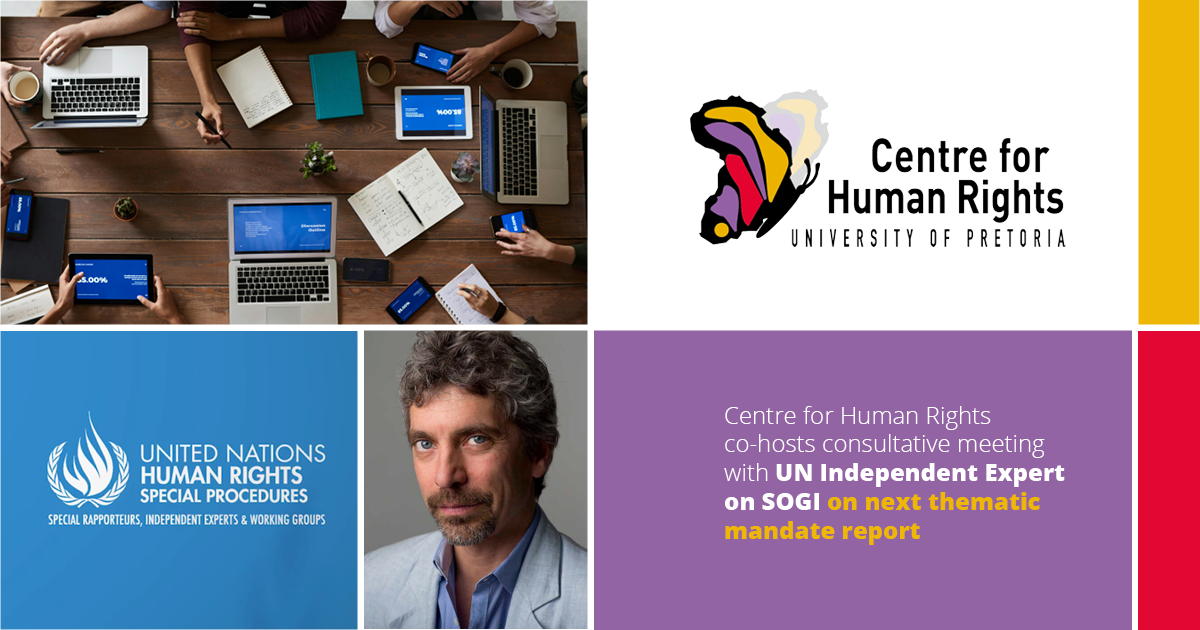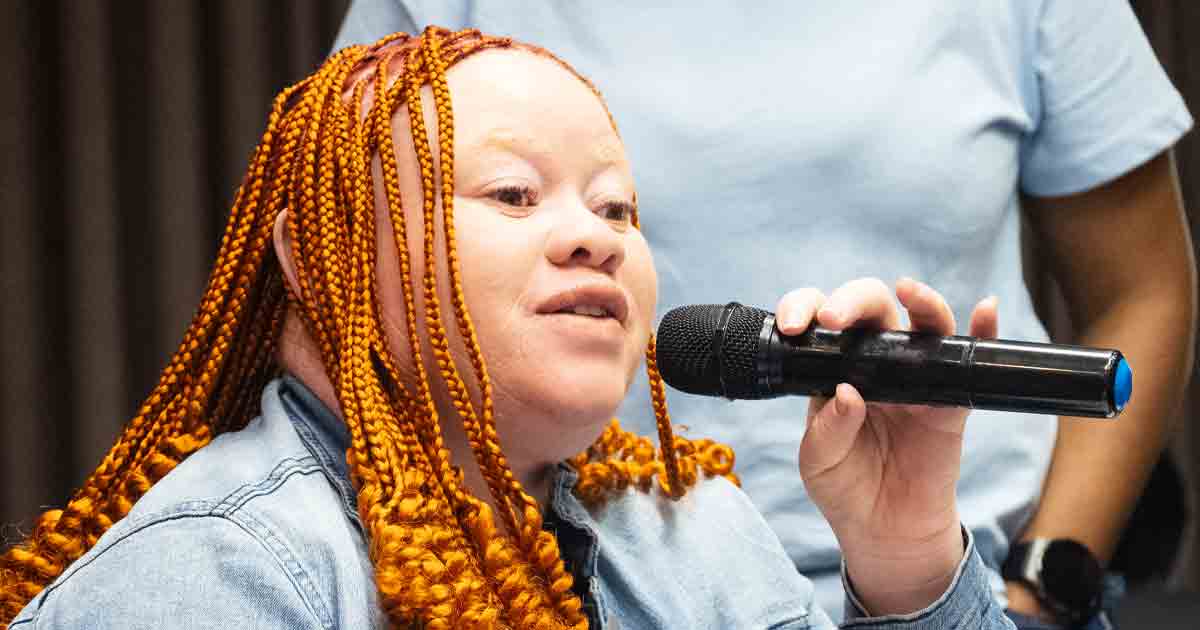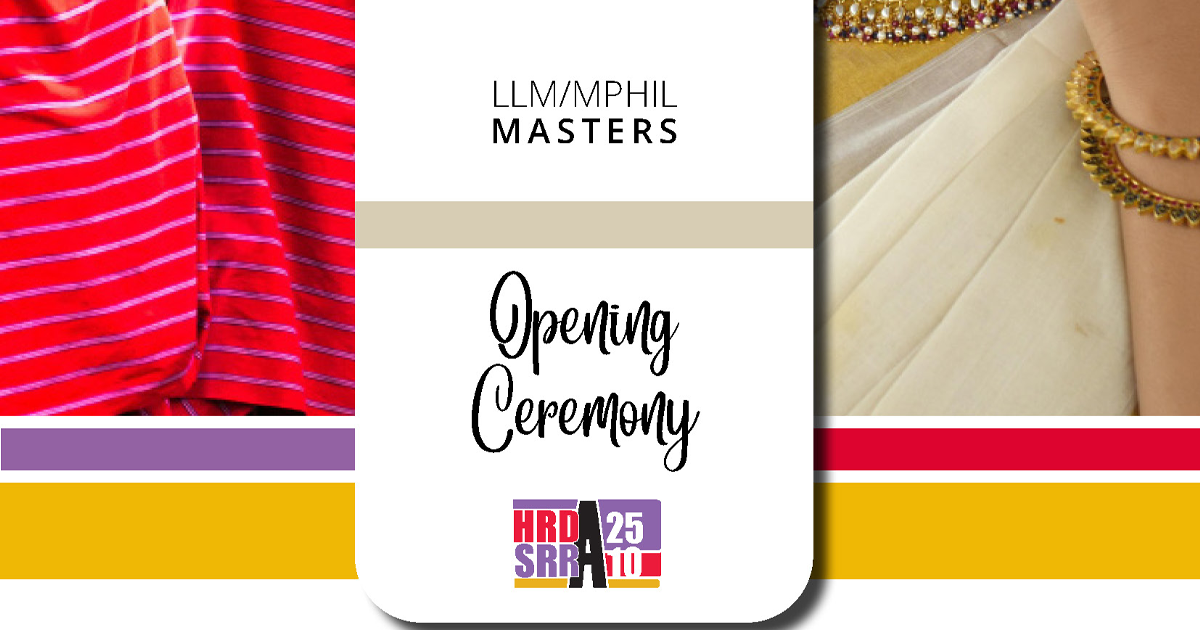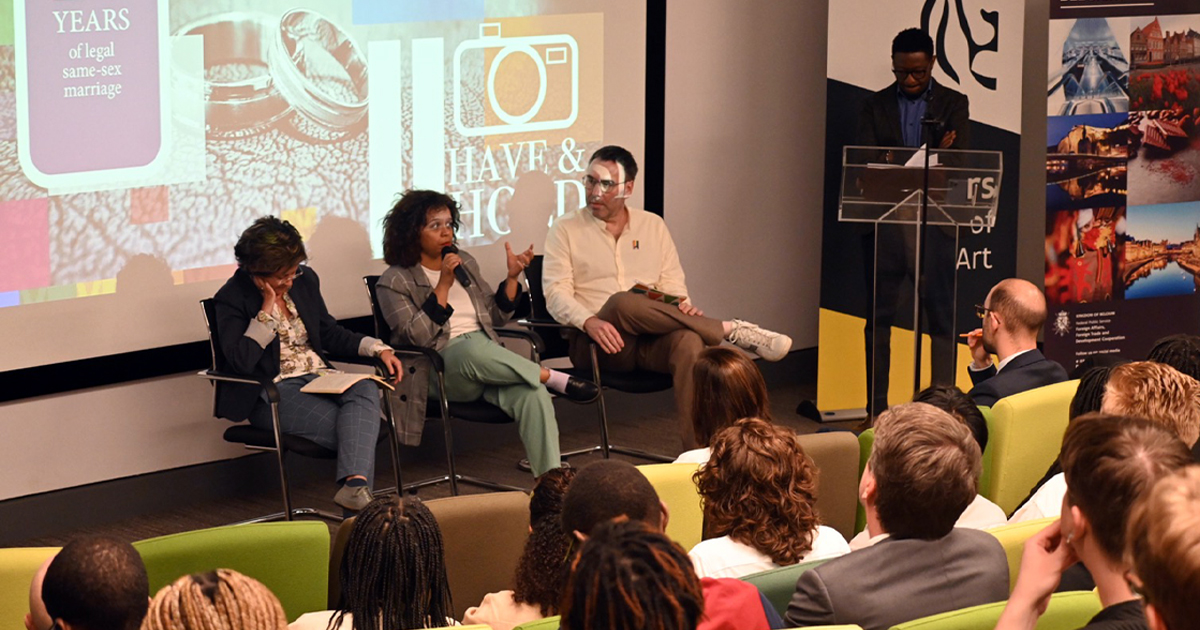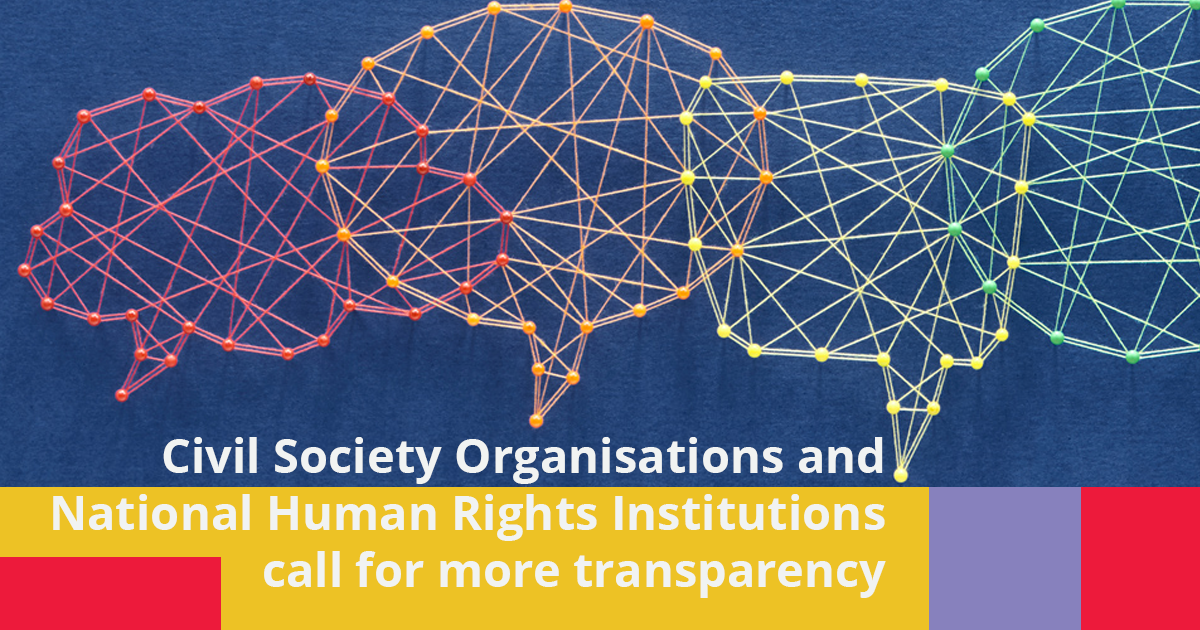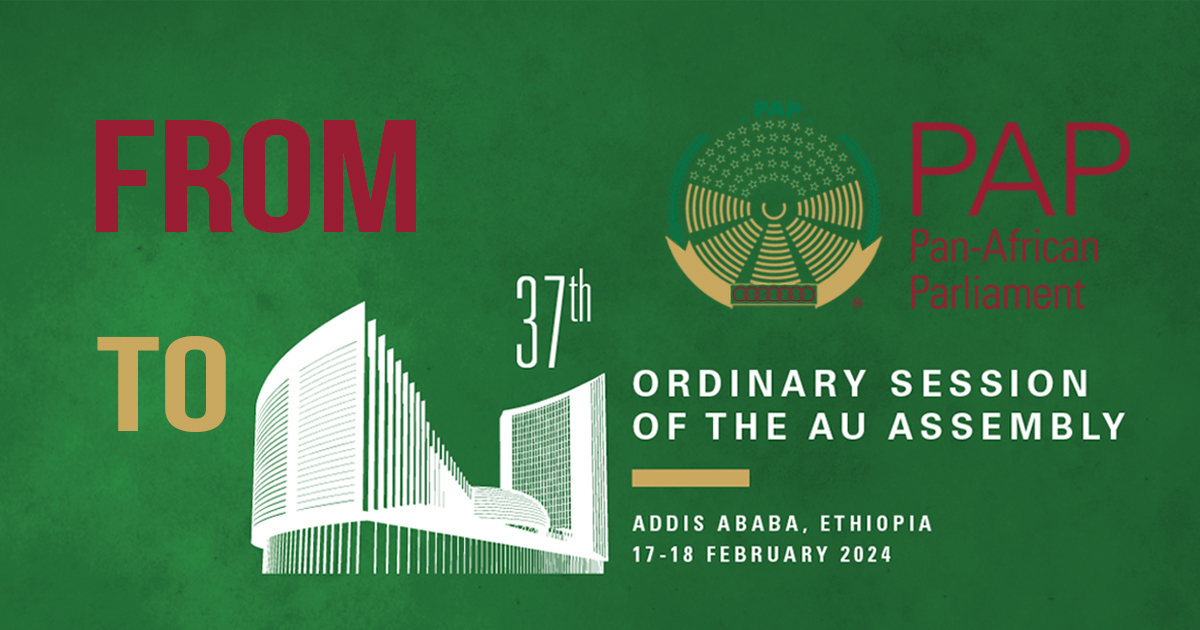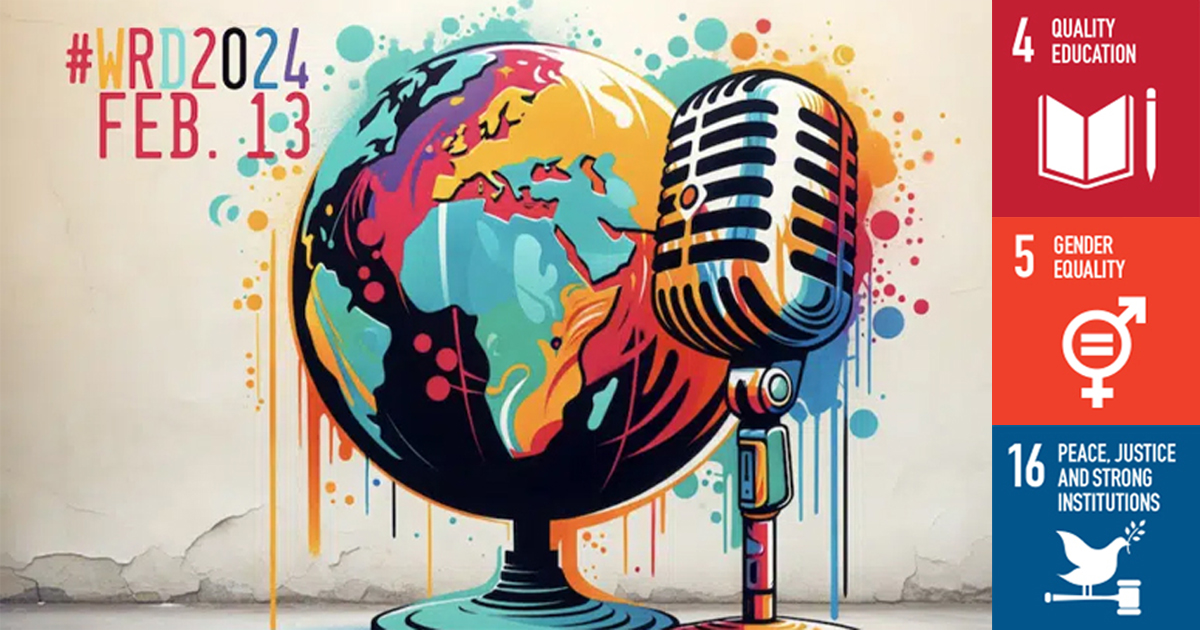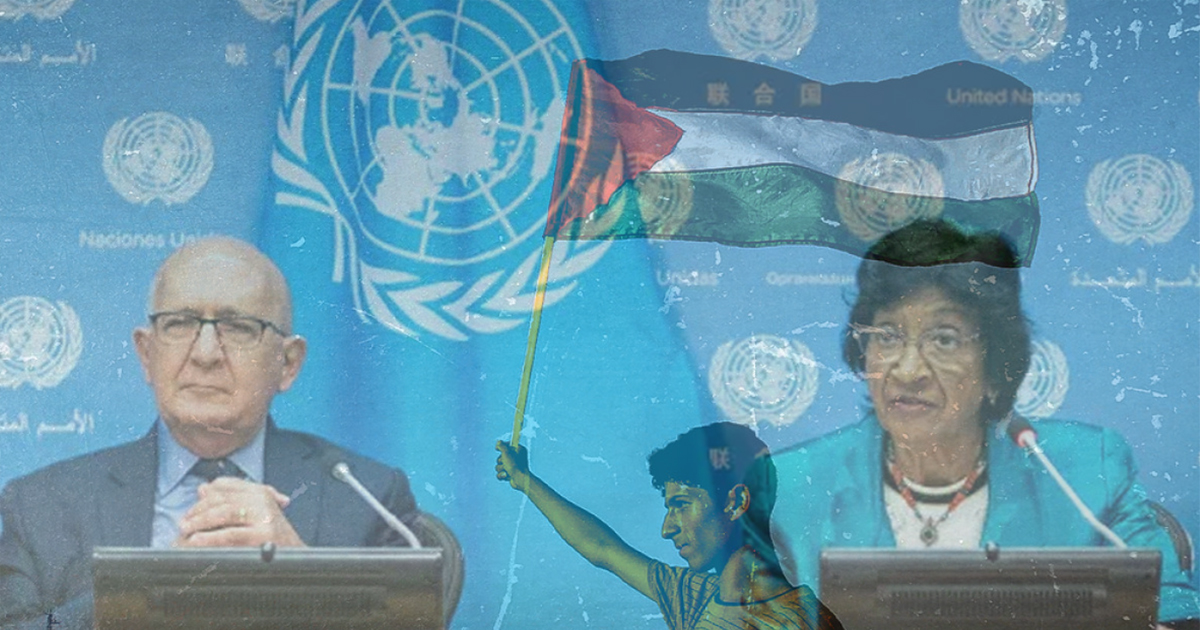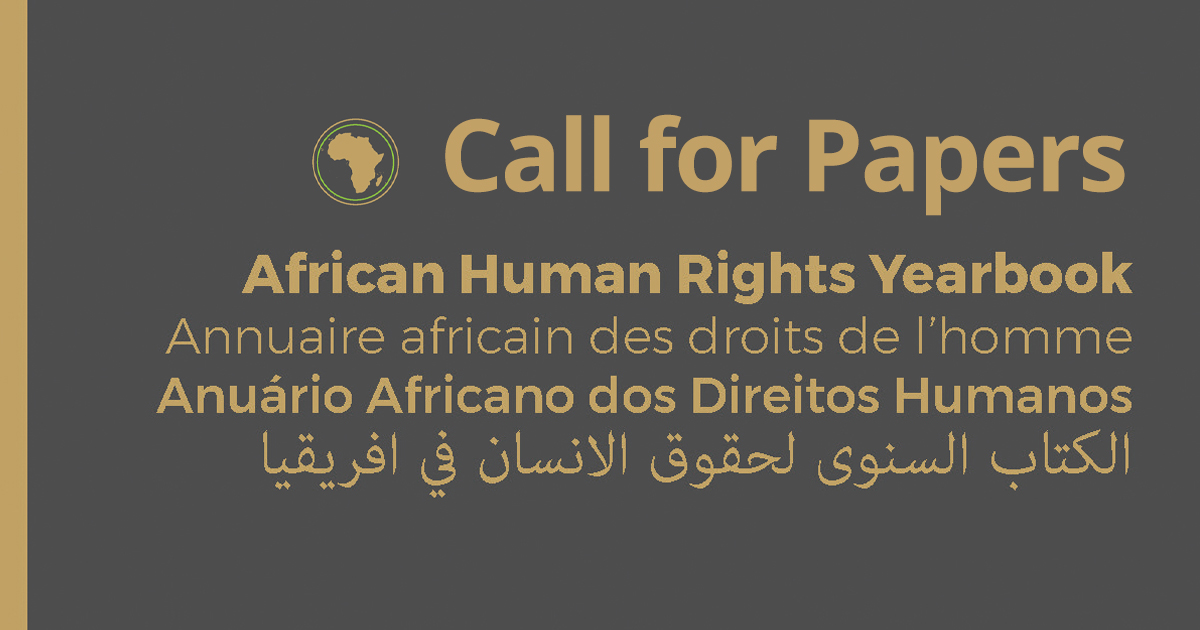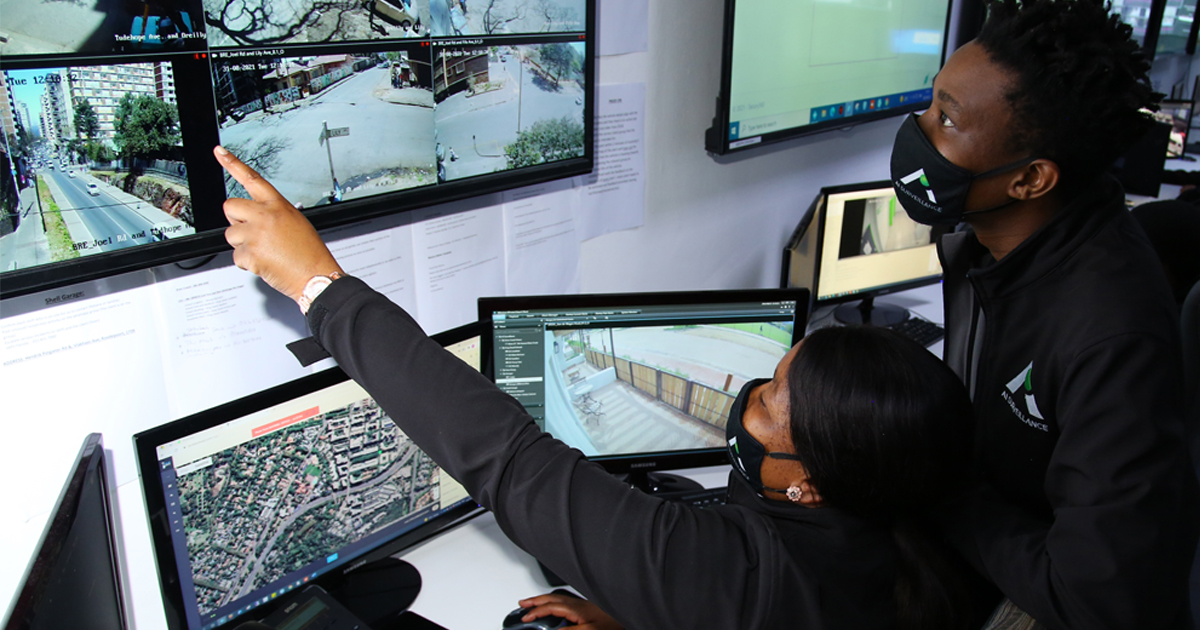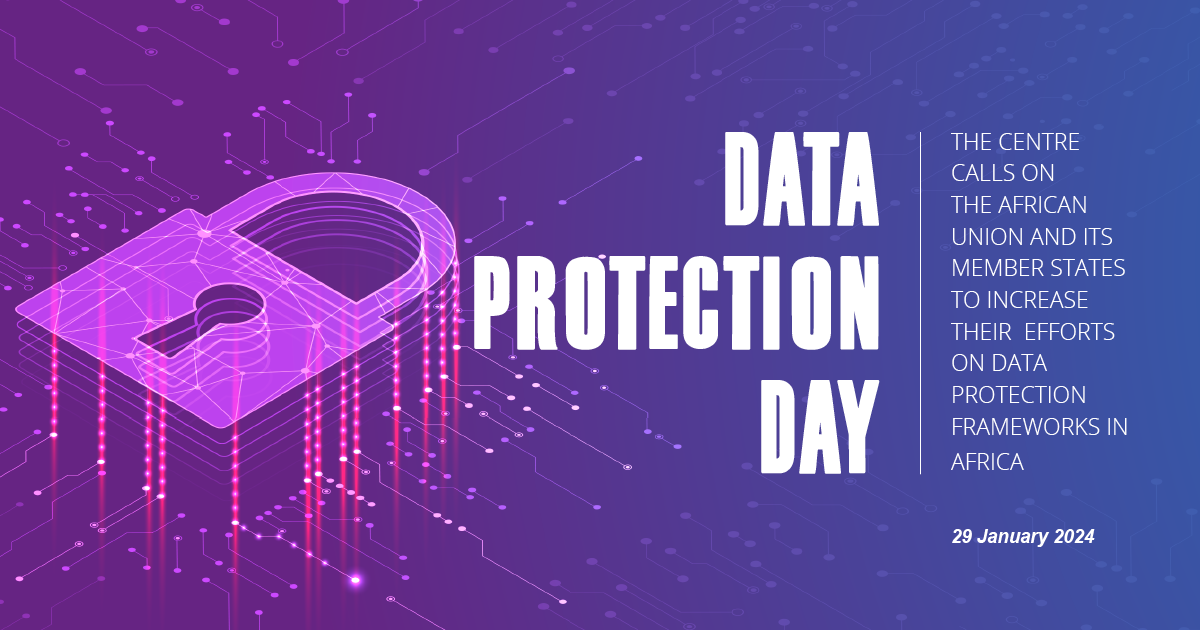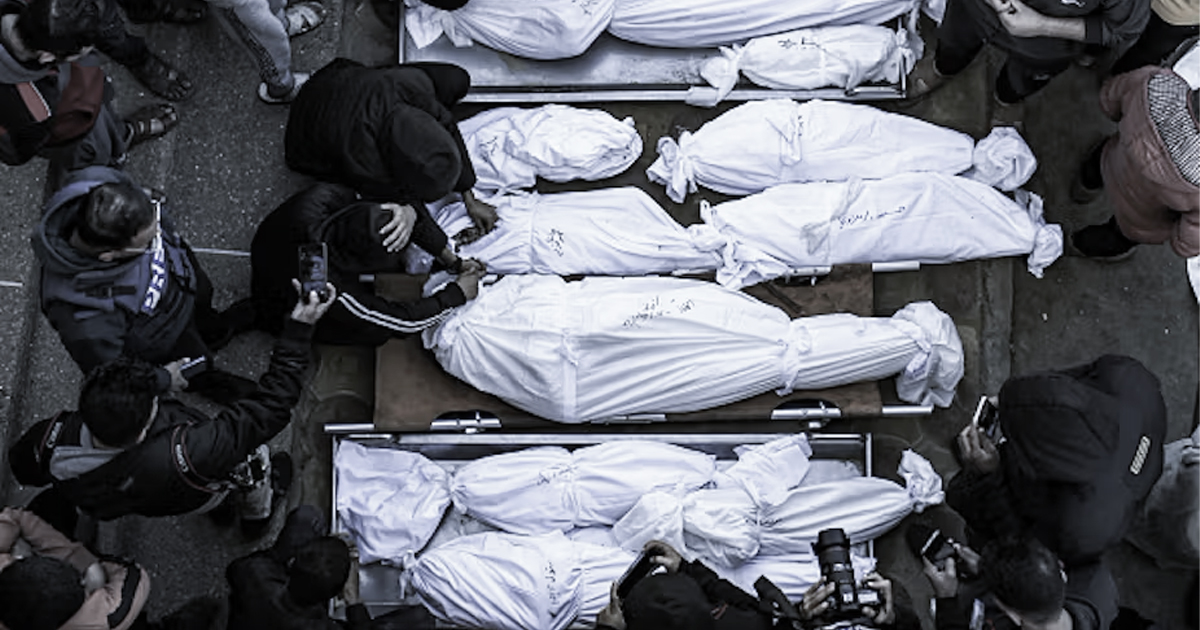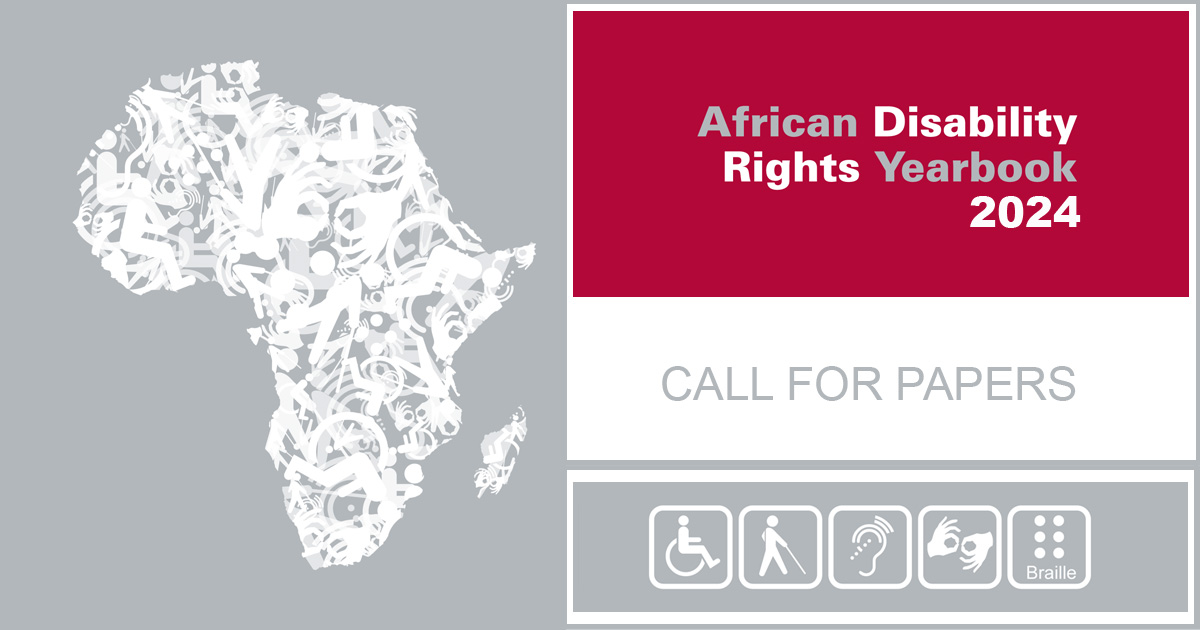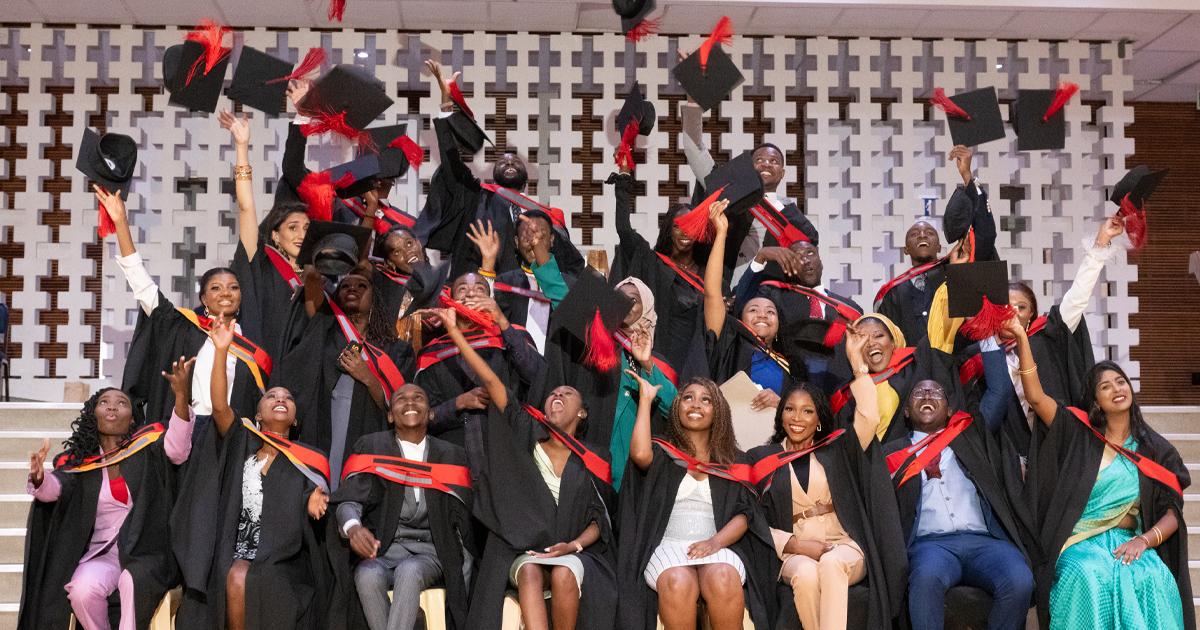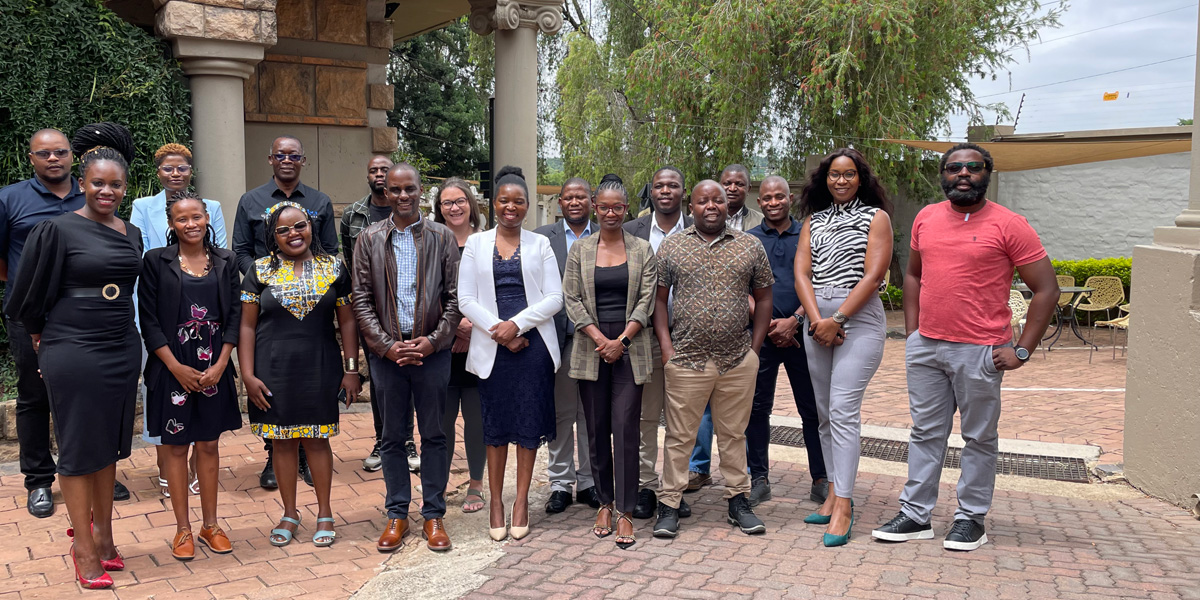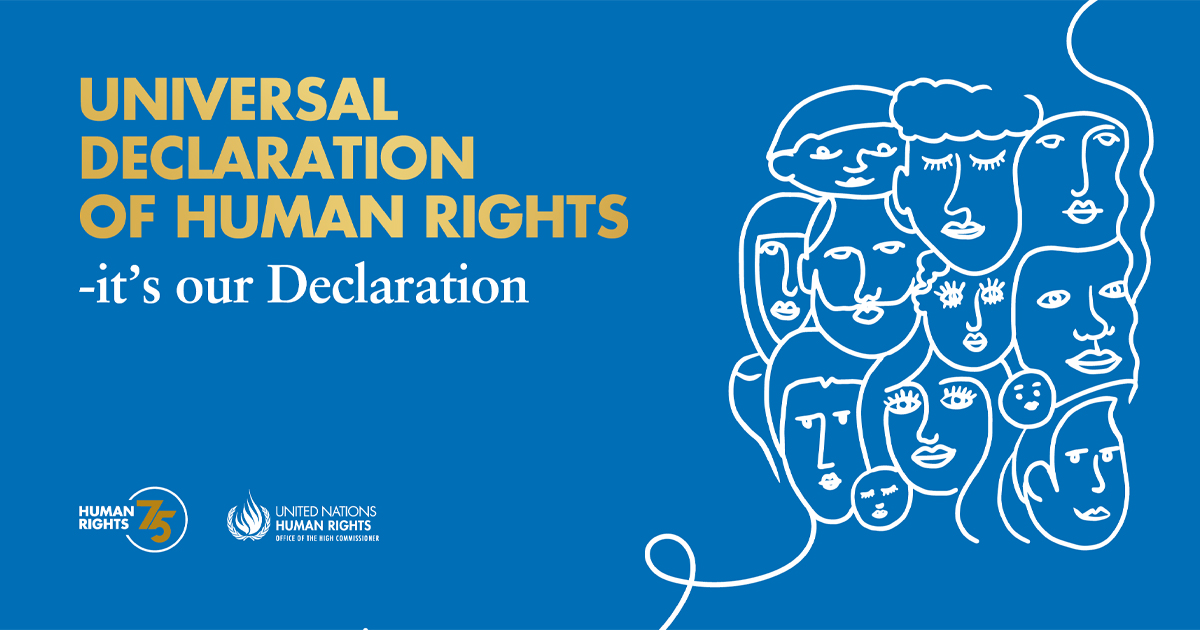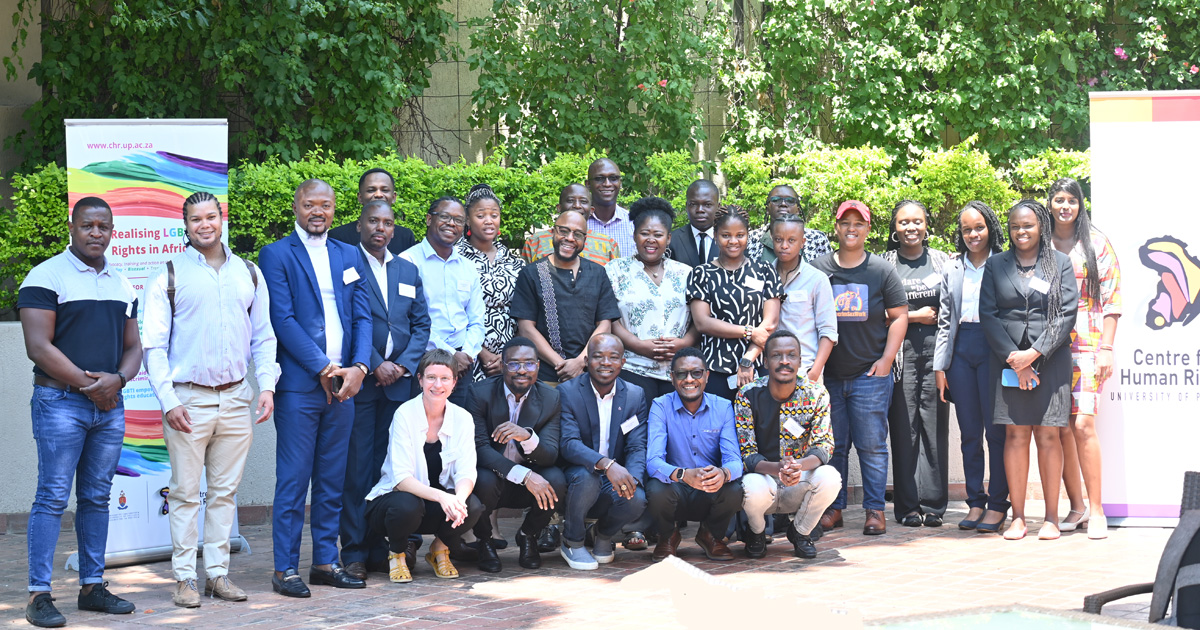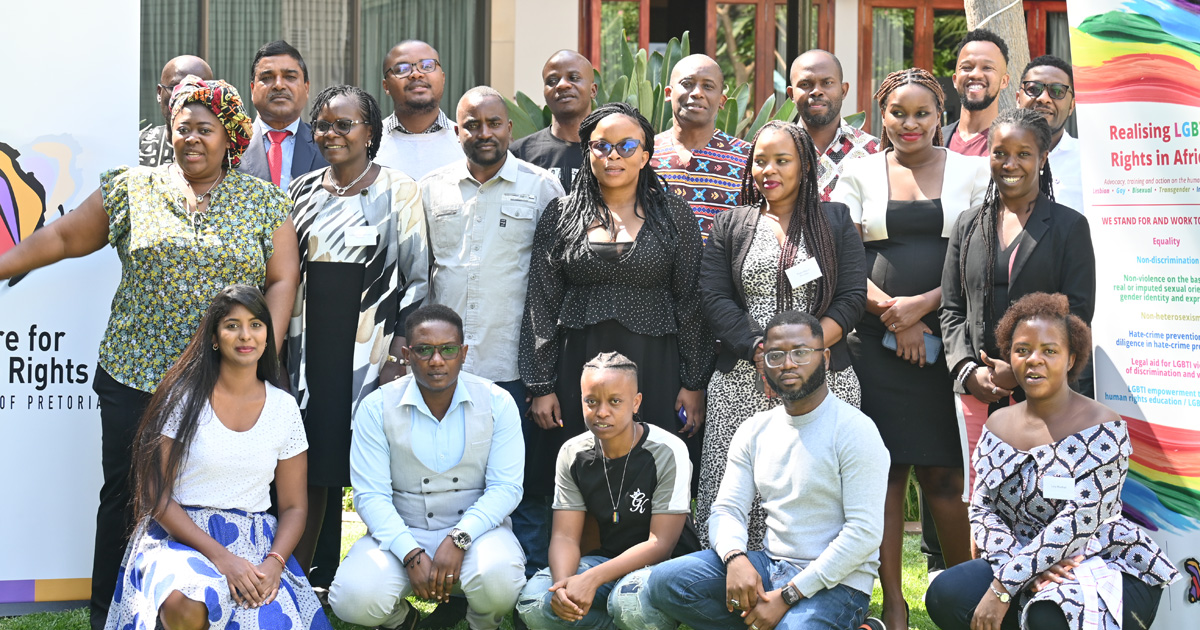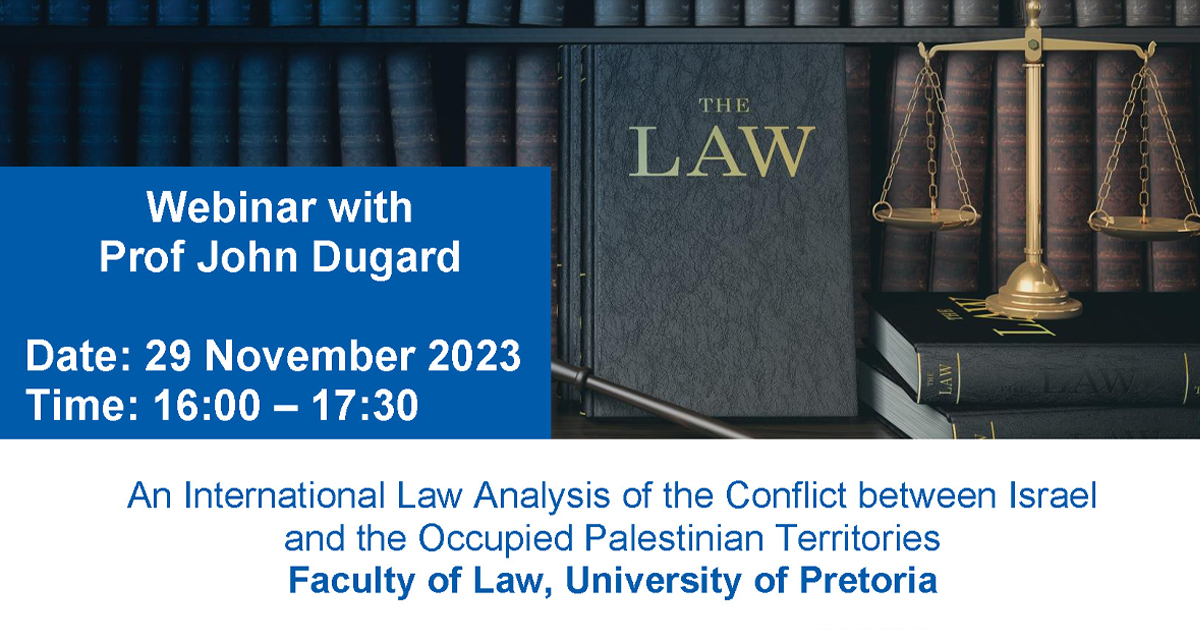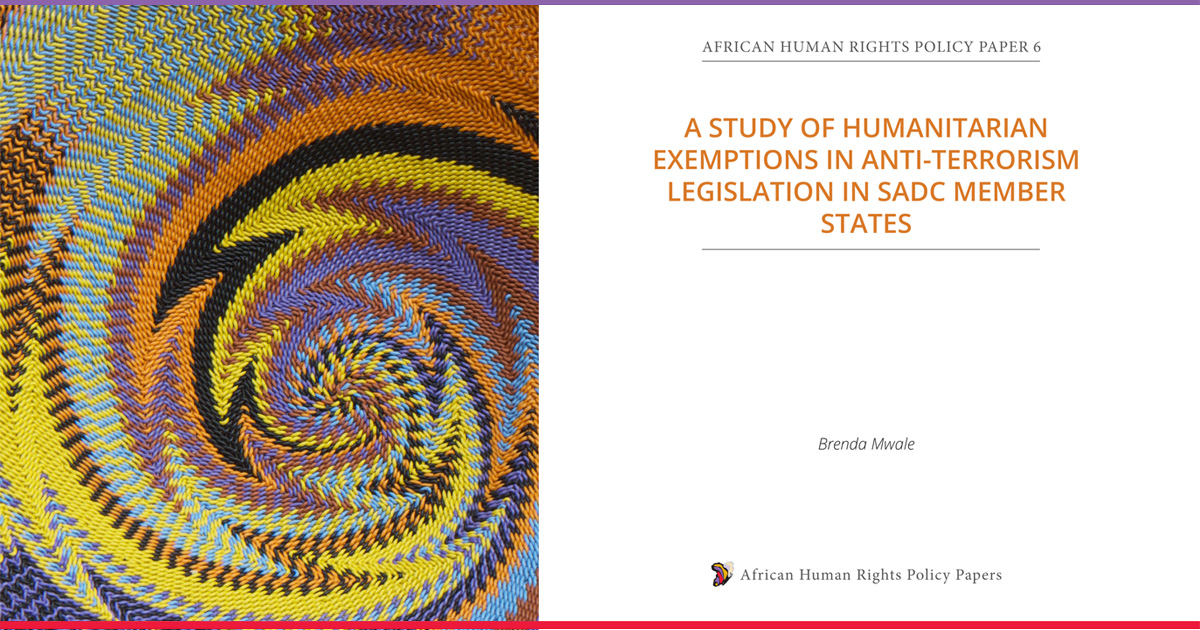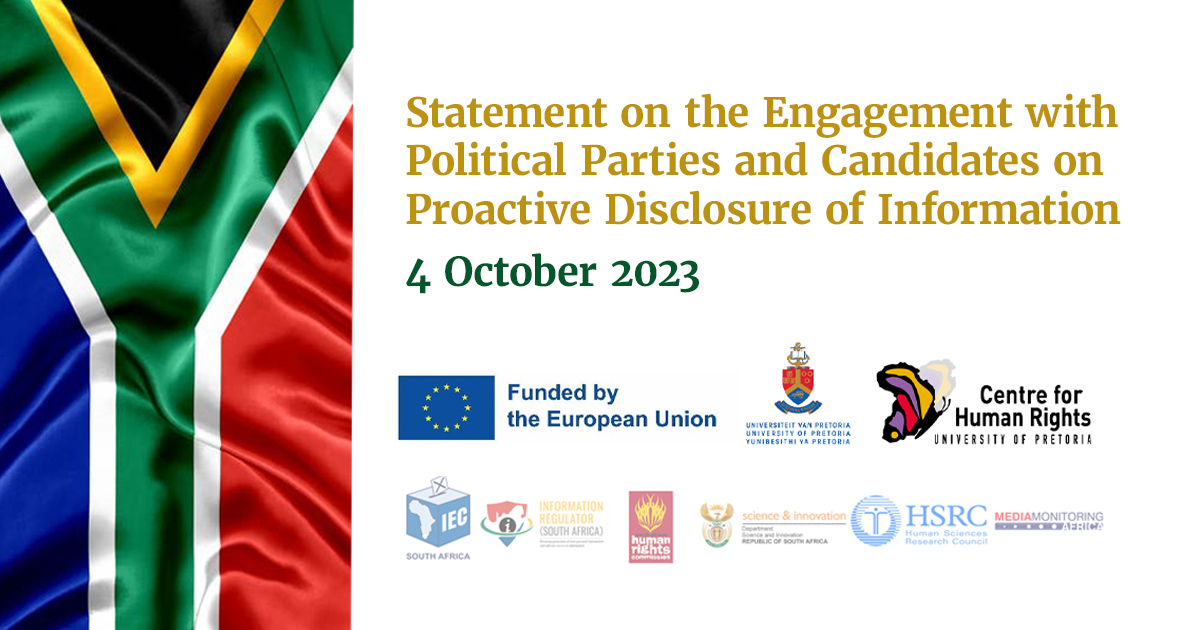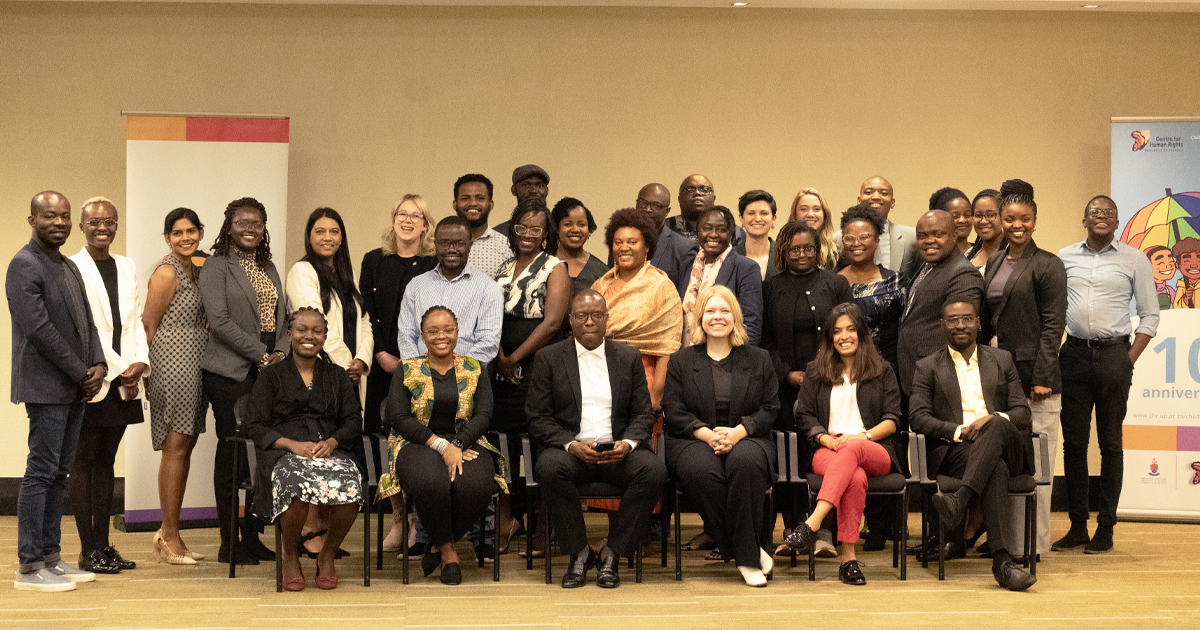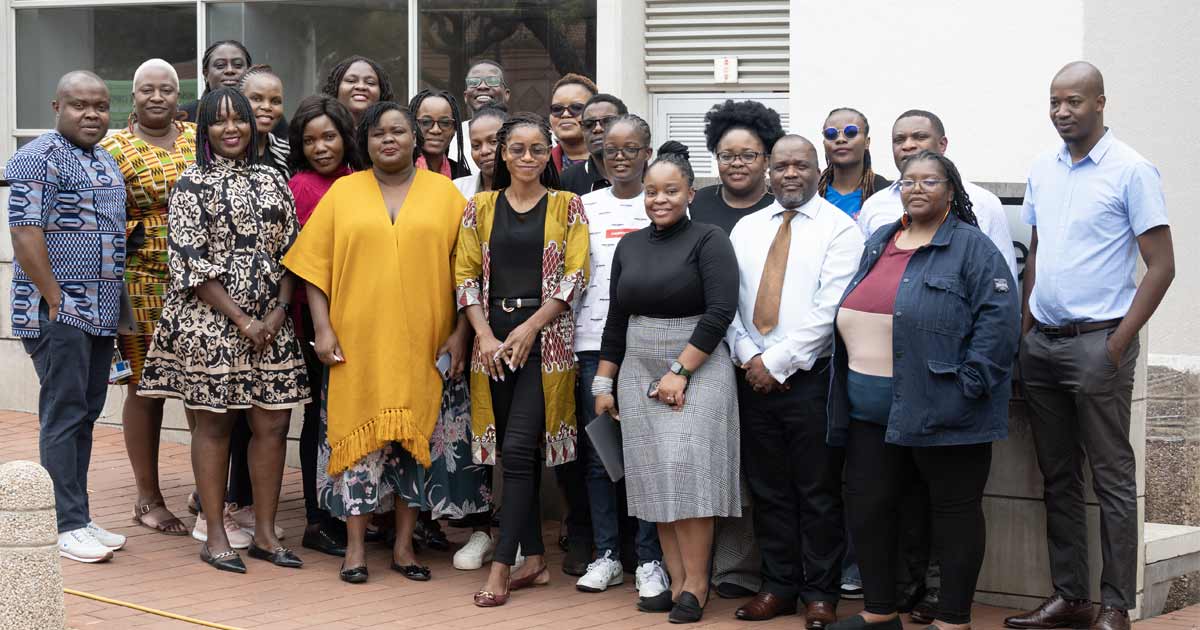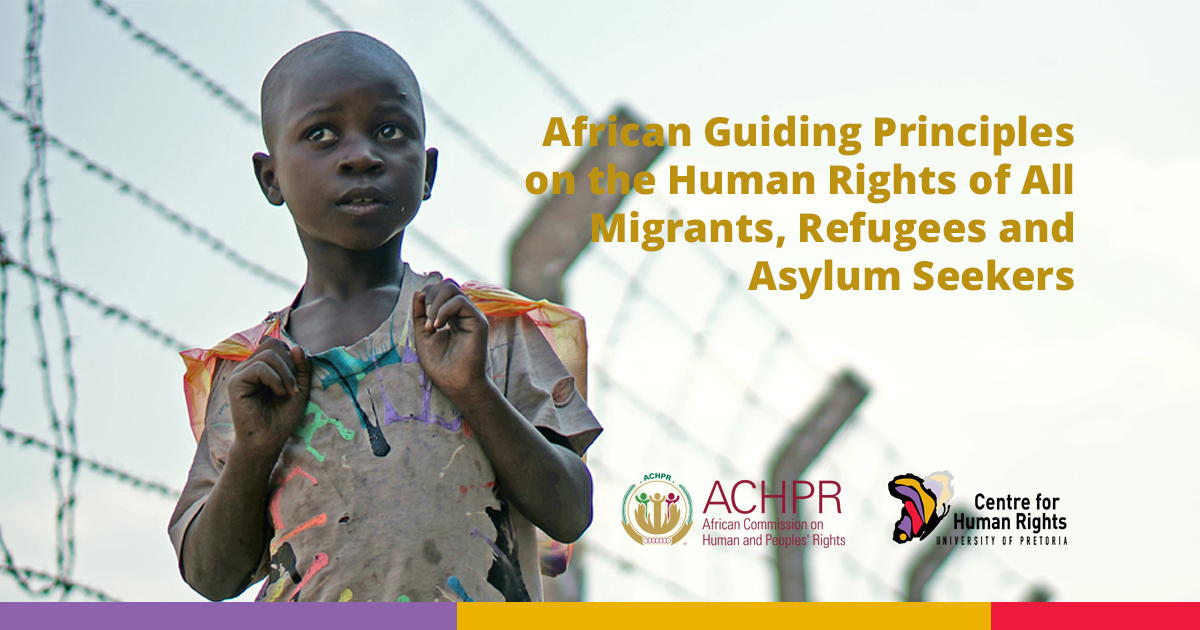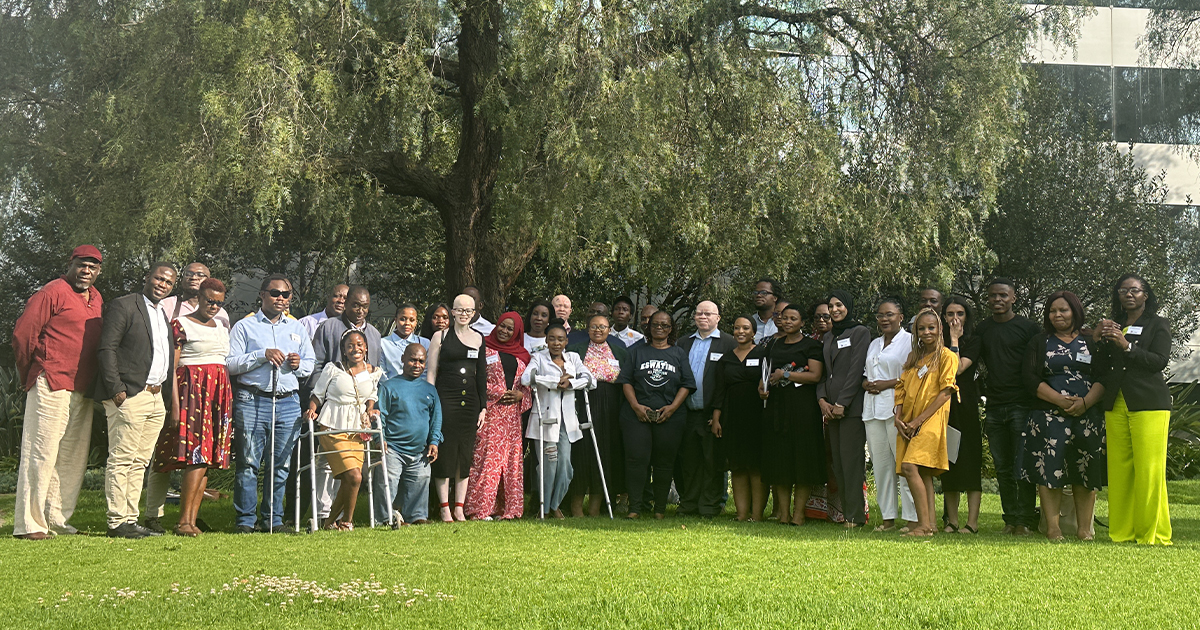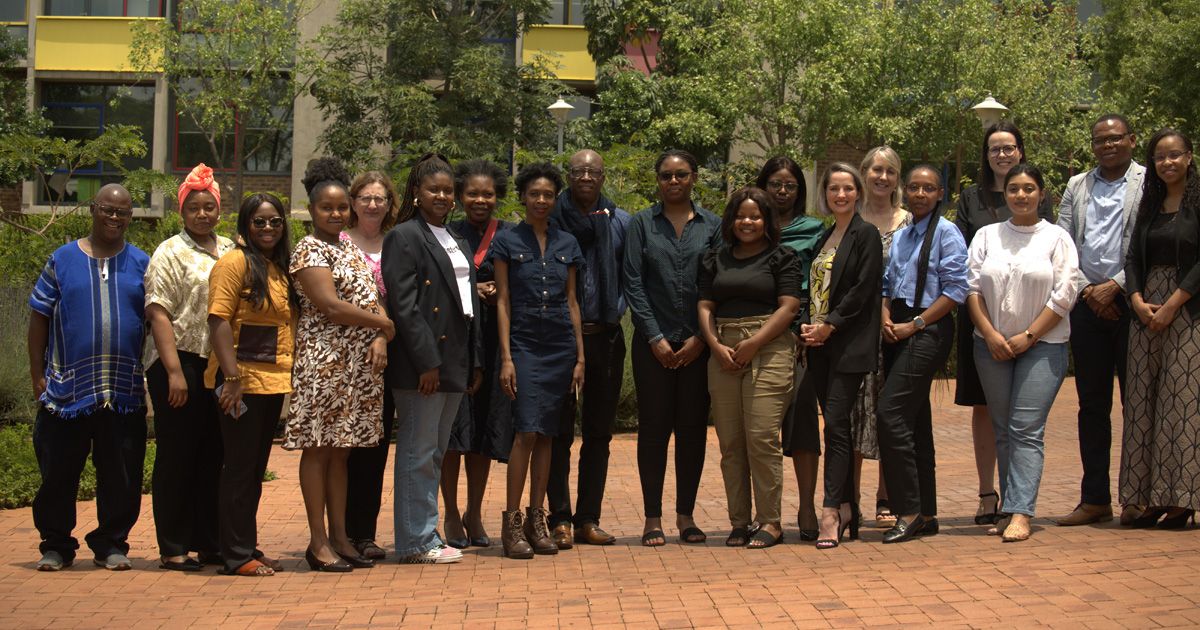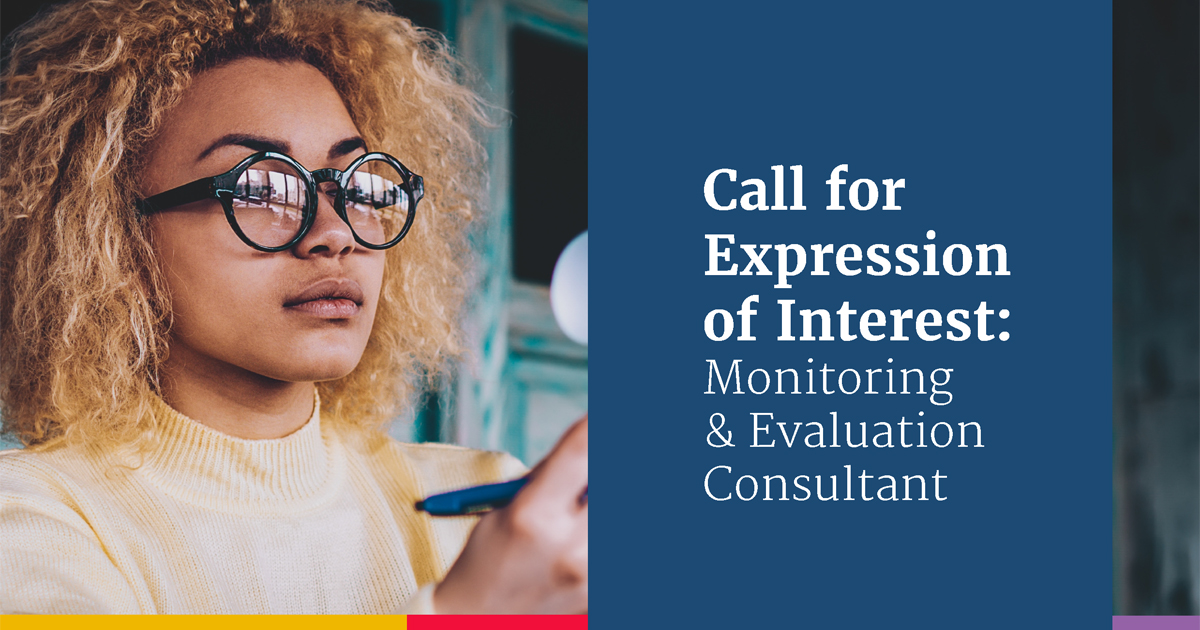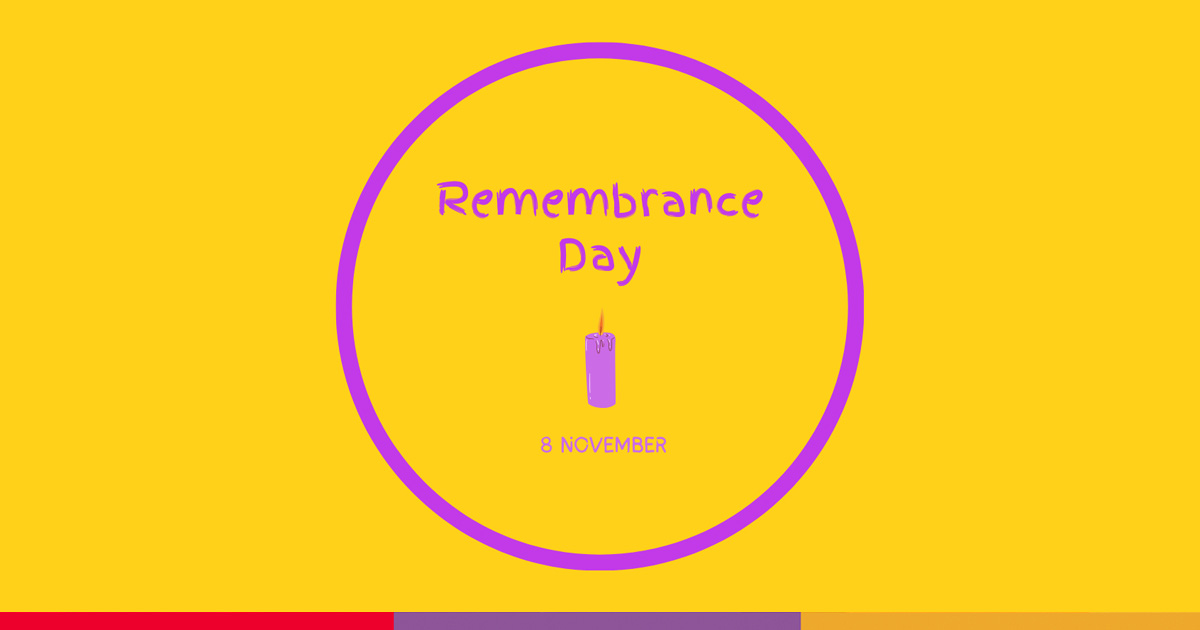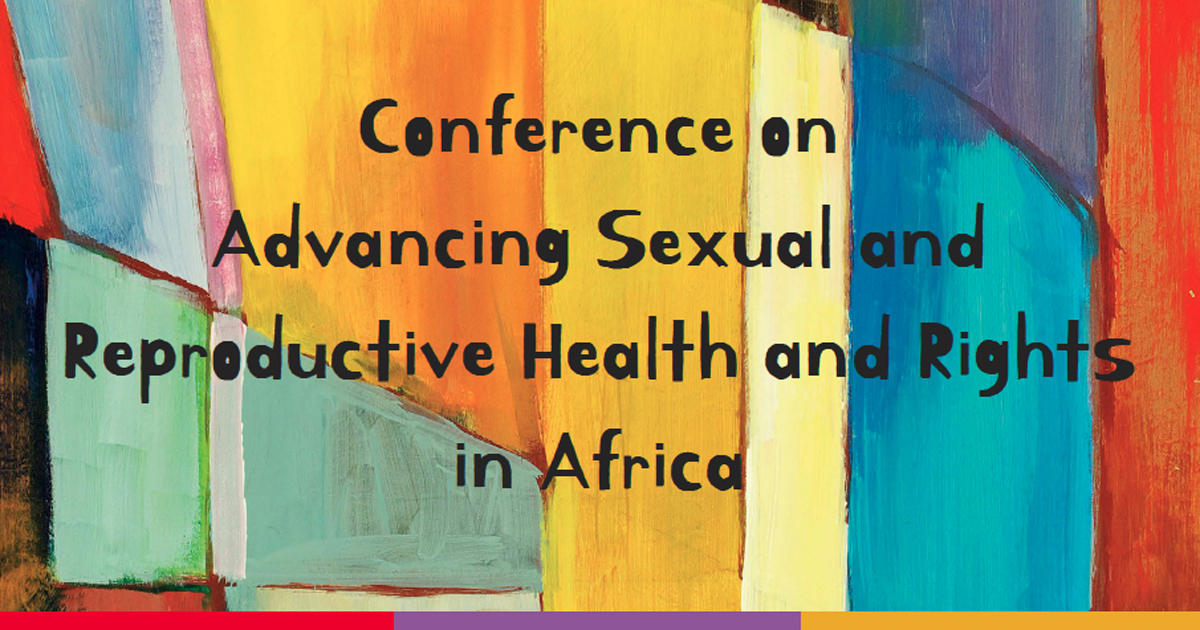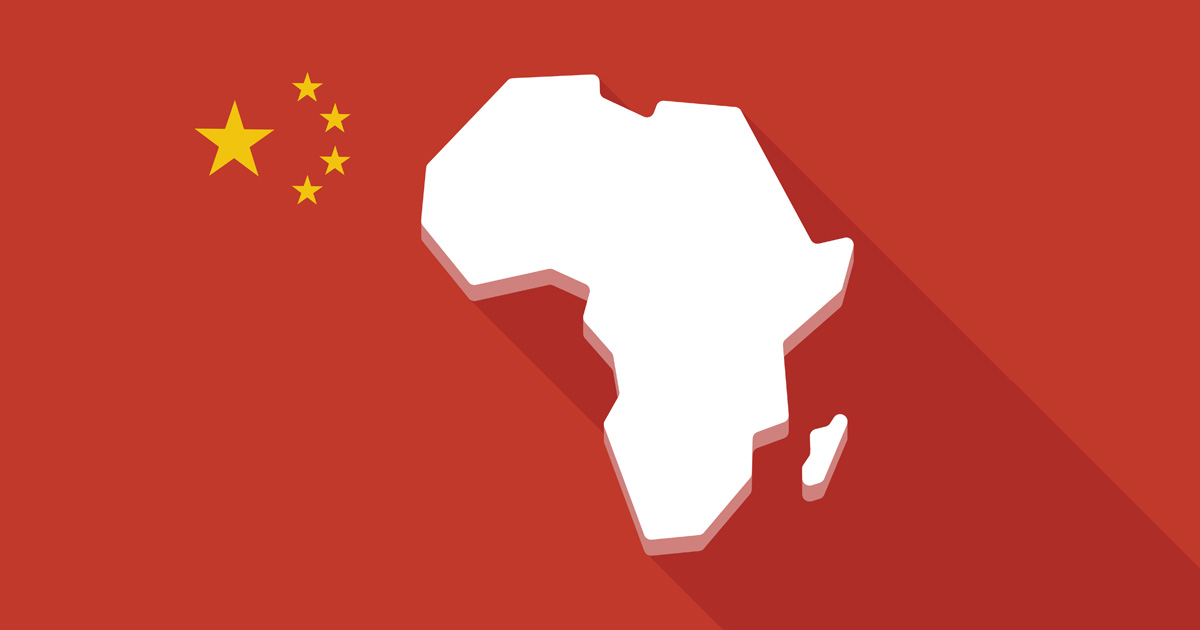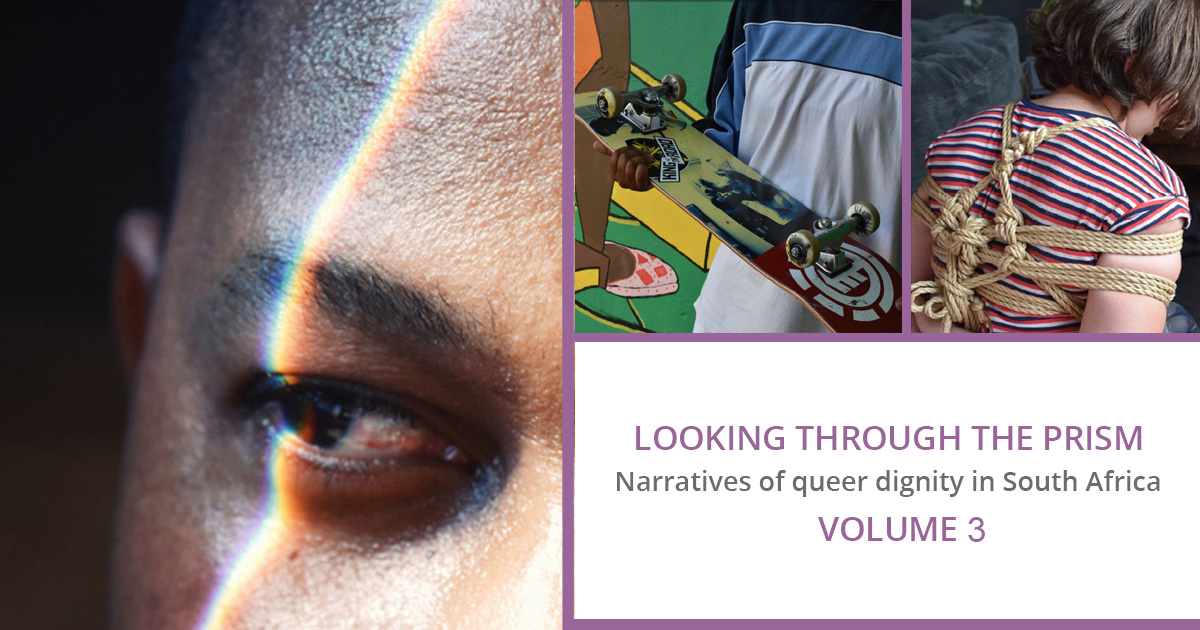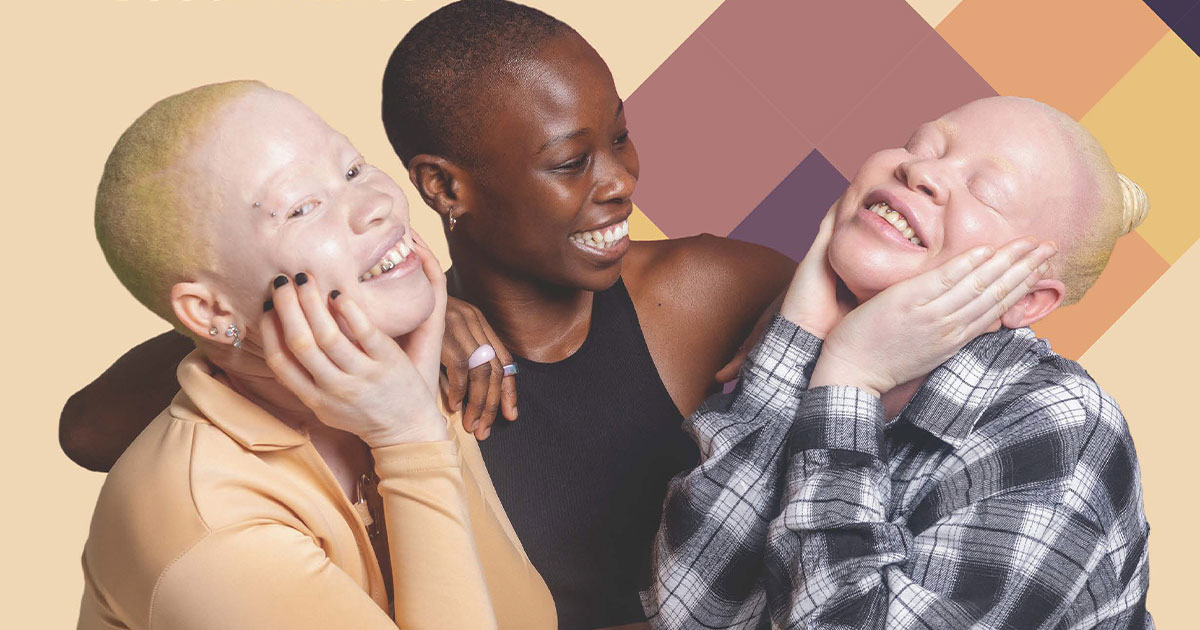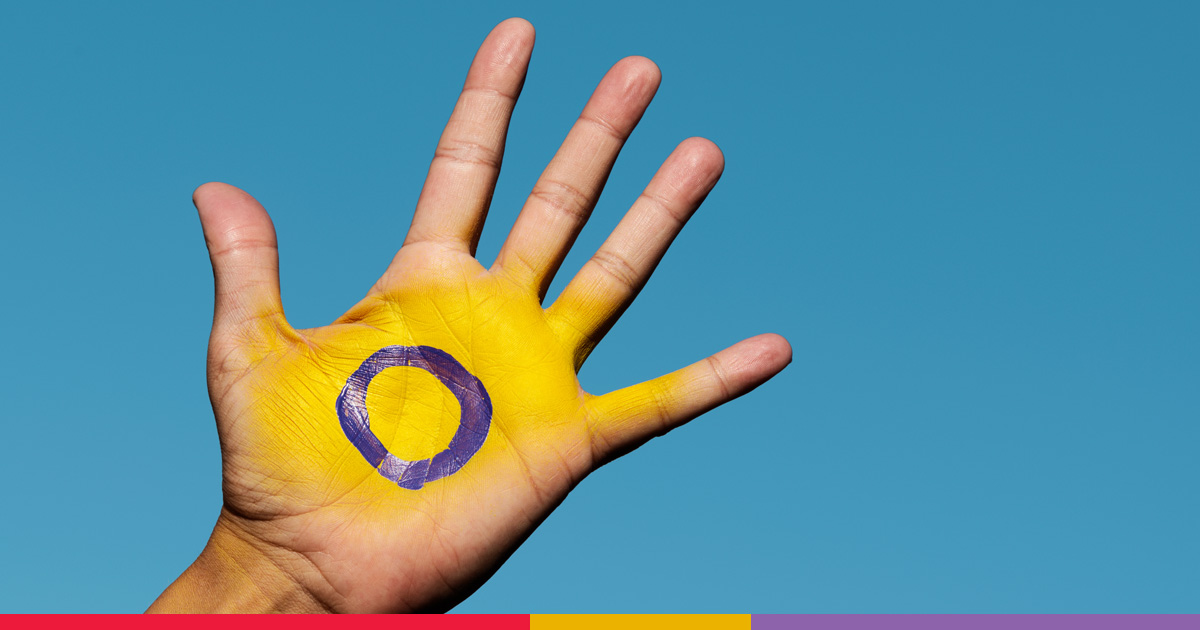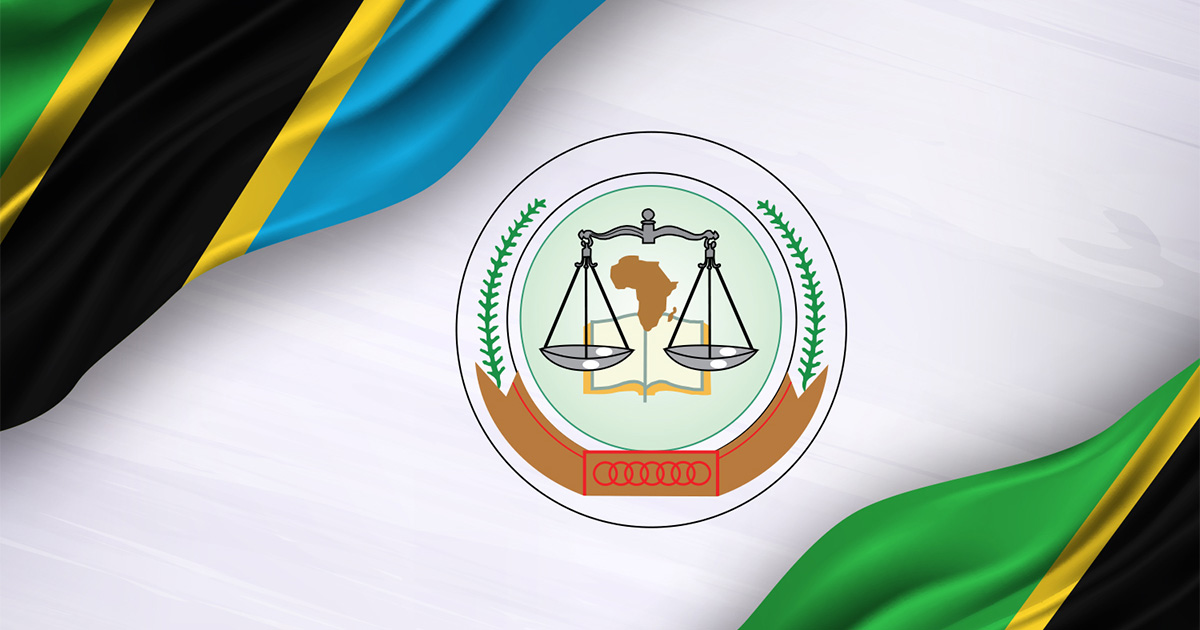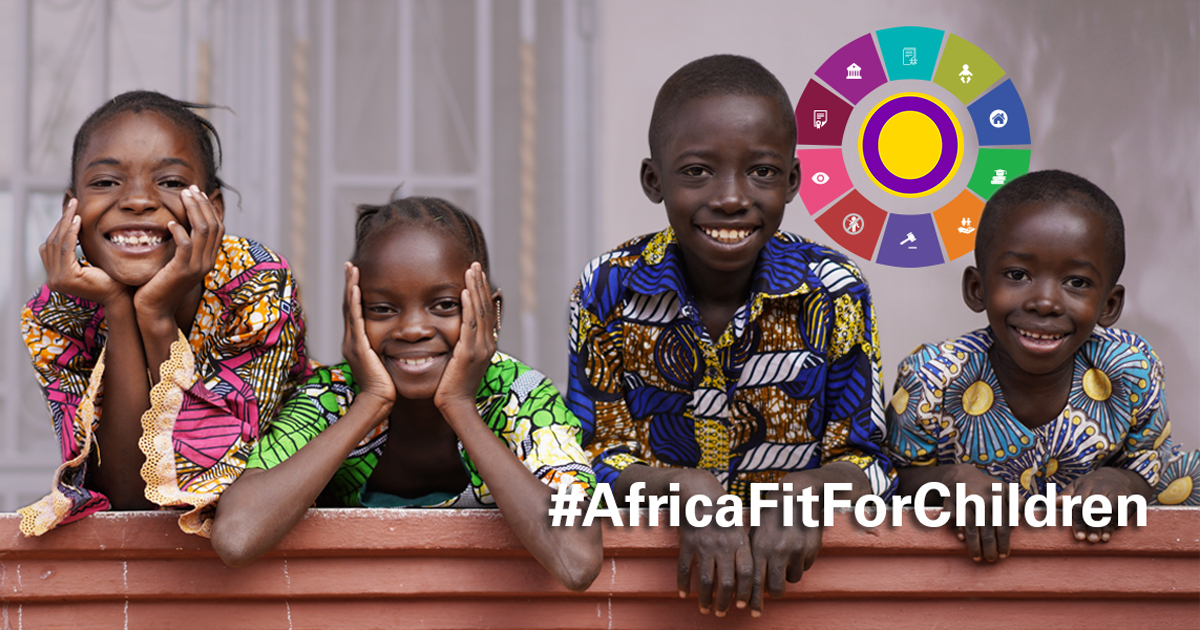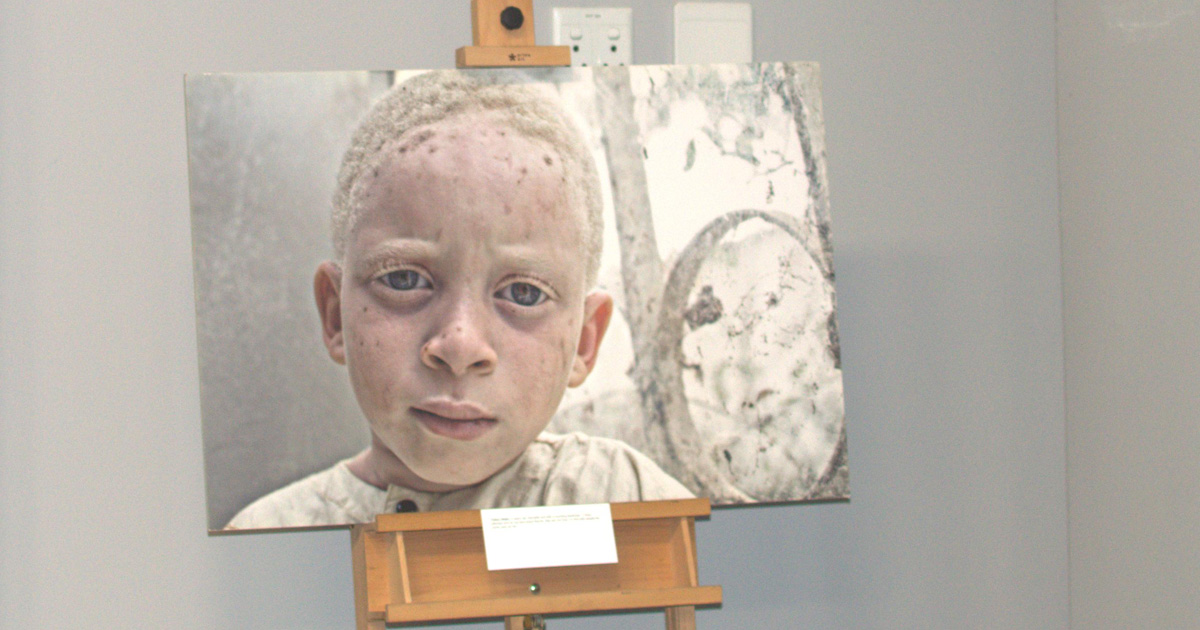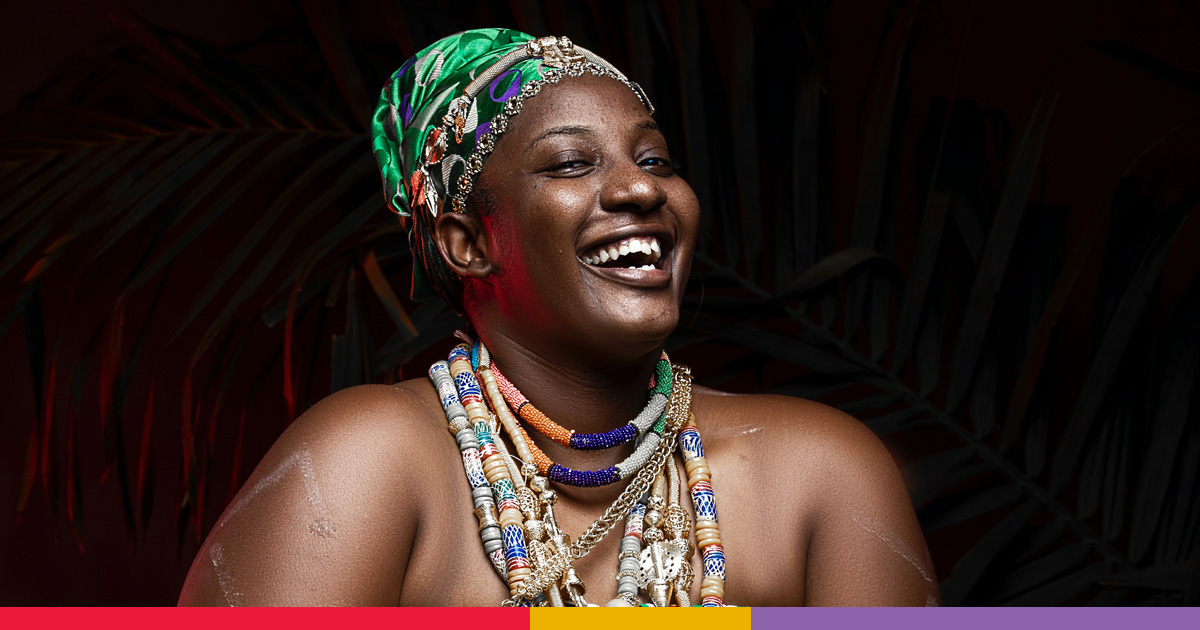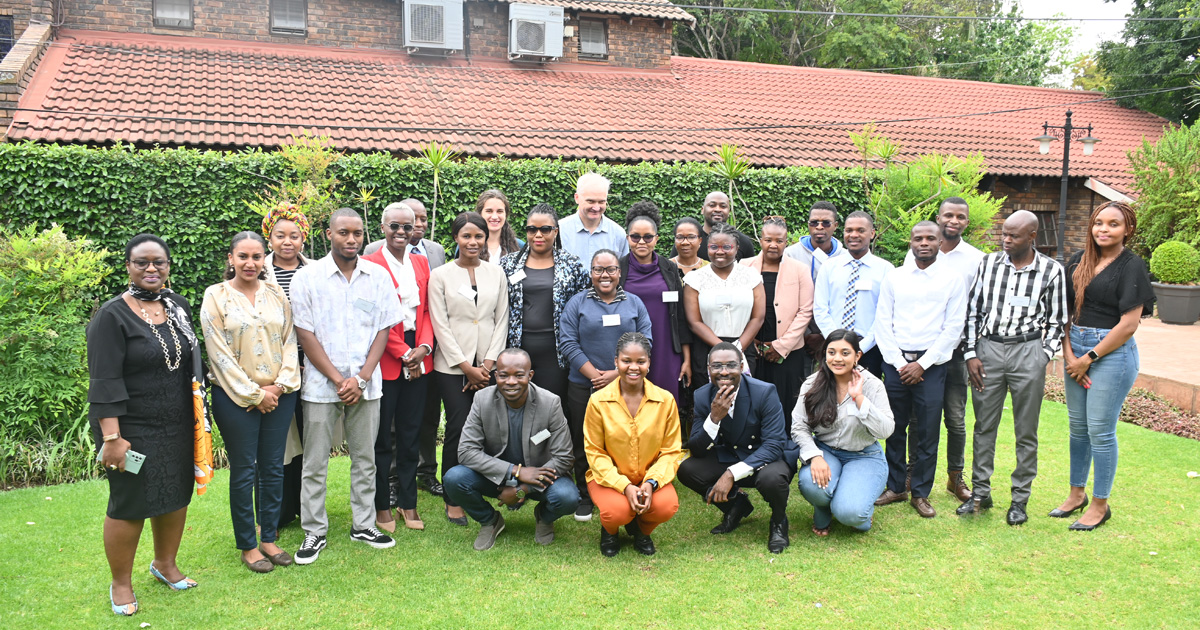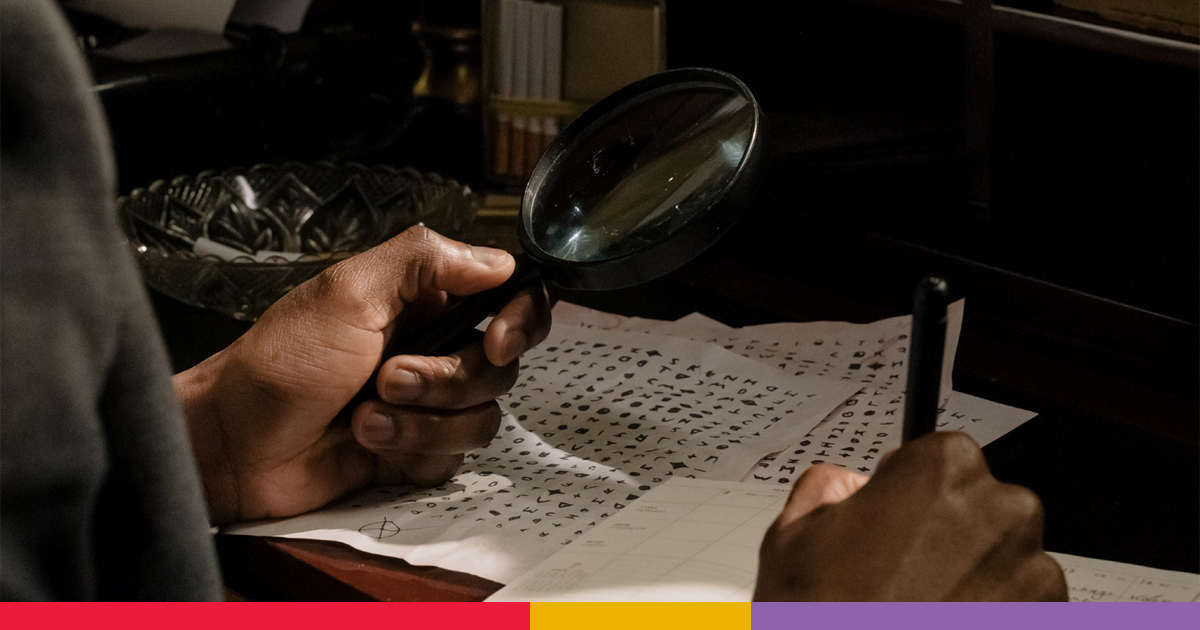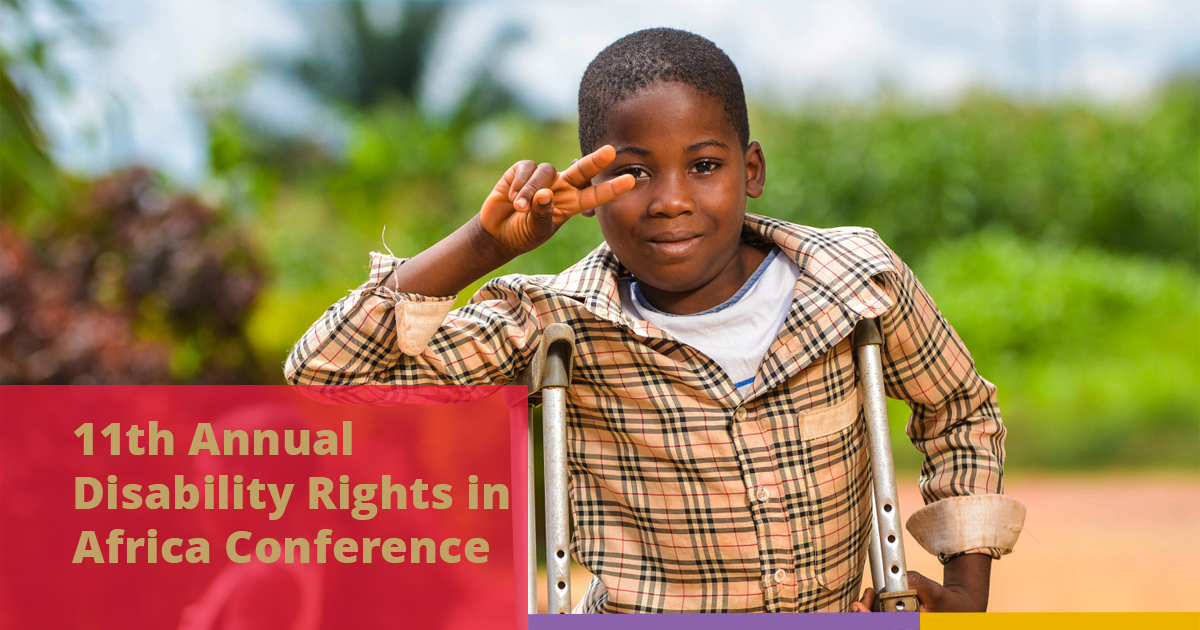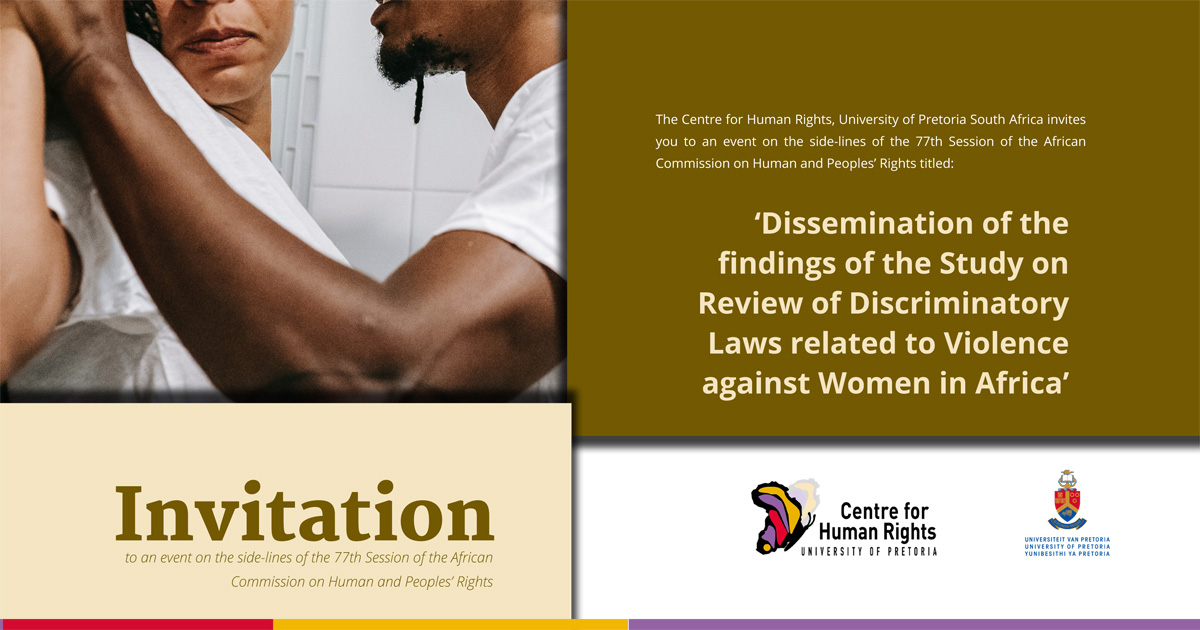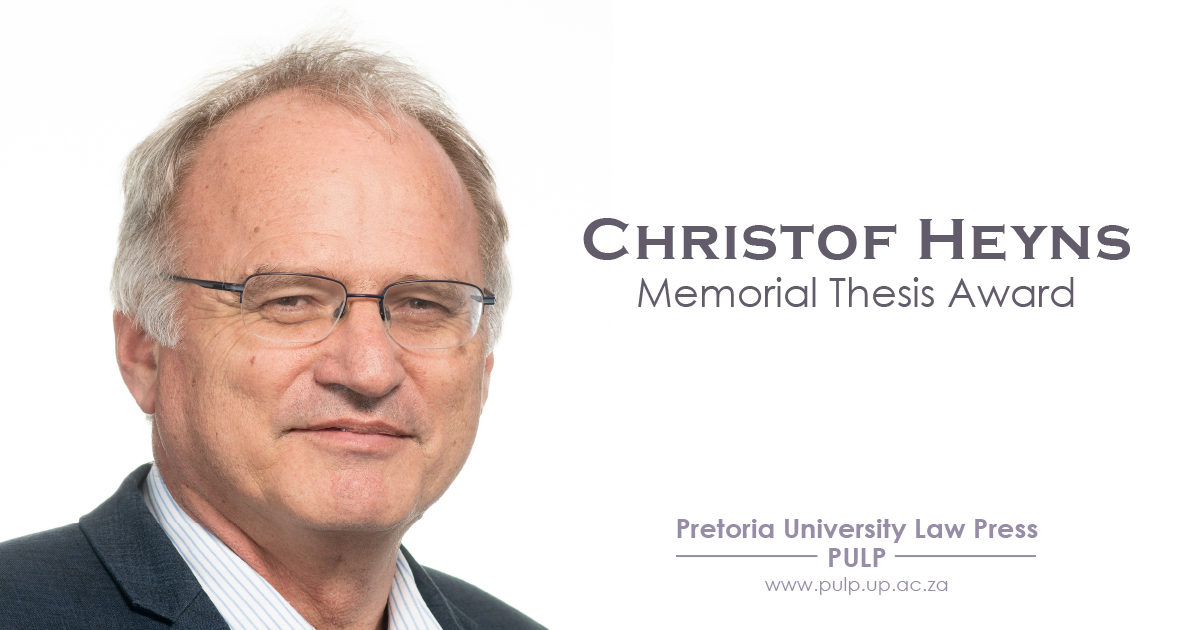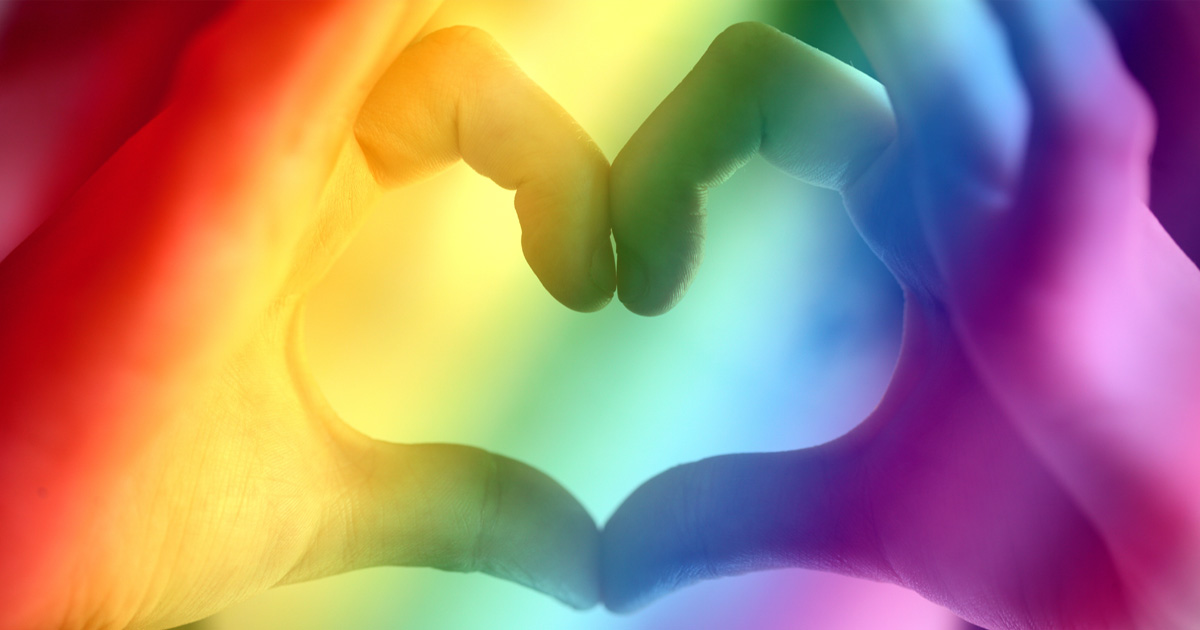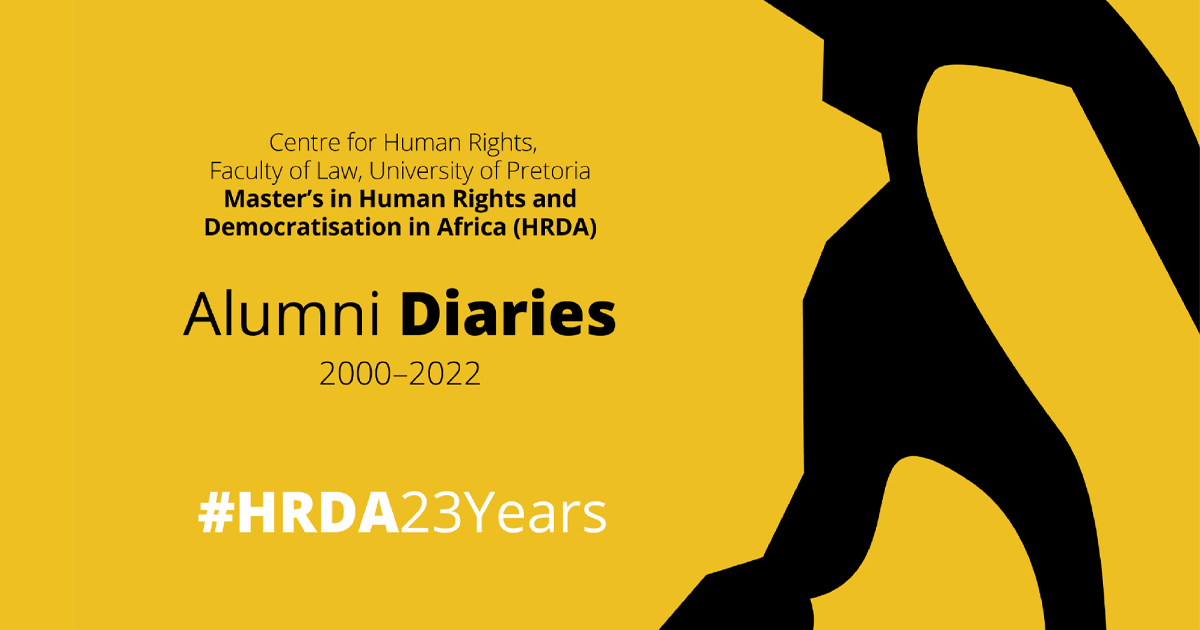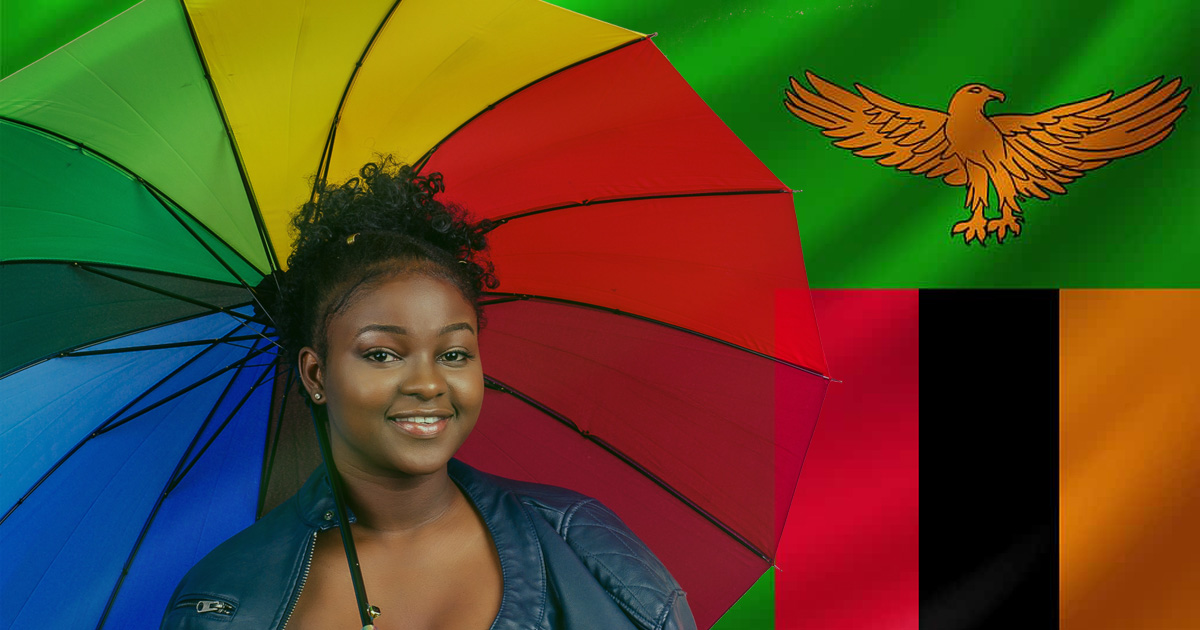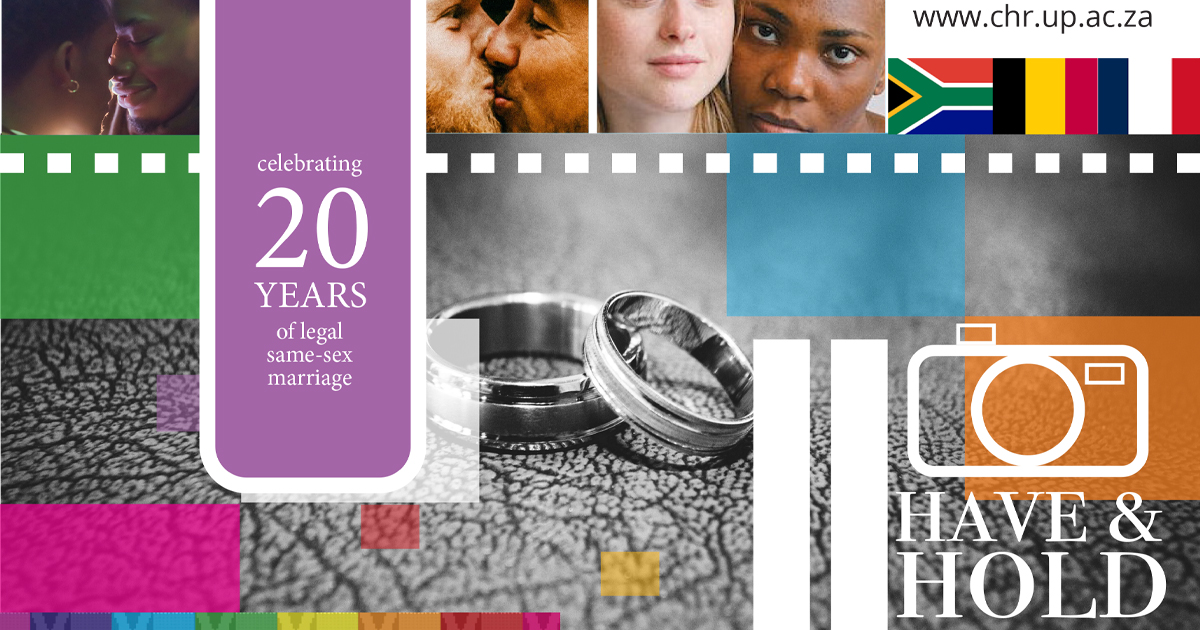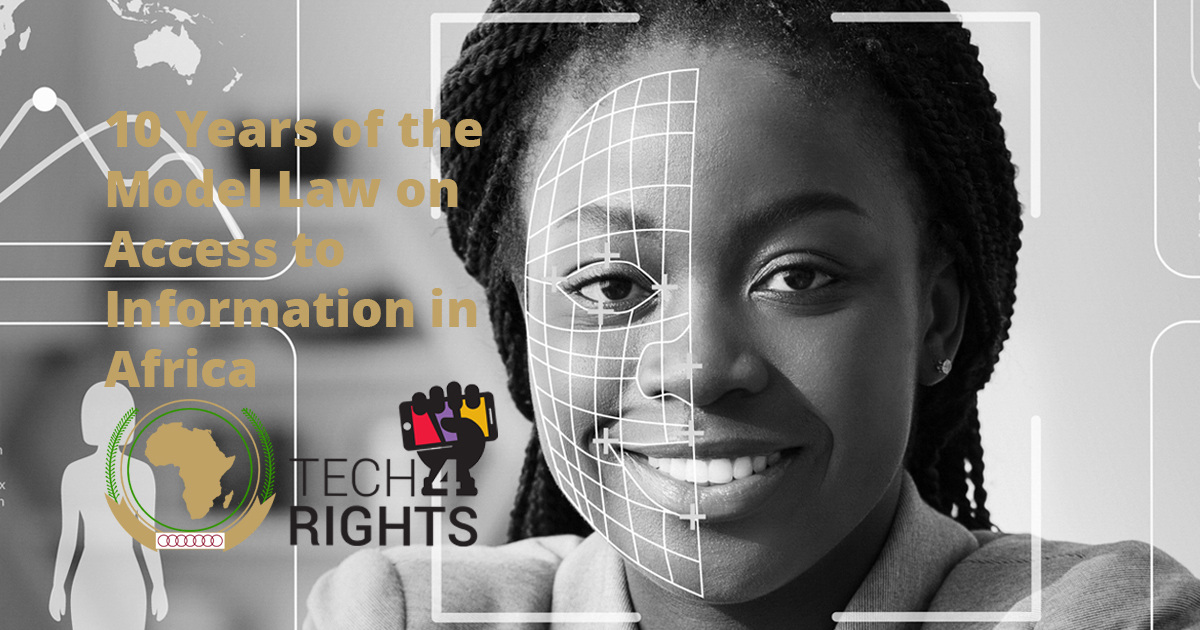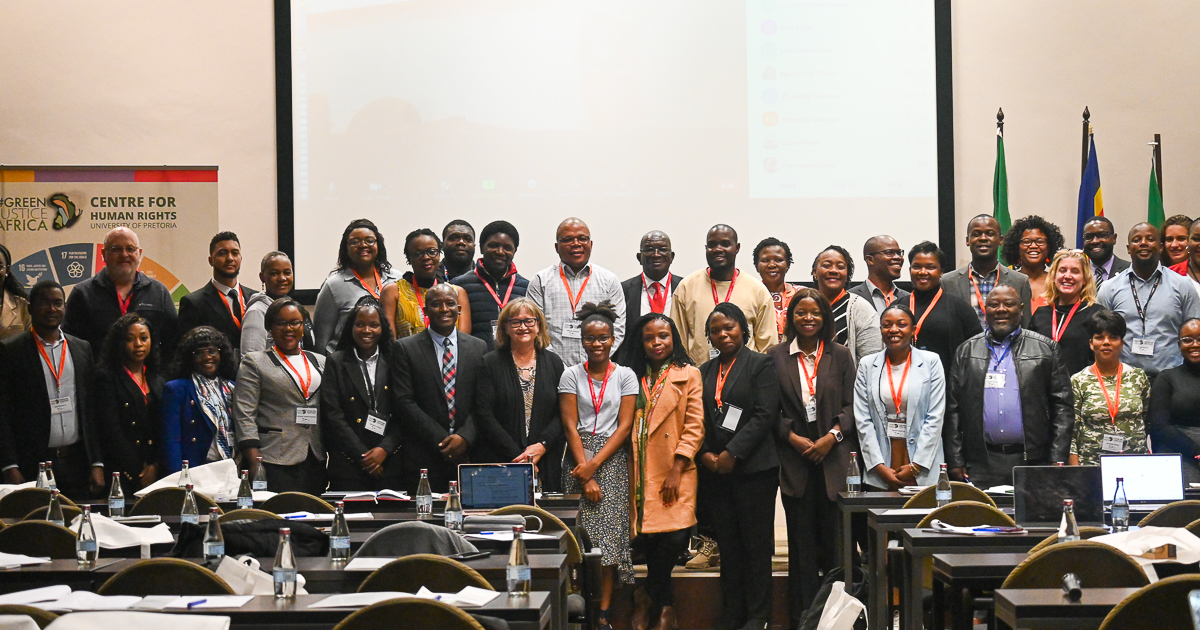- Details
Members of the Global Campus Alumni Association (GCA) from the Global Campus of Human Rights (Global Campus) had their first in-person meeting in Athens, Greece on 17 -19 April 2024 to discuss climate-related challenges.
The decision to launch the GCA Taskforce on ‘Climate justice and rights of future generations’ shows the determination of the alumni to advance climate justice, to safeguard the rights of future generations and to empower the whole alumni community with the necessary skills and tools to address the issue. At this meeting, we planned a year-long alumni programme focusing on climate justice and rights of future generations. While alumni from the Arab region focused on mapping climate justice actors in their region, Latin American and Asia Pacific region prioritised the development of child-friendly education. On the other hand, alumni from the Europe and the South East Europe regions presented on information and disinformation on the climate crisis in their respective regions. The Caucasus region proposed different activities such as a photography exhibition, creative games and discussions around climate justice in the Post-Soviet region.
- Details
The Centre for Human Rights, Faculty of Law, University of Pretoria (the Centre) announced the recipient of the Vera Chirwa Award during its annual graduation ceremony on 8 December 2023. The Centre selected Kenyan Deputy Registrar of the African Court (the Court), Grace Wakio Kakai, to receive the Vera Chirwa Award. Instituted in 2006 by the Centre, this Award honours alumni of the Master’s in Human Rights and Democratisation in Africa Programme (HRDA) who best embody the spirit of the programme in their professional career by continuously bringing positive contributions to human rights.
- Details
The Centre for Human Rights, University of Pretoria is pleased to launch this call for book chapters on the theme of democracy versus mis- and disinformation in Africa. The deadline for submitting abstracts is 30 June 2024.
- Details
The Centre for Human Rights is a Department of the Faculty of Law, with a mandate for post graduate academic programmes in human rights, general human rights education and training, as well as programmatic work for the promotion of human rights in Africa and beyond. In pursuit of this mandate, the Centre is engaged in a variety of research, advocacy, and capacity building initiatives, a majority of which are externally/donor funded.
To keep track of the progress that the Centre makes towards the realization of its strategic objectives through its programmes, the Centre relies on regular monitoring and evaluation of its projects and programmes. It is for this purpose that the Centre seeks to recruit a monitoring and evaluation assistant to support its work. The Centre seeks the assistance of an M&E Assistant to contribute to its work in this regard.
- Details
From 2 - 3 May 2024, the African Commission on Human and Peoples’ Rights (ACHPR) convened the inaugural experts’ validation session for the study on human and peoples’ rights and artificial intelligence (AI), robotics and other new and emerging technologies in Africa. The validation event took place with a hybrid format, blending in-person attendance in Nairobi, Kenya, with virtual participation. The Centre for Human Rights, Faculty of Law, University of Pretoria, is the technical support institution to the development of the study.
- Details
The Centre for Human Rights, Faculty of Law, University of Pretoria, with the support of the Swedish International Development Cooperation Agency (SIDA), cordially invites you to apply for its Capacity Building Workshop on Strategic Litigation and Advocacy for human rights defenders working on the promotion and protection of the rights of lesbian, gay, bisexual, transgender, intersex, and other non-binary and gender-nonconforming persons in Africa.
- Details
The Centre for Human Rights, University of Pretoria organised a webinar on 2 May 2024 to discuss youth engagement in elections and participation in politics in South Africa ahead of the 2024 national and provincial elections. The webinar also aimed to diagnose the possible causes of youth decline in participation in elections and politics and proffer possible solutions.
- Details
On Tuesday 30 April 2024, the Centre for Human Rights (Centre) Faculty of Law, University of Pretoria, in collaboration with the Durban Lesbian and Gay Community and Health Centre, successfully conducted a full-day training session aimed at empowering LGBTQI+ persons on the usage of the South Africa Equality Courts.
- Details
The recently published open-access book The Impact of the United Nations Human Rights Treaties on the Domestic Level: Twenty Years On – Second Revised Edition | Brill, edited by Frans Viljoen, and Rachel Murray, with the late Christof Heyns, contains studies on the implementation of the UN human rights treaty system in countries across the world. Four African countries — Egypt, Senegal, South Africa and Zambia — are covered in this publication. During this webinar, the authors of the chapters on these four countries will present a summary of their findings. They will highlight examples of the meaningful impact of UN human rights treaties, and discuss the challenges and opportunities experienced by these countries. The webinar is co-hosted by the Centre for Human Rights, University of Pretoria and the Office of the High Commissioner for Human Rights (Regional Office for Southern Africa).
- Details
The World Press Freedom Day is commemorated annually on 3 May to reiterate State obligations to respect, protect and promote press freedom. The United Nations General Assembly proclaimed this day in December 1993. Three decades later, the need to celebrate the democratic contributions of an independent press and reaffirm commitments to protecting the press against existing and evolving threats to their freedom remains crucial.
- Details
The Centre for Human Rights, Faculty of Law, University of Pretoria cordially invites you to a webinar on youth engagement and elections in South Africa.
- Details
To the Secretariat of the African Commission on Human and Peoples’ Rights,
We, the undersigned organisations, are reaching out to alert you to a critical issue regarding human rights protection in Africa, particularly concerning the interpretationand application of Article 59(1) of the African Charter on Human and Peoples' Rights.This concern has led to the development of a concept note outlining the imperativeneed for a progressive interpretation of Article 59(1) and the launch of the Article59(1) Campaign.
- Details
On 18 April 2024, the Centre for Human Rights, Faculty of Law, University of Pretoria hosted the pre-election assessment delegation from the Electoral Commission Forum of SADC countries (ECF-SADC) to discuss issues related to electoral preparedness in anticipation of South Africa’s forthcoming National and Provincial Elections scheduled for 29 May 2024.
- Details
The Centre for Human Rights, Faculty of Law, University of Pretoria (the Centre) is looking for a consultant to undertake a study on access to information and the quality of the information ecosystem in the 2024 national and provincial elections in South Africa. The study is supervised by the Expression, Information and Digital Rights Unit under the Access to Information and Elections project.
- Details
The Centre for Human Rights, University of Pretoria and the Norwegian Centrefor Human Rights, University of Oslo, cordially invite you to an online seminaron the implementation of the United Nations treaty system within domesticlegal systems of the world. This webinar is part of the UTFORSK project, entitled “Fostering research-based education through academic mobility and measuring the domestic impact of core human rights treaties”. The project connects teaching and research through collaborative exploration of a key human rights topic, namely the domestic impact of core UN human rights treaties and mechanisms.
- Details
The Centre for Human Rights, Faculty of Law, University of Pretoria in collaboration with the University of the Western Cape invites scholars to submit abstracts on Cybercrime Regulation in Africa.
- Details
The Centre for Human Rights, Faculty of Law, University of Pretoria in collaboration with the University of the Western Cape and University of Cape Town invite scholars to submit abstracts of no more than 300 words on Artificial Intelligence Advancement In Africa - Navigating Legal, Human Rights, and Ethical Frontiers.
- Details
The Centre for Human Rights supports the call for inputs by the United Nations Independent Expert (IE) on sexual orientation and gender identity (SOGI), for a thematic report on electoral participation and sexual orientation and gender identity. The purpose of the call is to seek inputs for incorporation into a report on the obstacles to full and meaningful participation in electoral processes that individuals face, linked to their real or perceived sexual orientation and gender identity. The report will be presented at the 79th session of the United Nations General Assembly in November 2024, by the current IE SOGI, Graeme Reid.
- Details
The Centre for Human Rights, Faculty of Law, University of Pretoria(the Centre) attended the 24th Ordinary Session of the Civil Society Organisations Forum on the African Charter on the Rights and Welfare of the Child (CSO Forum), held from the 13 - 14 April 2024, in Maseru, Kingdom of Lesotho. The session was held on the eve of the 43rd Ordinary Session of the African Committee of Experts on the Rights and Welfare of the Child (ACERWC).
- Details
The Centre for Human Rights, Faculty of Law, University of Pretoria in collaboration with the Crisis in Zimbabwe Coalition, and Human Rights Watch will invites members of the public to a dialogue on 17 April 2024 to examine the application of South Africa’s Refugee Act and other regional and global instruments in the context of elections, to ensure the safety and well-being of foreigners during the forthcoming elections.
- Details
The Centre for Human Rights, Faculty of Law, University of Pretoria welcomes the adoption of a resolution on ‘Combating discrimination, violence and harmful practices against intersex persons’ by the United Nations Human Rights Council during its 55th Session on 4 April 2024. Resolution #HRC55 is timely and important in so far as it recognises the discrimination, violence and harm that intersex persons are commonly subjected to because of harmful stereotypes, stigma, taboos, as well inaccurate information and misconceptions about persons with innate variations in sex characteristics.
- Details
To celebrate the scholarship of Prof Charles Fombad, the Centre for Human Rights, the NRF Chair in International Constitutionalism, Faculty of Law, University of Pretoria, the Faculty of Law, University of the Free State and the African Network for Constitutional Lawyers, plan to co-host a conference and co-edit a publication (conference proceedings/volume of essays) to celebrate and reflect on Professor Charles Fombad’s ongoing scholarship.
- Details
The Centre for Human Rights, Faculty of Law, University of Pretoria (Centre), with the financial support from the Embassy of Switzerland, will host a civil society workshop onearly warning and urgent response to xenophobic violence in South Africa. The Centre cordially invites migrants’ organisations, migrants’ rights advocates, and interested grassroots civil society organisations to participate in this workshop.
- Details
by Usani Odum
This year, the African Union commemorates the 30th anniversary of one of the biggest human calamities to have occurred on the continent. From April to July 1994, an estimated one million Tutsis were slaughtered by their Hutu countrymen in Rwanda. In the wake of the genocide, Rwanda rolled out numerous transitional justice mechanisms to help piece together its broken society, including accountability measures.
- Details
On 22 March, the Centre for Human Rights (Centre), on the heels of National Human Rights Day (21 March), hosted its annual welcoming Ceremony for the students on the Centre’s academic programmes. This year, the Centre welcomes 28 students in the LLM/MPhil programme in Human Rights and Democratisation in Africa (HRDA), 11 in the Sexual and Reproductive Rights in Africa (SRRA), and 16 in Multi-Disciplinary Human Rights (MDHR). This year there is no intake for the masters programmes in Disability Rights in Africa (DRIA), which has a new intake every two years. There is also no intake for the Trade and Investment Law in Africa (TILA), which is run in partnership alternating between the University of the Western Cape (UWC) and the University of Pretoria (UP), and is this year being held at the UWC.
- Details
On 27 March 2024, the Centre for Human Rights, Faculty of Law, University of Pretoria (the Centre) hosted a training with the Pretoria Aurum Institute Pop INN clinic, on the Equality Courts of South Africa to increase confidence, knowledge and capacity in seeking recourse for discrimination. Naledi Mpanza, Tholoana Mosia, Victoria Amaechi, from the Centre, coordinated the training, ensuring its success.
- Details
From 11 - 15 March 2024, the Centre for Human Rights, Faculty of Law, University of Pretoria, hosted the Advanced Human Rights Course on Disability Rights in an African context. The short course was presented using a hybrid format, with participants joining both in person at the Graduate Centre, University of Pretoria, as well as virtually via Zoom.
- Details
The Centre for Human Rights (CHR) and the Psychological Society of South Africa (PsySSA) have been formally admitted as joint amici curiae (friends of the court) in the case of Embrace Project NPC and Another v Minister of Justice and Correctional Services and Others (Case no.: 48656/2022) (“Embrace Project case”).
- Details
Arusha, March 28, 2024 - The African Human Rights Mechanisms Nomination and Selection Initiative, also known as ‘the Arusha Initiative,’ announced a campaign to help identify qualified candidates ahead of the upcoming elections to the African Court on Human and Peoples’ Rights. The aim of the campaign is to assist the State Party-led nomination process by identifying experts who meet the criteria for serving at the African Court. Given the current geographical composition of the Court, nominations are open from the East Africa, West Africa, and Central Africa regions.
- Details
Mothering and Albinism is a global health research project with an international intersectoral networkMothering and Albinism is a global health research project with an international intersectoral networkof researchers and advocates working together to promote and protect the human rights of personswith albinism and their families. We are working alongside civil society organizations and advocates,including the current United Nations Independent Expert on the enjoyment of human rights by personswith albinism, Muluka-Anne Miti-Drummond. Focusing on the experiences of families who have givenbirth to a baby with albinism, we are conducting a 4-year study (2022-2026) based in South Africa,Tanzania, Ghana, and Canada to improve birthing experiences through health services, healthprofessions education, and the development equity oriented and contextually relevant educationalstrategies.
- Details
by Bonolo Makgale
The year 2024 is an extraordinary year for elections in all its hazardous glory as it sets the record for the greatest number of people living in countries that are holding elections. More voters than ever in history will be heading to the polls in at least 64 countries representing a combined population of about 49% globally. Many of these votes will test the limits of democracy, while others will be exercises in rubber-stamping the results of which, for many, will prove consequential for years to come. Yet, these elections are taking place against the backdrop of a relentless global evolution of digital technology which has ushered in a new era of unprecedented challenges in the democratic and political space . In an era of data manipulation and the growing influence of artificial intelligence, democracy stands at a critical crossroads.
- Details
The Centre for Human Rights, Faculty of Law, University of Pretoria, seeks to recruit a Part Time Project Assistant to be embbed withing the Womens Rights Unit.
Post information
Department : Womens Rights Unit
Duty Station : Pretoria, South Africa
Duration : 4 months
No. of positions: 1
Start Date : As soon as possible
- Details
The Centre for Human Rights, Faculty of Law, University of Pretoria, welcomes the launch of the "Principles and Guidelines for the Use of Digital and Social Media in Elections in Africa" developed by the Association of African Electoral Authorities (AAEA). The Guidelines and Principles were officially launched by Deputy President of South Africa Paul Mashatile. This notable milestone underscores the significance of integrating digital advancements while steadfastly upholding democratic values.
- Details
The Mauritius Supreme Court has declared unconstitutional a law that criminalises consensual same-sex acts between adult men. The decision boosts the trend in the Southern African Development Community (SADC) region towards decriminalisation. Now, a slight majority – nine out of 16 member states – do not prohibit gay and lesbian sexual relations.
- Details
The Centre for Human Rights (the Centre) is an academic department in the Faculty of Law at the University of Pretoria. Recognised internationally for excellence in human rights law in Africa, the Centre is uniquely positioned as both an academic department and a non-governmental organisation. A leader in human rights education in Africa, the Centre works towards a greater awareness of human rights, the wide dissemination of publications on human rights in Africa, and the improvement of the rights of women, persons with disabilities, indigenous peoples, sexual minorities and other disadvantaged or marginalised persons or groups across the continent.
- Details
A momentous e-book (C Heyns, F Viljoen and R Murray (eds) The Impact of the United Nations Human Rights Treaties on the Domestic Level: Twenty Years On (Brill, 2024)) tracking and seeking to better understand the impact of the United Nation human rights treaties at the domestic level has just appeared. The study on which the book is based was initiated by researchers in the Centre for Human Rights, Faculty of Law, University of Pretoria.
- Details
This panel discussion brings together South African and Ukrainian experts who have collaborated in studying and exploring the topic of unlawful and forcible deportation and transfer of Ukrainian children to Russian territory, as well as the challenges that parents and caregivers face in attempts to repatriate such children. The event centres on extracting lessons from the conflict and exploring avenues for enhancing peace on the African continent as well as internationally to lead the change in developing effective measures to identify and repatriate children unlawfully and forcibly deported and transferred not only in Ukraine, but any state embroiled in armed conflict globally.
- Details
The Centre for Human Rights, Faculty of Law, University of Pretoria joins the voices of many human rights defenders and organisations in condemning the passing of the Human Sexual Rights and Family Values Bill by the Parliament of Ghana on 28 February 2024.
- Details
Over the past decade, more than half of African countries have shut down internet access at least once. Typically, these internet shutdowns are usually ordered by government authorities amidst major political events such as public protests and elections. Notably, in 2023, ten African countries including Ethiopia, Algeria, Mauritania, Gabon and Senegal collectively contributed to 17 new cases of internet shutdowns. Senegal is the most recent African country to order an internet shutdown in the new year and the shutdown has been instituted twice already in February 2024.
- Details
The African Journal of Privacy and Data Protection (the Journal) is domiciled in the Faculty of Law, University of Lagos Akoka-Lagos, Nigeria but will be published once a year by the Pretoria University Law Press (PULP) South Africa. The Journal will be peer reviewed and is open access. The second issue of the Journal is expected to be published in August/September of 2024. The Editorial Board of the Journal hereby invites Articles, Book/Reviews and Notes/Comments on various aspects of privacy and data protection generally and perspectives on and from the continent of Africa in particular.
- Details
The Centre for Human Rights, Faculty of Law, University of Pretoria (UP) recently hosted the 2024 edition of the annual short course on Sexual Minority Rights in Africa. The course was presented through both virtual and physical sessions from 19 to 23 February 2024 and was attended by over 90 participants with 13 presenters from both across and outside Africa. Participants included LLM/MPhil students in both the Human Rights and Democratisation in Africa (HRDA) and the Sexual and Reproductive Rights in Africa (SRRA) Masters programmes in the Faculty of Law, UP. Other participants included researchers, academics, judicial officers, government workers, officials of selected National Human Rights Institutions, and members of civil society.
- Details
On 26 February 2024, the United Nations Independent Expert on Protection Against Violence and Discrimination Based on Sexual Orientation and Gender Identity (“IE SOGI”), in collaboration with the Centre for Human Rights (Centre), Faculty of Law, University of Pretoria, brought together global experts, academics, and activists in an online consultation for the upcoming report that will focus on the vital issues of freedom of expression, freedom of peaceful assembly, and freedom of association concerning the protection against violence and discrimination based on sexual orientation and gender identity (SOGI). The report will be the first from the newly appointed Independent Expert on SOGI Graeme Reid from South Africa, according to the office’s mandate to advance protection against violence and discrimination based on sexual orientation and gender identity.
- Details
In South Africa, racial discrimination has received considerable attention from researchers, human rights advocates and scholars. Because of South Africa’s apartheid legacy, the focus on racial discrimination is justified. Despite the focus on racial discrimination in South African society, certain population groups have been neglected. Specifically, race and colour-based discrimination against persons with albinism has received little or no attention despite the existence of anecdotal evidence indicating that persons with albinism experience this kind of discrimination daily.
- Details
The Centre for Human Rights, Faculty of Law, University of Pretoria cordially invites you to theThe Centre for Human Rights, Faculty of Law, University of Pretoria cordially invites you to theopening of its academic programmes.
- Details
On Thursday 22 February 2024, the Centre for Human Rights, Faculty of Law, University of Pretoria, in collaboration with the Embassy of the Kingdom of Belgium, the Embassy of France in South Africa, Lesotho, and Malawi (Embassy of France), and the Delegation of Flanders, successfully hosted a compelling film and panel discussion celebrating two decades of the legal recognition of Same-Sex Marriages in Belgium, France and South Africa.
- Details
The Centre for Human Rights, Faculty of Law, University of Pretoria (Centre) is deeply concerned about the political situation currently unfolding in Senegal. Following President Macky Sall’s announcement on 3 February 2024 annulling the presidential elections earlier set for 25 February 2024, the actions of the Senegalese Government have continued to threaten digital rights in Senegal. The annulment is one of the most recent developments in a series of actions taken by the government leading up to the presidential elections over the past year. These actions include internet shutdowns, attacks on media practitioners and violent crackdowns on public protests. These actions violate various human rights including the rights to freedom of expression, access to information, freedom of association, freedom of assembly, and political participation as guaranteed in domestic national laws and under international treaties ratified by Senegal.
- Details
Civil society organisations and National Human Rights Institutions engaging with the African Union (AU) human rights mechanisms call for greater transparency in the nominations and selection of its members, and a more inclusive and participatory process. This call is especially applicable to the July 2024 elections to fill three vacancies at the African Court on Human and Peoples’ Rights.
- Details
The Centre for Human Rights, Faculty of Law, University of Pretoria in coalition with Civil Society Organisations and the Pan-African Parliament Civil Society Forum, address the Assembly on the crisis at the Pan-African Parliament (PAP).
- Details
The Centre for Human Rights, Faculty of Law, University of Pretoria (the Centre) stands in solidarity with the global community in observance of World Radio Day, celebrated on 13 February annually. World Radio Day emerged from a proclamation in 2011 by UNESCO member states before being endorsed by the UN General Assembly in 2013. The day is commemorated in recognition of the significance of radio as a medium for accessible communication across the globe.
- Details
On Monday 5 February 2024, the Centre for Human Rights, Law Faculty, University of Pretoria held a seminar with the Independent Commission of Inquiry on the Occupied Palestinian Territory, including East Jerusalem, and Israel which is part of its ongoing mission to South Africa. The purpose of the seminar was to discuss the situation in the occupied Palestinian territory with the chair of the Commission Navanethem Pillay and Commissioner Chris Sidoti, and staff from the Secretariat of the Commission at the UN Office of the High Commissioner for Human Rights (OHCHR), Mr Giuseppe Calandruccio and Ms Sun Kim.
- Details
The Centre for Human Rights, Faculty of Law, University of Pretoria (the Centre), invites interested candidates to apply for the Communications and Advocacy Internship. As a Communications and Advocacy Intern at the Centre for Human Rights, you will play a crucial role in advancing our mission by assisting in the development and execution of strategic communication and advocacy initiatives. This internship offers an exciting opportunity for individuals interested in gaining hands-on experience in non-profit communication, advocacy, and social impact.
- Details
We invite submissions for fully developed articles and case discussions proposing to make ground-breaking academic-style contributions to the human rights discourse in Africa. Although the contributions are expected to take a continental (African) approach to the issues they cover, country-specific or sub-regional level case studies that relate to the African regional human rights system will also be considered. In so far as methodology is concerned, contributions adopting multidisciplinary and empirical approaches are highly encouraged.
- Details
The Centre for Human Rights,Faculty of Law, University of Pretoria welcomes and applauds the recent adoption of the Resolution on mass surveillance and unlawful targeted surveillance by the African Commission on Human and Peoples’ Rights (the African Commission). Resolution 573 was adopted during the 77th Ordinary Session of the African Commission held from 20 October to 9 November 2023 in Arusha, Tanzania. The landmark Resolution on the deployment of mass and unlawful targeted communication surveillance and its impact on human rights in Africa, is a significant step by the African Commission in recognising the importance of human rights protection in an increasingly interconnected world, particularly the need to safeguard privacy rights in the face of evolving technological advancements.
- Details
The Centre for Human Rights, Faculty of Law, University of Pretoria (Centre) joins the global community in commemorating Data Protection Day 2024. Launched by the Council of Europe (CoE) in 2006, Data Protection Day was set for January 28 of every year in recognition of the day that the CoE opened its data protection convention (Convention 108) for signature. The day is now celebrated across the globe, known sometimes as International Data Privacy Day to raise awareness about data protection and privacy. In celebrating the day, the Centre notes the commitments by the African Union (AU) and its member States to ensure the protection of personal information through data protection frameworks in Africa. However, given the ever-evolving nature of data use, there is a need to increase these efforts.
- Details
Social media and artificial intelligence (AI) have become integral parts of modern society, influencing communication, information dissemination, and social interactions. However, the impact of these technologies on people with disabilities has received limited attention. This book aims to explore the intersection of social media, artificial intelligence (AI), and disability in the context of the Global South, with a focus on opportunities, challenges, and strategies for promoting inclusivity and empowerment. The rapid advancement of technology, particularly in the fields of social media and artificial intelligence (AI), has the potential to significantly impact the lives of people with disabilities in the Global South. This intersection presents both opportunities and challenges in terms of accessibility, inclusion, and empowerment. Understanding the dynamics between social media, AI, and disability in the Global South is crucial for harnessing the potential benefits and addressing the potential risks.
- Details
By Prof Magnus Killander
The International Court of Justice (ICJ) will be holding public hearings on 11-12 January at the Peace Palace in The Hague, the seat of the court, in a case brought by South Africa against Israel. South Africa has accused Israel of violating the 1948 Genocide Convention in its military bombardment and siege of Gaza, which started after the deadly 7 October Hamas attack on Israel. Both Israel and South Africa have ratified the genocide convention. We [The Conversation] asked human rights and international law expert Magnus Killander for his insights.
- Details
The African Disability Rights Yearbook (ADRY) is calling for papers for consideration for publication in Section A of the ADRY in 2024. The ADRY publishes once a year with a focus on disability rights issues and developments of contemporary concern to persons with disabilities on the African continent.
- Details
On 8 December 2023, the Centre for Human Rights, Law Faculty, at the University of Pretoria (the Centre), celebrated the graduation of a number of students from its masters and doctoral programs. On this occasion, 42 students graduated with Masters degrees from 4 programmes (HRDA, SRRA, MDHR, TILA), while 8 candidates graduated with doctoral degrees. Six of the eight doctoral graduates at the Ceremony, that is: Landilani Banda, Crystal Mokoena, Lindlyn Moma, Dumisani Gandhi, Josephat Kilonzo, and Beryl Orao, were registered at the Centre.
- Details
On 30 November 2023 the Centre for Human Rights at the University of Pretoria(UP), hosted a regional engagement on rights-based approaches to addressing disinformation in Southern Africa. The engagement had members of academia, media and civil society from Botswana, Eswatini, Lesotho, Malawi, Mozambique, Namibia, Zambia and Zimbabwe.
- Details
2023 marks 75 years since the adoption of the Universal Declaration of Human Rights (UDHR) and 25 years of the United Nations Declaration on Human Rights Defenders. The Centre for Human Rights, Faculty of Law, University of Pretoria, OHCHR Regional Office for Southern Africa (OHCHR ROSA) and the European Union Delegation in South Africa, in partnership with Ford Foundation, hosted a commemoration of this milestone on 4 December 2023.
- Details
On 23rd November 2023, the Centre hosted a conference on sexual and gender minority rights in Africa, under the theme of decriminalising anti-sodomy laws in a hostile environment. This Conference falls within the broader work of the Centre to advance sexual and reproductive rights in Africa, including those of sexual and gender minorities. The Conference was held in a hybrid format and brought together academics, researchers, legal practitioners, activists, religious leaders and students from across the continent.
- Details
The Centre for Human Rights, Faculty of Law, University of Pretoria is pleased to announce the successful conclusion of the second edition of the Advanced Human Rights Course on Data Protection in Africa (Course). The five-day intensive online Course was organized by the Expression, Information and Digital Rights (EIDR) Unit of the Centre from 6 to 10 November 2023. This marks the second consecutive year that the Centre has organized the Course. The first edition of the Course was held from 19 to 23 September 2022. Building on the success of the first edition, this year's Course featured 19 sessions, each led by expert facilitators in the field of data protection addressing a wide range of issues in the African context.
- Details
On 24 November 2023, the Centre held a training workshop for officials from National Human Rights Institutions (NHRIs) focusing on the implementation of the Resolutions 275 on Protection against Violence and other Human Rights Violations against Persons on the basis of their real or imputed Sexual Orientation or Gender Identity (2014) and Resolution 552 on Promotion and Protection of the Rights of Intersex Persons in Africa (2023). The training falls within the broader work of the Centre to advance sexual and reproductive rights in Africa, including those of sexual and gender minorities. The objectives of the training were to increase the understanding of the contents and significance of Resolutions 275 and 552, to strengthen the capacity of NHRIs in the implementation of the 2 Resolutions, and to enhance the ability of NHRIs to protect and promote the rights of sexual and gender minorities in Africa.
- Details
The Centre for Human Rights, Faculty of Law, University of Pretoria cordially invites you to a webinar on the International Law Analysis of the Conflict between Israel and the Occupied Palestinian Territories by Professor John Dugard.
- Details
The Centre for Human Rights, University of Pretoria are proud to announce the publication of the sixth paper in the African Human Rights Policy Papers series.
- Details
On 4 October 2023, the Centre for Human Rights, University of Pretoria, in collaboration with the Independent Electoral Commission of South Africa (IEC), the Information Regulator (IR), the South African Human Rights Commission (SAHRC), the Human Sciences Research Council (HSRC) and Media Monitoring Africa (MMA) held an engagement with political parties and candidates in Johannesburg to discuss the role of political parties and candidates in promoting access to information ahead of the 2024 elections.
- Details
On 16 and 17 November 2023, the Centre for Human Rights, in collaboration with the Open Society Foundation, Amnesty International and the University of California, Berkeley, organised a workshop on Strategic litigation and state obligations to secure platform accountability in respect of the effects of technology on children. The workshop aimed to devise a litigation strategy holding states accountable for protecting children from the adverse effects of technology and the internet, with a focus on creating a test case for this strategy.
- Details
From 13 – 14 November 2023, the Centre for Human Rights, Faculty of Law, University of Pretoria conducted a workshop on utilising General Comments on Article 14 of the of the Protocol to the African Charter on Human and Peoples’ Rights on the Rights of Women in Africa (Maputo Protocol) as tools for Advocacy on Sexual and Reproductive Health Rights in Africa.
- Details
The Centre for Human Rights, Faculty of Law, University of Pretoria cordially invites you to the webinar organised to promote the African Guiding Principles on the Rights of All Migrants, Refugees and Asylum Seekers (Guiding Principles).
- Details
Climate change is a global problem of epic proportions, which many countries around the world, including Africa, are grappling to address through a variety of measures and interventions. In order to be effective, these measures must be informed by and aim to fulfil all human rights and fundamental freedoms, leaving no one behind.
- Details
“A man who believes that to influence social change, one must invest in the individual mind.” Words of admiration spoken by Professor Frans Viljoen as a tribute to Professor Charles Ngwena at the Conference on Advancing Sexual and Reproductive Health and Rights (SRHR) in Africa in honour of Professor Ngwena. On 13 and 14 November 2023, the Centre for Human Rights, Faculty of Law, University of Pretoria (Centre) brought together over 50 scholars, researchers and activists from all over the world to commemorate Professor Ngwena’s exceptional contributions to human rights and to highlight his pioneering work in advancing SRHR in Africa.
- Details
Emerging voices of young academics represent a dynamic and promising cohort of scholars and researchers who are poised to make significant contributions to their fields. They bring a fresh perspective, innovation, and a commitment to advancing knowledge and scholarship within their areas of expertise.Emerging voices of young academics represent a dynamic and promising cohort of scholars and researchers who are poised to make significant contributions to their fields. They bring a fresh perspective, innovation, and a commitment to advancing knowledge and scholarship within their areas of expertise.
- Details
The Centre for Human Rights, Faculty of Law, University of Pretoria (the Centre) participated in the 42nd session of the African Children’s Committee during which the Centre presented its partner statement and hosted a side event to raise awareness on the plight of intersex children in Africa on 9 November 2023.
- Details
The Centre for Human Rights, Sexual and Reproductive Rights Unit, seeks a proficient Monitoring and Evaluation (M&E) consultant to conduct an in-depth assessment of its Sexual and Reproductive Rights in Africa programme. The programme is a postgraduate academic project, consisting of a Masters, doctoral and post-doctoral studies.
- Details
Breaking the Binary: Intersex Remembrance Day highlights human diversity
8 November 2023 - The Centre for Human Rights (Centre), University of Pretoria joins the global community in commemorating Intersex Remembrance Day 2023. Intersex Remembrance Day, also referred to as Intersex Solidarity Day is meant to raise awareness on the issues faced by intersex persons globally. It serves as a time to reflect on the past and inspire a more inclusive future. The day was first observed in 2005, with the date having particular meaning, as it is the birthday of French Intersex activist Herculine Barbin who contributed significantly in raising awareness on intersex rights.
- Details
Pretoria, 25 - 26 April 2024
The Institute for International and Comparative Law in Africa (ICLA) of the Faculty of Law,The Institute for International and Comparative Law in Africa (ICLA) of the Faculty of Law,University of Pretoria, in partnership with the Konrad Adenauer Stiftung (KAS), RegionalProgramme Political Dialogue for Sub-Sahara Africa based in Johannesburg, South Africa, arepleased to announce this call for papers on the theme, “Party constitutionalisation andconstitutionalism in Sub-Saharan Africa.”
- Details
The Centre for Human Rights, Faculty of Law, University of Pretoria, cordially invites you to a Conference on Advancing Sexual and Reproductive Health and Rights in Africa in honour of Professor Charles Ngwena which will take place on 13 and 14 November 2023 in hybrid format (Future Africa, University of Pretoria, Hillcrest Campus, Pretoria; and on Zoom).
- Details
The Centre for Human Rights, Faculty of Law, University of Pretoria, cordially invites you to the launch of Choice and Conscience: Lessons from South Africa for a Global Debate, which offers a fresh and insightful perspective on the intersection between politics, mobilisation of discretionary power and the exercise of conscientious objection to abortion care.
- Details
7-8 September 2024
The mood of exuberant optimism in Africa that the so-called wind of change in the 1990s and the new era of constitutions that it appeared to have ushered in, will provide much needed political stability, economic growth and development is fast fading. After a few years of what looked like progress, there is now an eerie feeling of a return to the dark pre-1990 era. The recent spate of military coups is clearly a sign that changes to constitutionalism, have not provided a solid foundation for political stability nor facilitated the economic growth that was supposed to improve the lives of the ordinary Africans. Whilst a few elites have grown richer, most Africans have remained poor, and the quality of social services such as schools, hospitals and other basic infrastructure have instead of improving deteriorated. A combination of poor governance, corruption and a weak legal framework have contributed to this situation.
- Details
The Centre for Human Rights, Faculty of Law, University of Pretoria, has released volume 3 of the photobook series titled Looking through the prism: Narratives of queer dignity in South Africa. This series features photographs and narratives of the lives of LGBTIQ+ persons living in South Africa. Volume 3 of the series focuses on lesbian, bisexual and queer (LBQ) cisgender and transgender persons.
- Details
The Centre for Human Rights, Faculty of Law, University of Pretoria cordially invites you to the virtual launch of a research report on the Impact of Race and Colour on the Enjoyment of Human Rights by Persons with Albinism in South Africa.
- Details
The Centre for Human Rights (Centre) Faculty of Law, University of Pretoria, in collaboration with Pan African International, Lesbian, Gay, Bisexual, Trans and Intersex Association (PAN ILGA), held a side event on the practical steps to realising the Resolution on the Protection and Promotion of the Rights of Intersex Persons in Africa (Resolution 552) , on 19 October 2023 at the 79th session of the African Commission on Humana Peoples’(African Commission) Rights in Arusha. The side event was hosted under the umbrella of the African Civil Society Engagement (ACSE), a group of African Civil Society organisations working towards effective engagement with the African Commission.
- Details
On 24 October 2023, the Centre for Human Rights, Faculty of Law, University of Pretoria in collaboration with the Coalition for Effective African Court held a stakeholders’ dialogue on the ratification of the Protocol establishing the African Court on Human and Peoples’ Rights and increased direct access to the African Court on Human and Peoples’ Rights. The event was held as one of the Centre for Human Rights side events during the African Commission on Human and Peoples’ Rights 77 Ordinary session in Arusha, Tanzania.
- Details
The Centre for Human Rights, Faculty of Law, University of Pretoria will have a side event during the 42nd Ordinary Session of the African Committee of Experts on the Rights of the Child, focusing on the essential topic of Intersex Children's Rights.
- Details
On Monday, 2 October 2023, the Centre for Human Rights, University of Pretoria co-hosted a public forum on Mothering, Albinism and Human Rights in South Africa: The Resilience of Mothers Affected by Albinism at the Protea Hotel, Loftus Park, in Pretoria. The public forum was hosted as a collaborative effort between the Centre for Human Rights, Faculty of Law, University of Pretoria; the Department of Nursing Science, Faculty of Health Sciences, University of Pretoria; Trinity Western University, Canada; McMaster University, Canada; University of Ottawa, Canada; and University of Toronto, Canada.
- Details
On 23 October 2023, the Centre for Human Rights, Faculty of Law, University of Pretoria (the Centre) hosted a side event on the margins of the ongoing 77th Ordinary Session of the African Commission on Human and Peoples’ Rights (African Commission) taking place in Arusha, Tanzania. The side event was aimed at highlighting issues emerging from the apparent concurrence and overlap of reporting processes related to the implementation of the Maputo Protocol. The processes of concern are the State Periodic Reporting to the African Commission as outlined under the Guidelines on State Reporting under the Maputo Protocol, and the reporting under the Maputo Protocol Score Card Index which was recently adopted by the African Union.
- Details
On October 6, 2024, the Centre for Human Rights ( Centre), University of Pretoria held a training for members of the LGBTIQ+ community on accessing Equality Courts in South Africa. The event was held in collaboration with Nelson Mandela University (NMU) Transformation Office in Gqeberha.
The training is part of a larger project on Equality Courts in South Africa, aiming to raise awareness about the South African Equality Courts for the purposes of building capacity, confidence and knowledge in seeking redress for discrimination. The training began on 5 October, led by Adelaide Karomo from the NMU Transformation Office, with a short session on implicit bias and explored how bias can quickly turn into unfair discrimination.
- Details
From 12 – 13 October 2023, the Centre for Human Rights, Faculty of Law, University of Pretoria conducted the 2nd edition of its capacity building workshop for African civil society organisations on engagement with the African human rights system. The event took place at Murray Guest House Brooklyn, Pretoria.
The workshop brought together civil society organisations from various African countries. Its primary aim was to acquaint participants with the foundational frameworks of the African human rights system and the institutions overseeing these norms. Additionally, attendees gained insights into the practical aspects of interfacing with African human rights bodies, for purposes of promoting and protecting human rights in Africa.
- Details
The Centre for Human Rights, Faculty of Law, University of Pretoria , International Center for Not-for-Profit Law (ICNL) and ARTICLE 19 Eastern Africa will be hosting a side event on “the Surveillance and human rights in Africa,” to promote human rights based approaches to the practice of surveillance and raise awareness on its human rights implications. Principle 41 of the Declaration of Principles on Freedom of Expression and Access to Information in Africa (the Declaration), calls on States to undertake lawful targeted surveillance instead of indiscriminate and untargeted collection, storage, analysis or sharing of a person’s communications.
- Details
The Centre for Human Rights, Faculty of Law, University of Pretoria, cordially invites you to its 11th Annual Disability Rights Conference on 20 and 21 November 2023 which will take place in a hybrid format (Southern Sun Hotel, OR Tambo International Airport, Johannesburg; and on zoom). The theme of this year’s conference is “Climate change and disability in Africa: A human rights’ response”.
- Details
The Centre for Human Rights, University of Pretoria South Africa invites you to an event on the side-lines of the 77th Session of the African Commission on Human and Peoples’ Rights titled: ‘Dissemination of the findings of the Study on Review of Discriminatory Laws related to Violence against Women in Africa’
- Details
The Pretoria University Law Press (PULP) is proud to announce the winner of the Christof Heyns Memorial Thesis Award 2023. The award for the best thesis by an African doctoral candidate completed in 2022, goes to Dr Alphonce Paul Mbuya.
- Details
The Centre for Human Rights (CHR), University of Pretoria (UP), the University of Antwerp and the government of Flanders hosted their annual advanced human rights course on the right to development.
This year, about 34 participants attended in person while 40 others followed online via Zoom. Participants were drawn from a variety of sectors including legal practitioners, human rights advocates, government officials, members of the judiciary, academics, and members of civil society organisations.
- Details
The Centre for Human Rights (Centre) , Faculty of Law, University of Pretoria, welcomes the two judgements of the Supreme Court of Mauritius in Ah Seek A.R.F. v The State of Mauritius and Fokeerbux N. A. & Others v The State of Mauritius which decriminalised consensual same-sex sexual conduct between adults.
- Details
This publication commemorates 23 years of the Master’s programme in Human Rights and Democratisation in Africa (HRDA). It gives a snapshot of the HRDA programme; the Centre for Human Rights where it is based, and the partner universities in collaboration with which it is presented.
- Details
The Centre for Human Rights (Centre), Faculty of Law, University of Pretoria stands in solidarity with the Chief Justice of Zambia, Dr Mumba Malila SC, who has come under attack following his remarks about the need to respect the human rights of sexual minorities in Zambia. During a public lecture commemorating the Silver Jubilee of the Supreme Court of Zambia, on 22 September 2023, held at the University of Zambia, Justice Malila was asked a question on the rights of sexual minorities in Zambia, particularly of gay persons. In his response, Justice Malila stated:
I think there is something absolutely wrong in discriminating people that are different because of their sexuality. If they are people you know who are gay, I think it is absolutely wrong in allowing them less right than you would give to anyone else. Whether people are gay or not, they are human beings at the end of the day, and human rights must be accorded to all human beings.
- Details
To commemorate this anniversary, the Centre forHuman Rights, in collaboration with Government of Flanders calls to the general public for the participationof individuals or couples who are or have been marriedunder the same-sex marriage legal system applicablein South Africa, Belgium and France to be part of theco-creation and curation process of documenting thelived realities of same-sex married couples in thesecountries through photos and videos that reflct theirjourney. Prospective participants are encouraged toindicate their interest on or before 17 October 2023.
- Details
On 27 and 28 September 2023, the Centre for Human Rights, Faculty of Law, University of Pretoria, organised a two-day virtual seminar in commemoration of the 10th anniversary of the adoption of the African Commission on Human and Peoples' Rights’ Model Law on Access to Information for Africa. The Model Law was adopted on 13 February 2013, to provide legislative guidance for developing new and reviewing existing access to information laws in line with international best practices. It contains best practices and represents a harmonised approach to access to information throughout the continent and also serves as a basis for advocating for an enhanced access to information environment. The seminar provided a platform for exploring the status of access to information in Africa, including milestones and challenges.
- Details
The Centre for Human Rights, University of Pretoria and its partners ARTICLE 19 Eastern Africa, and ARTICLE 19 Senegal and West Africa launched four reports on Proactive Disclosure of Information and Elections in Africa, during a webinar that was held on 26 September 2023. The reports assessed state compliance with the African Commission on Human and Peoples’ Rights 2017 Guidelines on Access to Information and Elections in Africa (the Guidelines). The studies focused on the recent elections in Ghana, Kenya, Uganda, and The Gambia. The initiative was undertaken with the support of the Special Rapporteur on Freedom of Expression and Access to Information in Africa, currently led by Hon Commissioner Ourveena Geeresha Topsy-Sonoo.
- Details
On September 18-19 2023, the Centre for Human Rights, Faculty of Law, University of Pretoria hosted a hybrid Human Rights Strategic Litigation and Advocacy Training Workshop to curb the adverse effects of Climate Change and environmental shocks in Africa, at the Plant Sciences Complex in the University of the Pretoria. The event brought together legal professionals, judges, and scholars from Southern Africa to explore the critical intersections of climate change, human rights, and climate justice in Africa, with a specific focus on the SADC region. The event was opened by the convener of the event, Dr Elvis Fokala and soon after, the Assistant Director of the Centre for Human Rights, Mr Lloyd Kuveya and the Dean of the Faculty of Law, Professor Elsabe Schoeman welcomed the participants to the University and wished them a very productive stay in Pretoria.
- Centre for Human Rights Commemorates International Day for Universal Access to Information (IDUAI)
- Statement on the Children’s Rights Crisis in Nagorno-Karabakh
- Centre for Human Rights holds 5th edition of African human rights bodies case discussion series
- Centre for Human Rights holds a Conference on Implementation and domestic impact of the decisions of the African Commission on Human and Peoples’ Rights.

